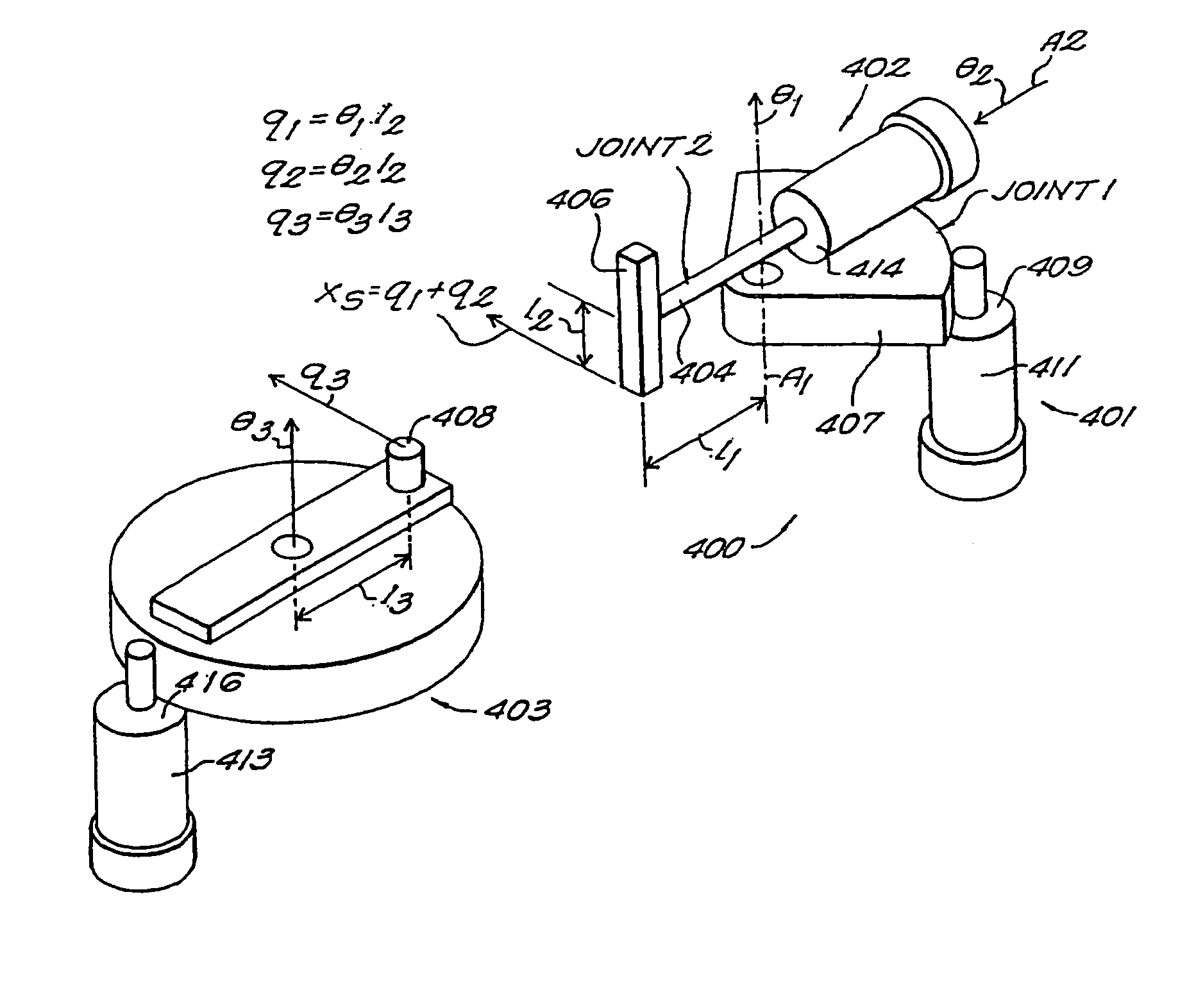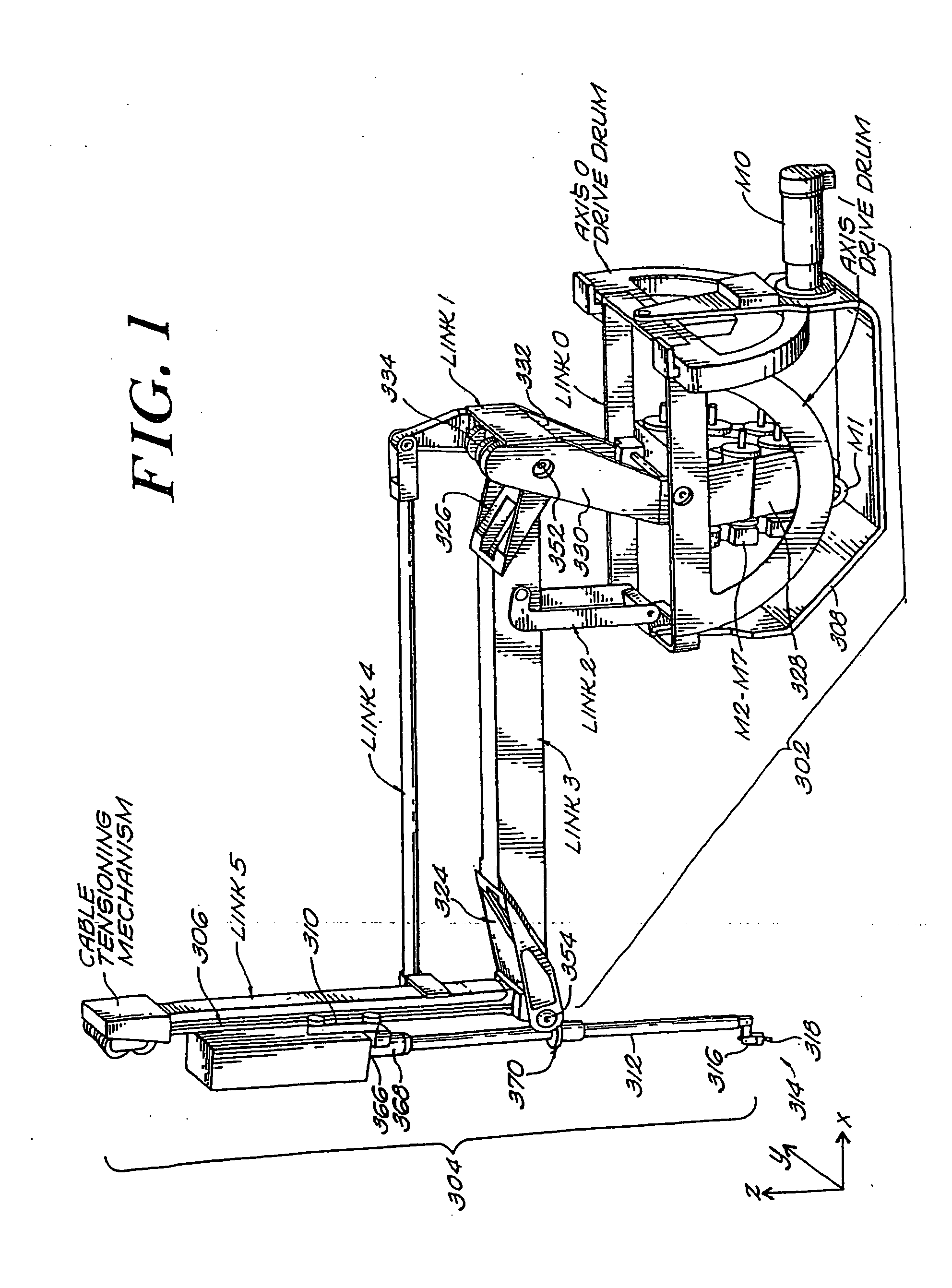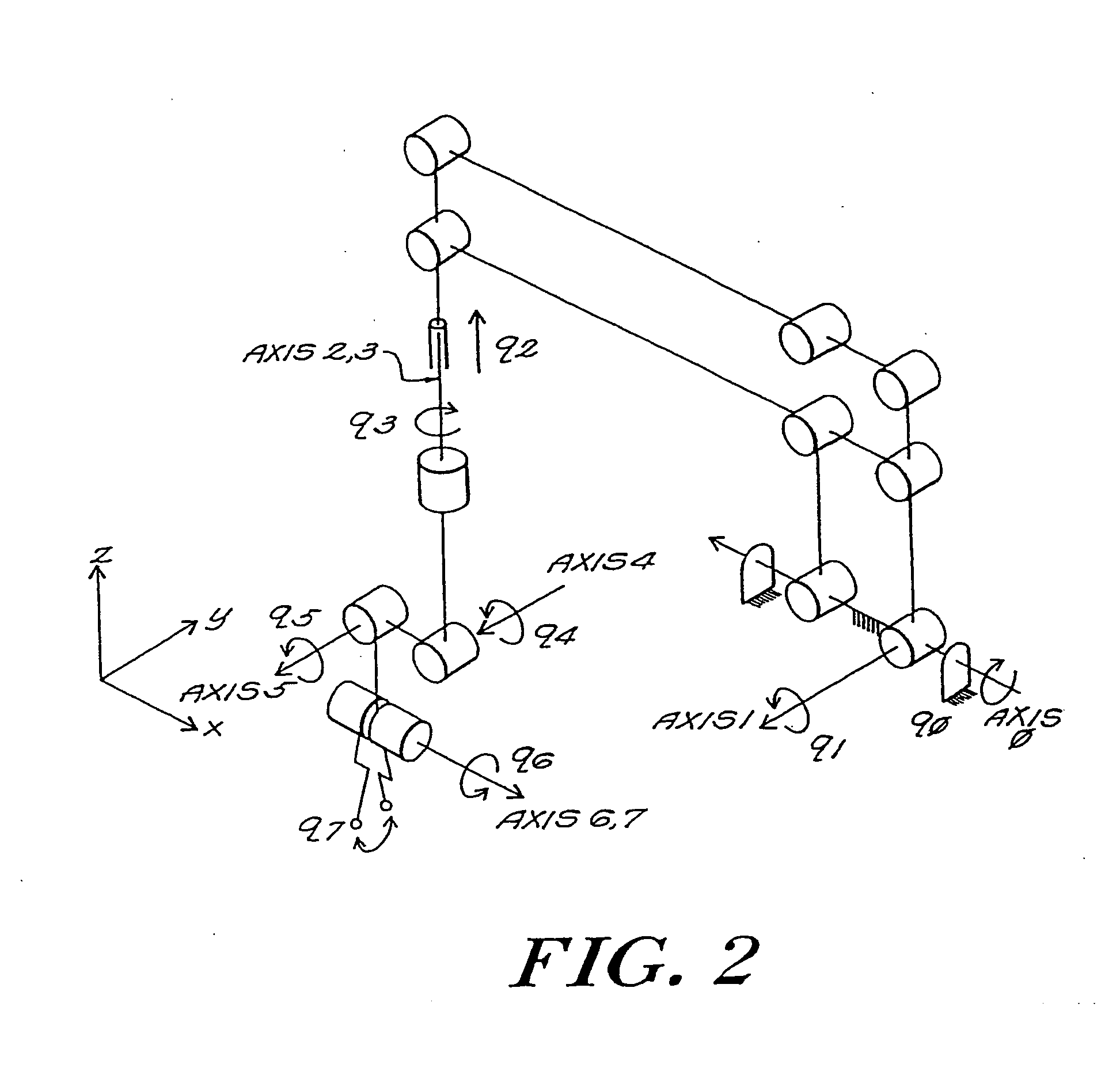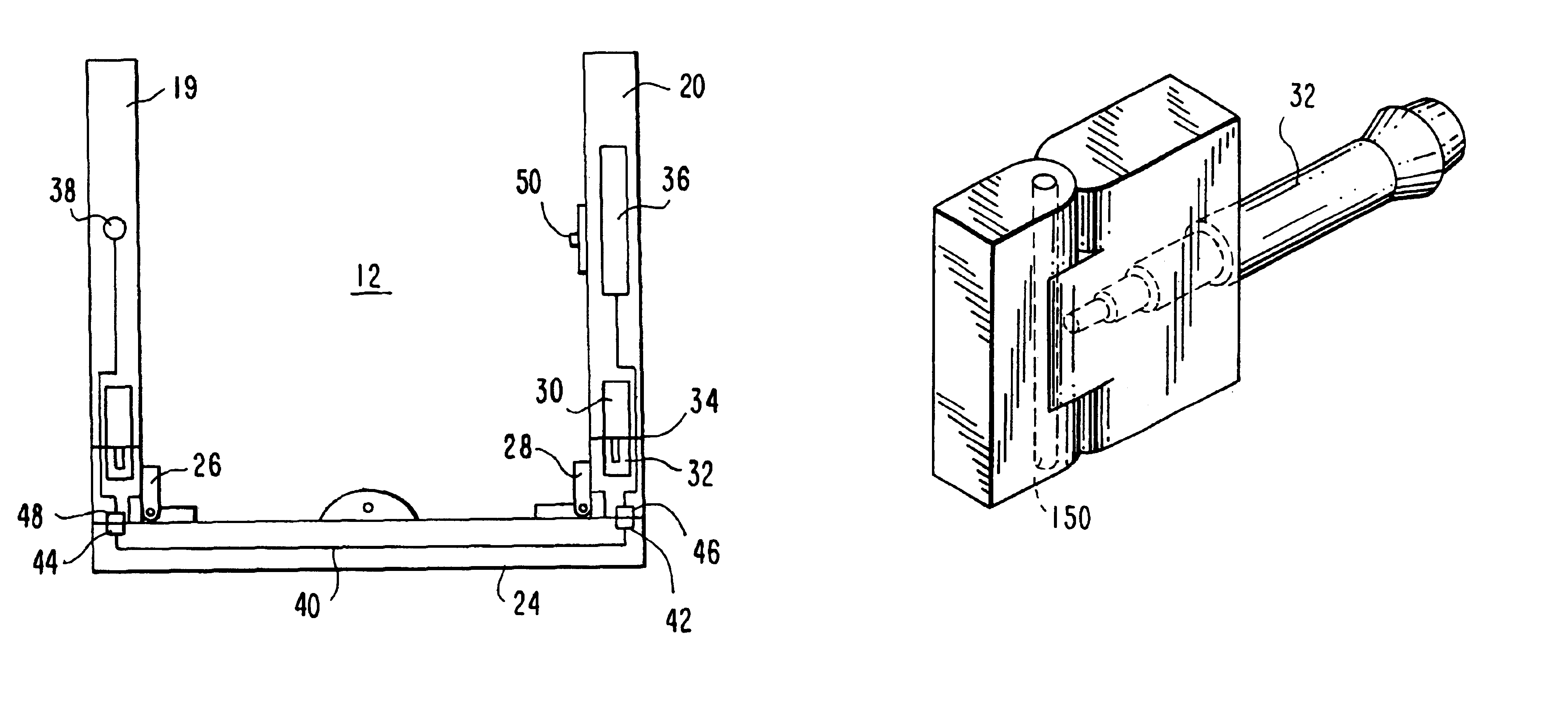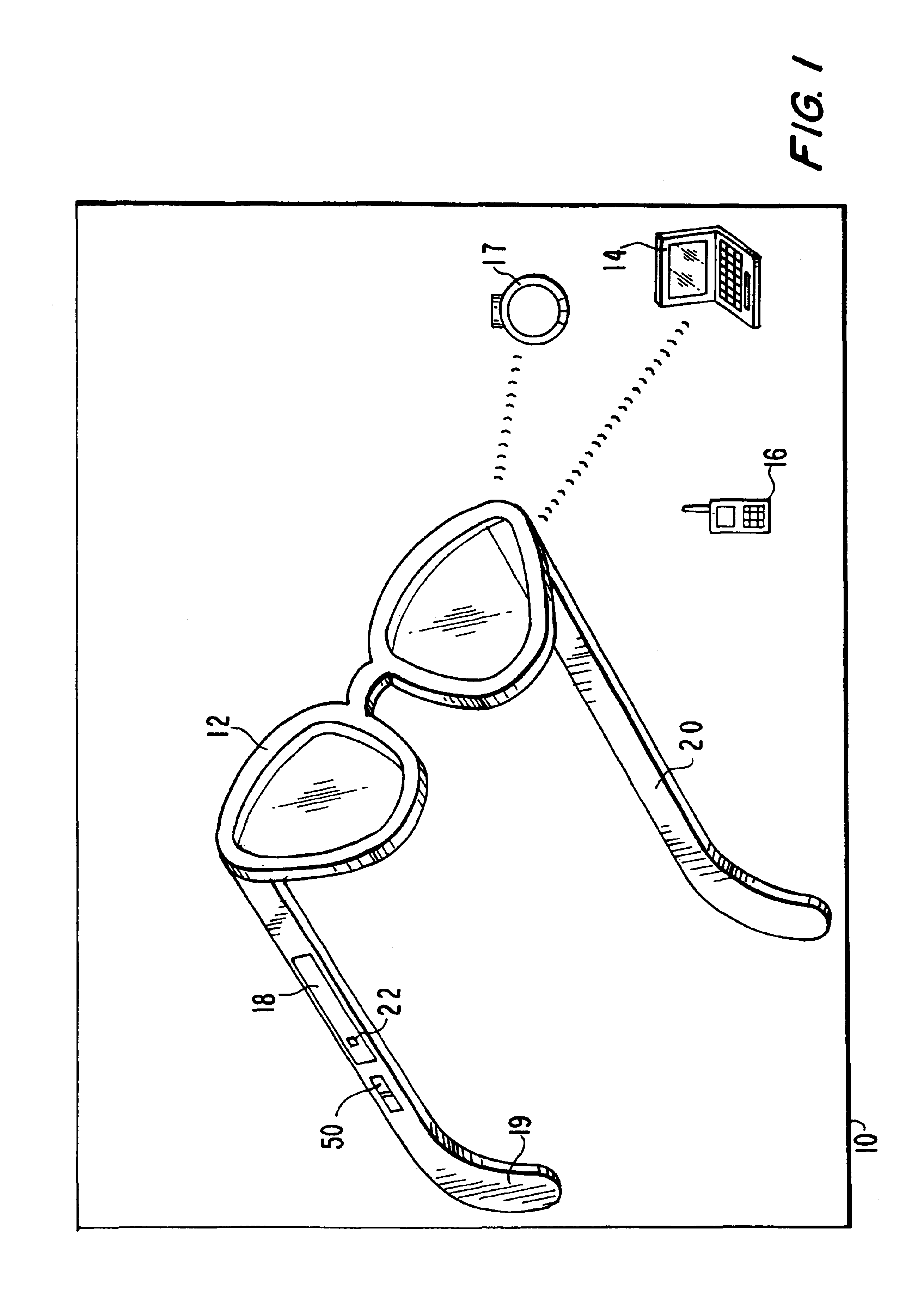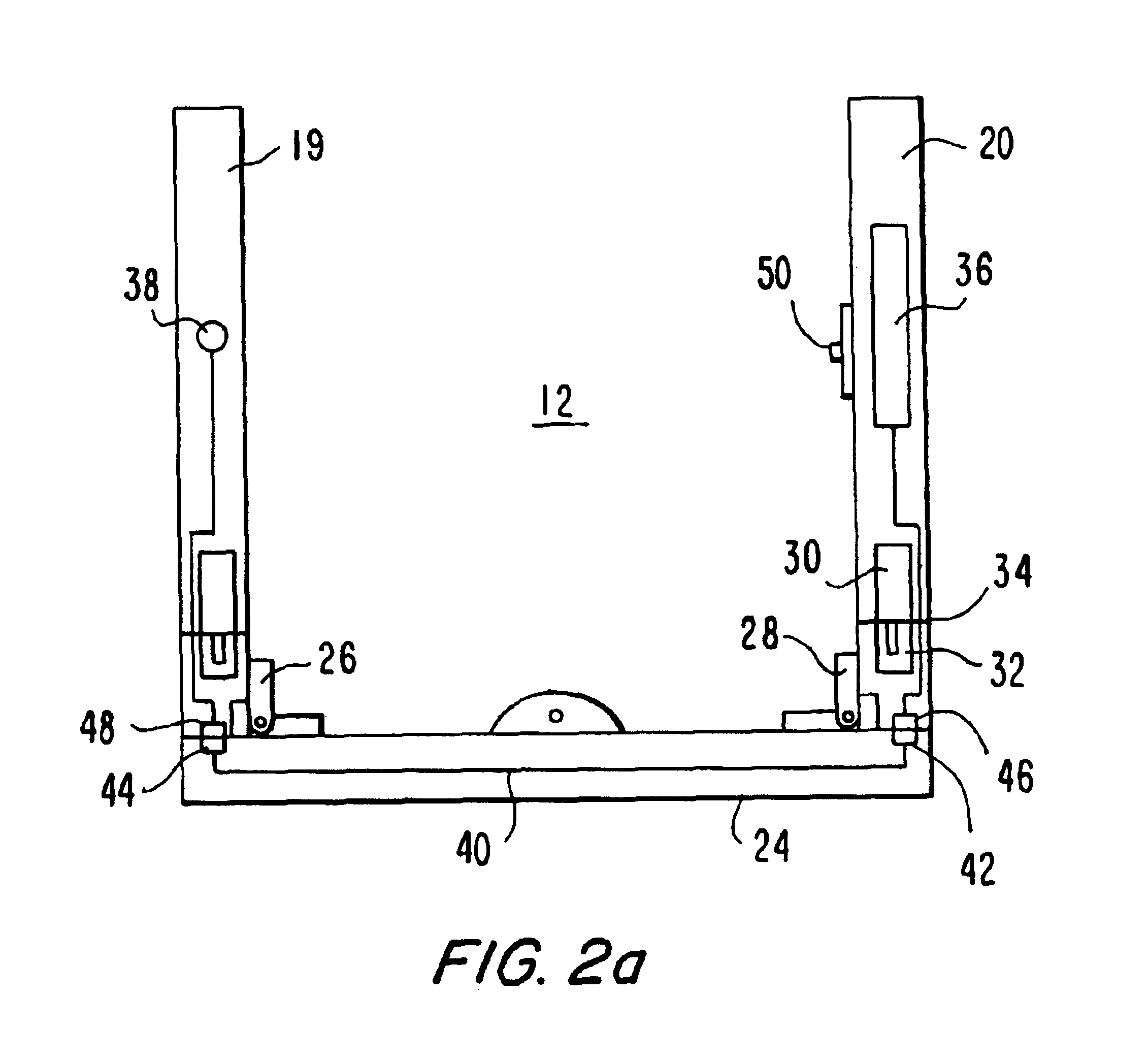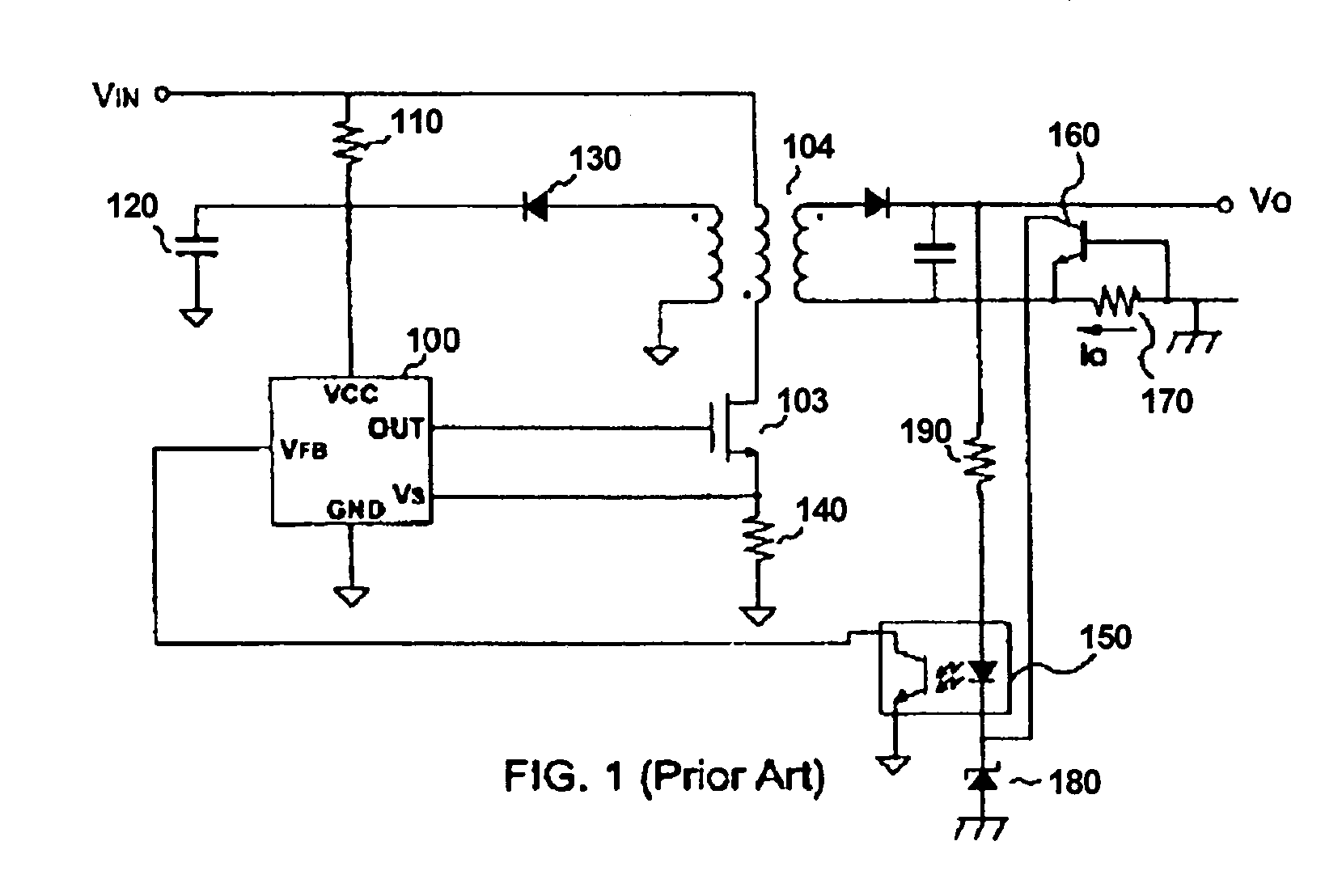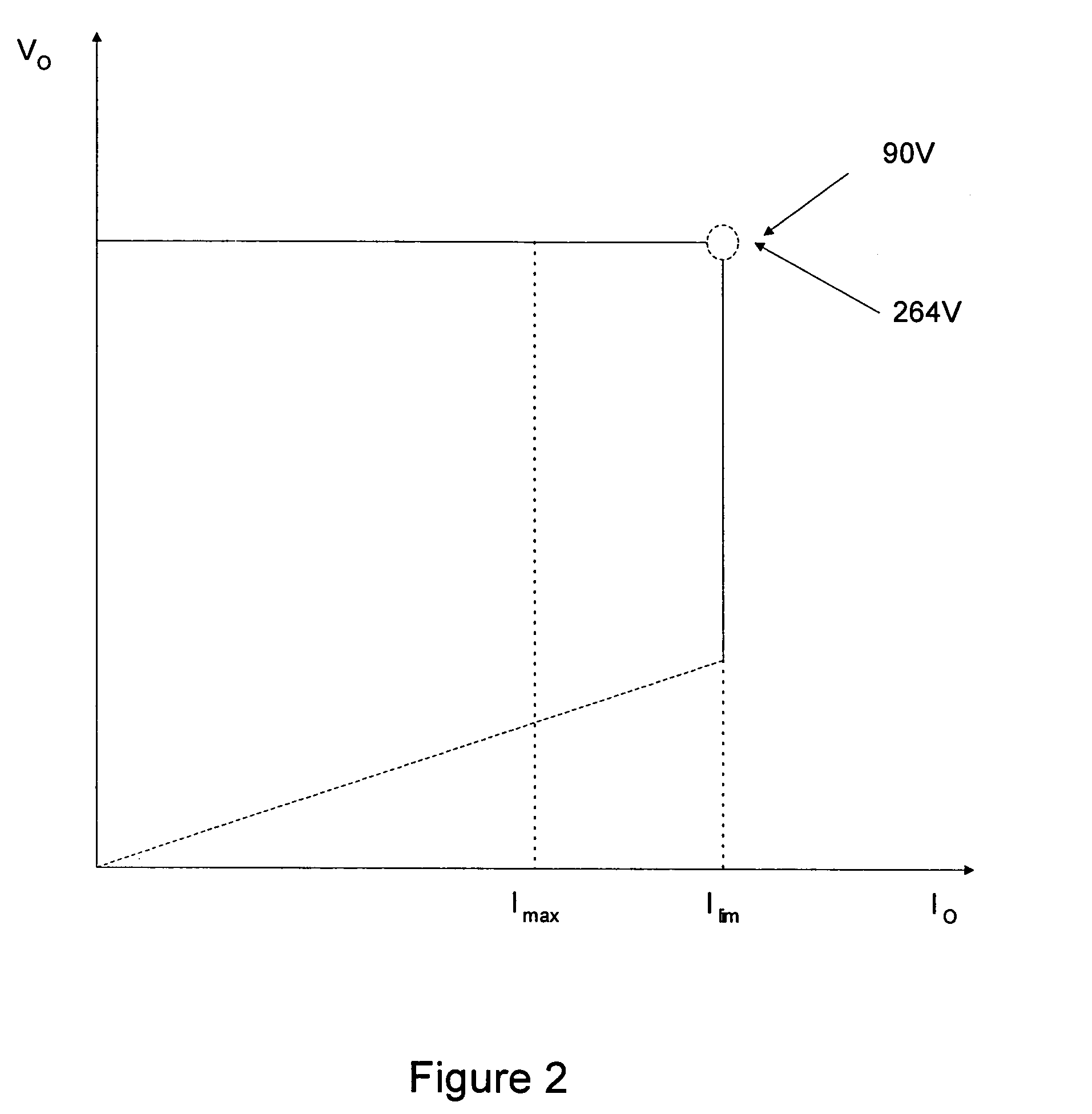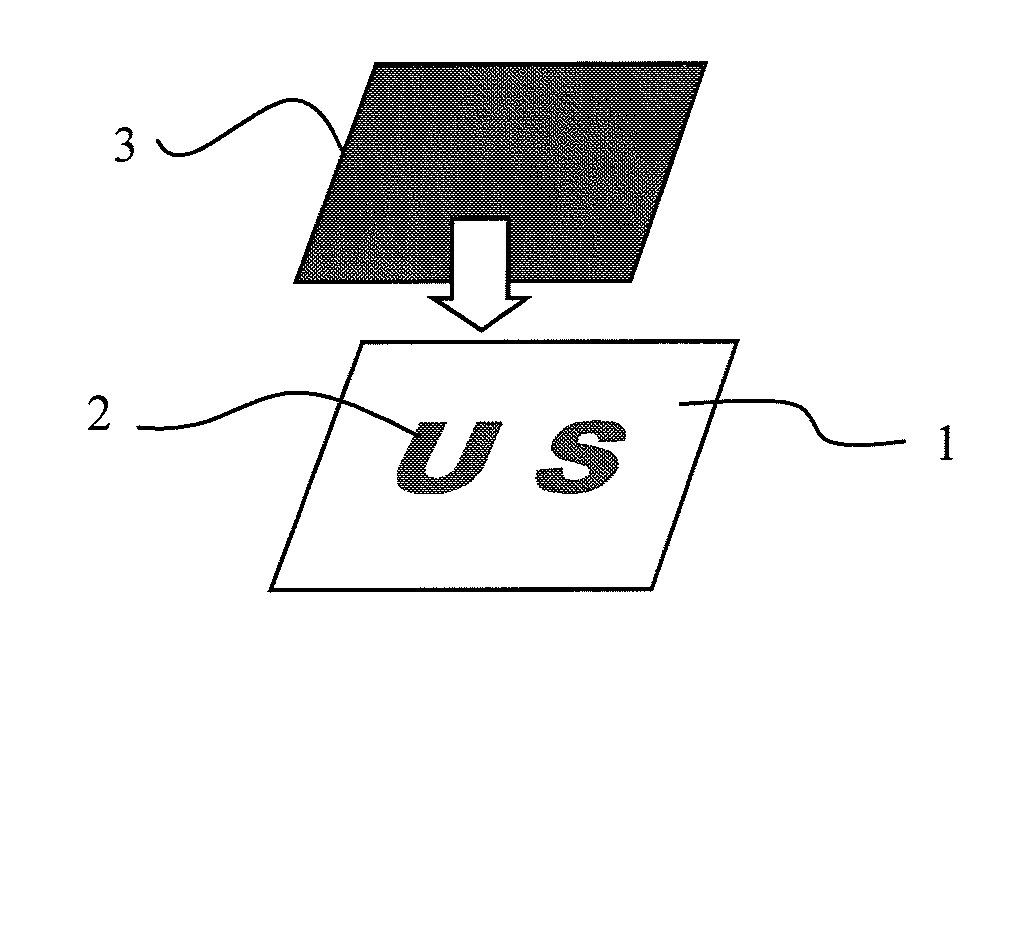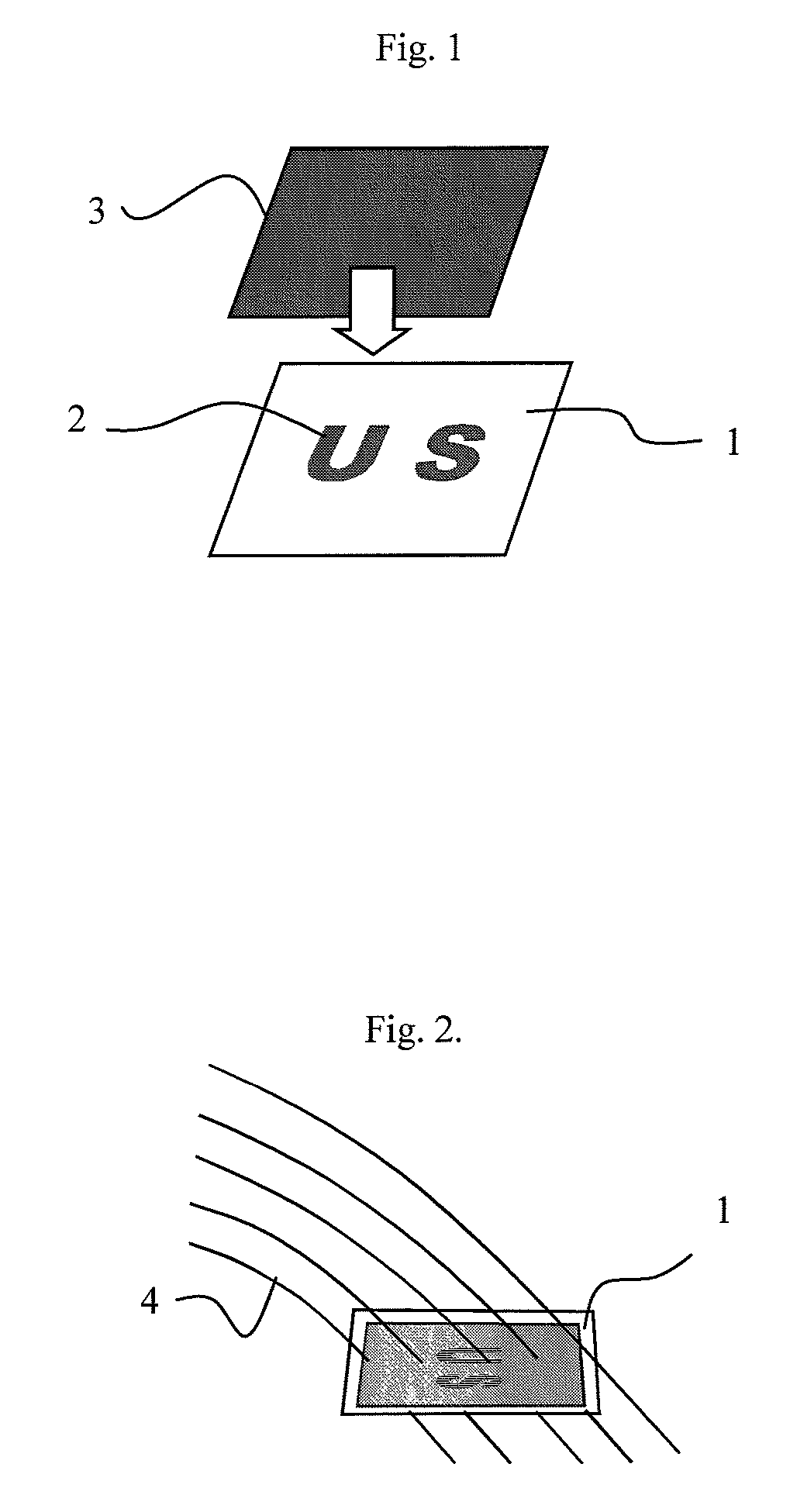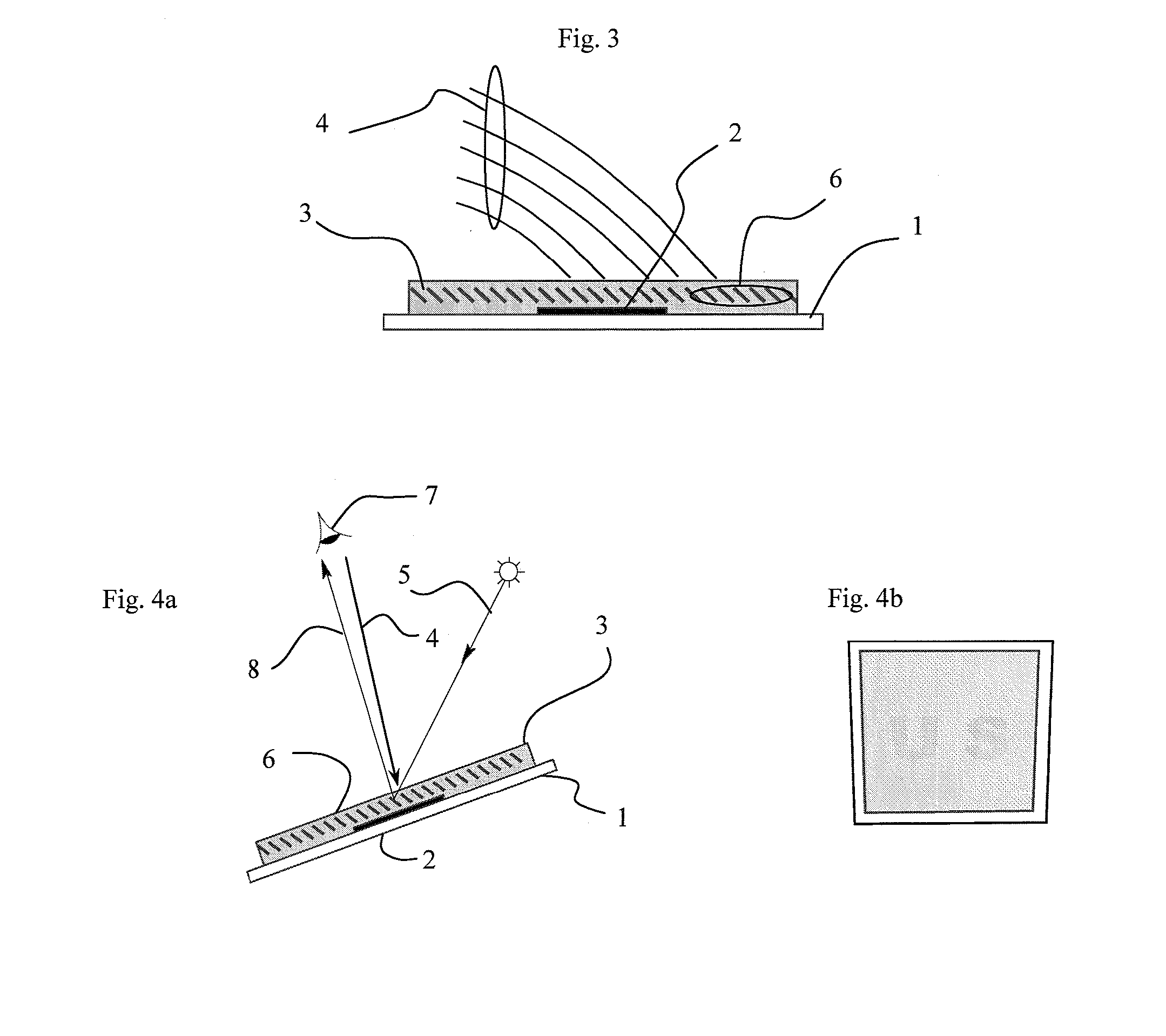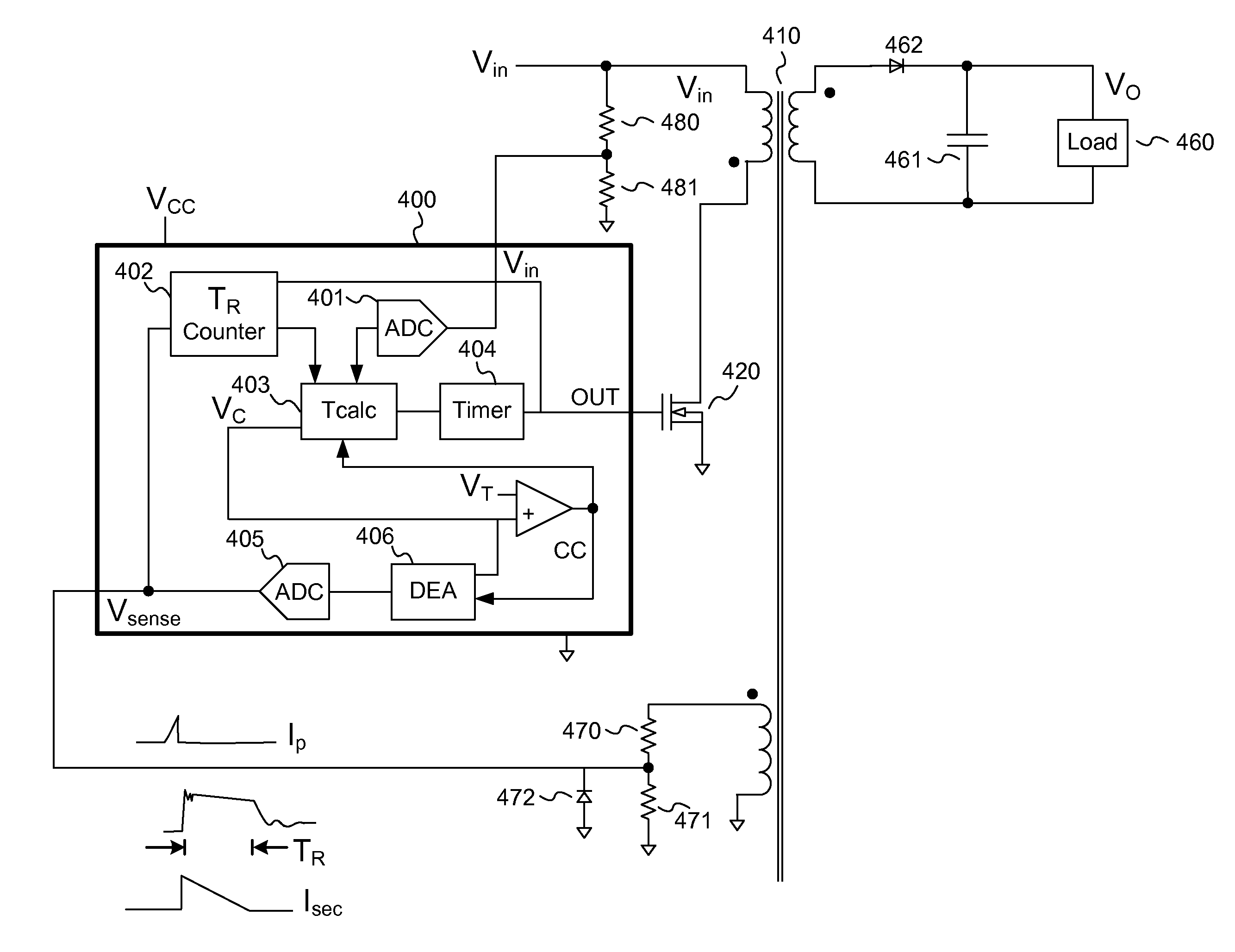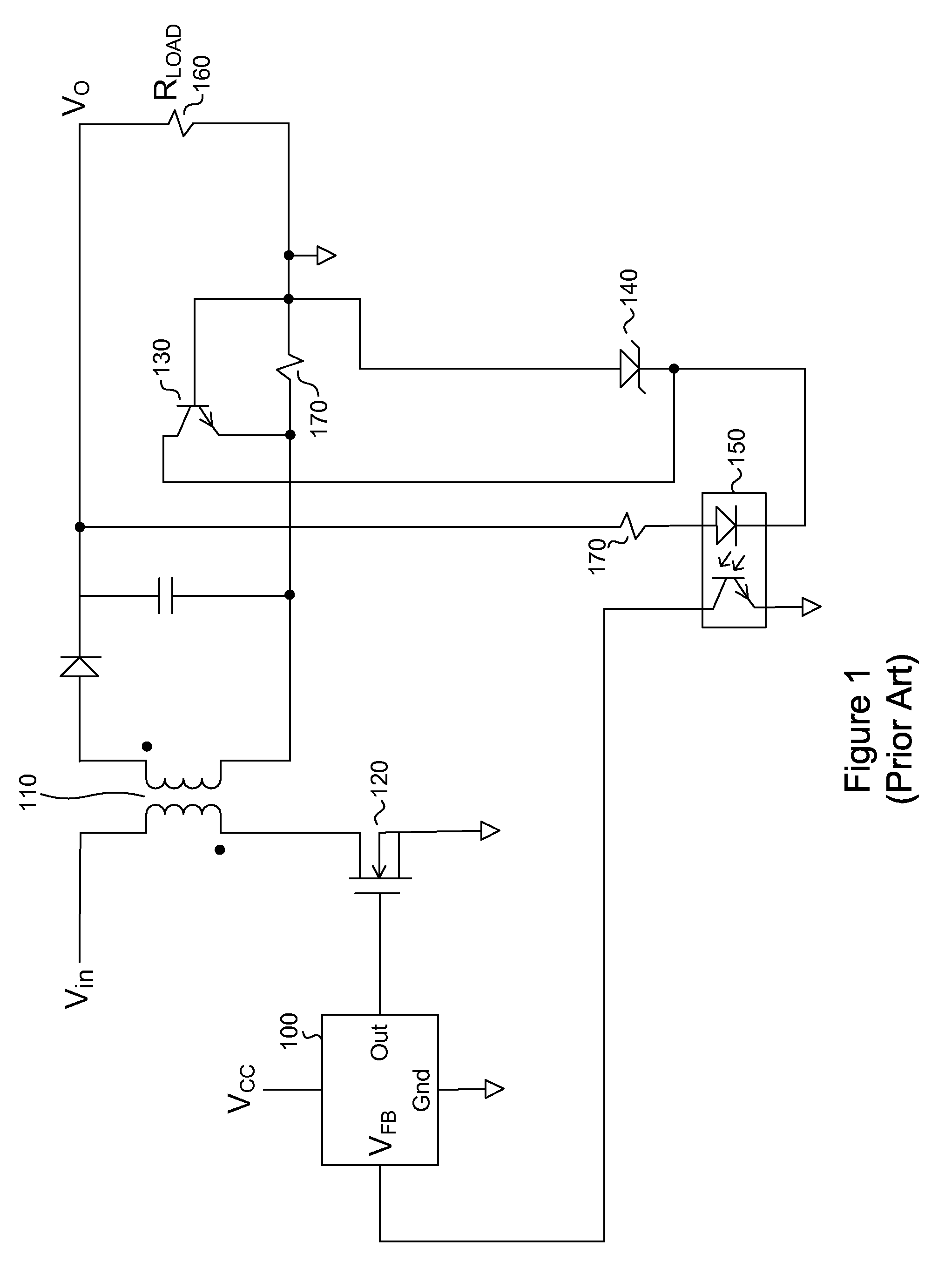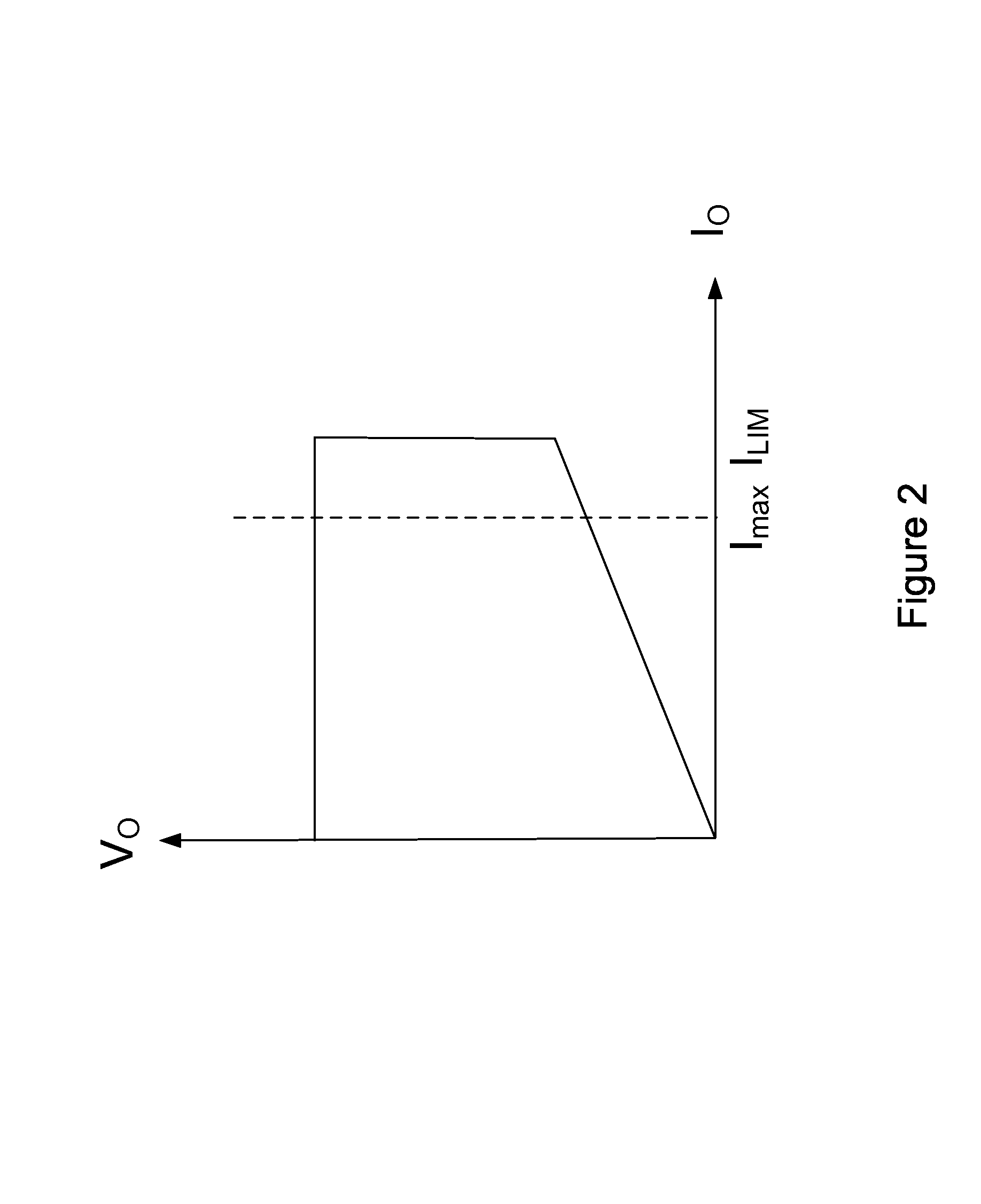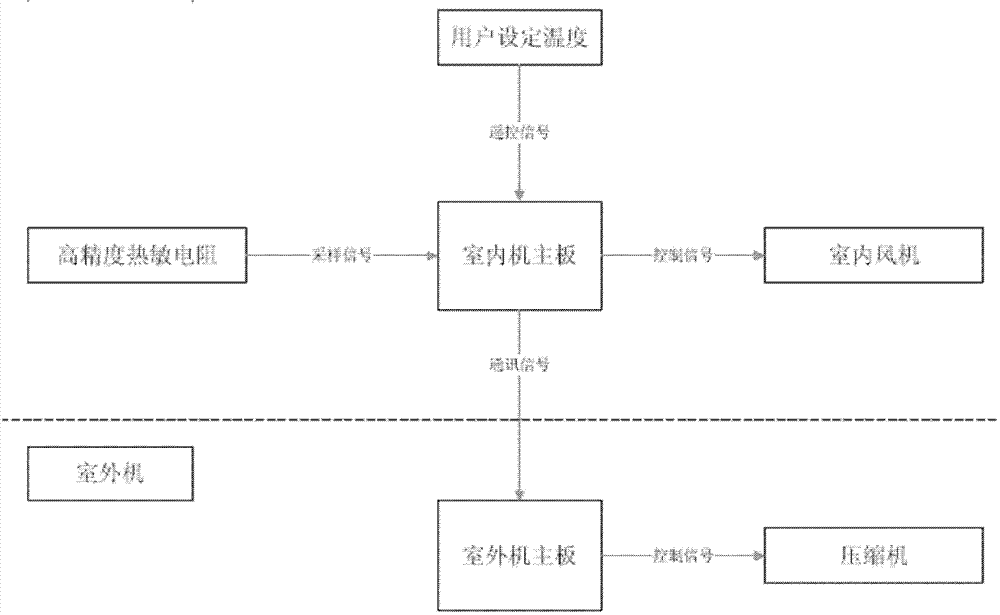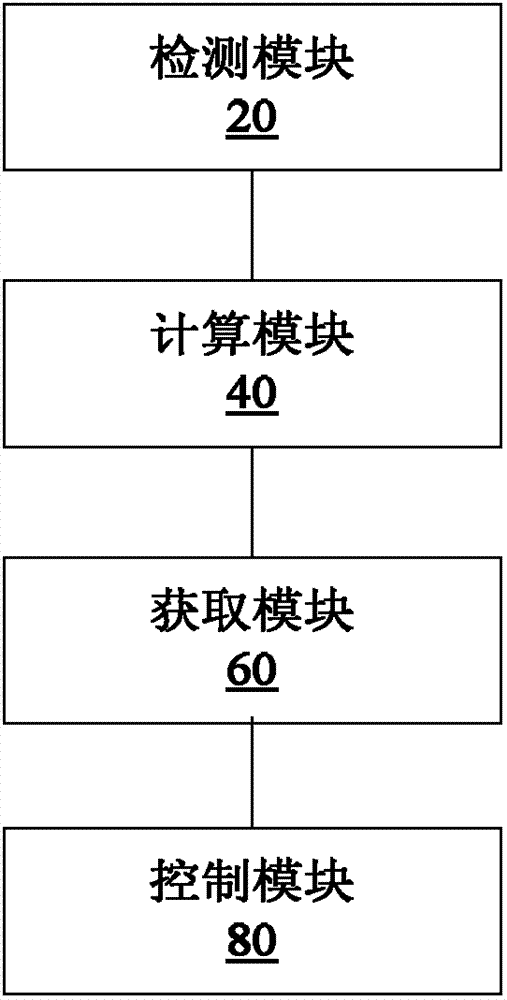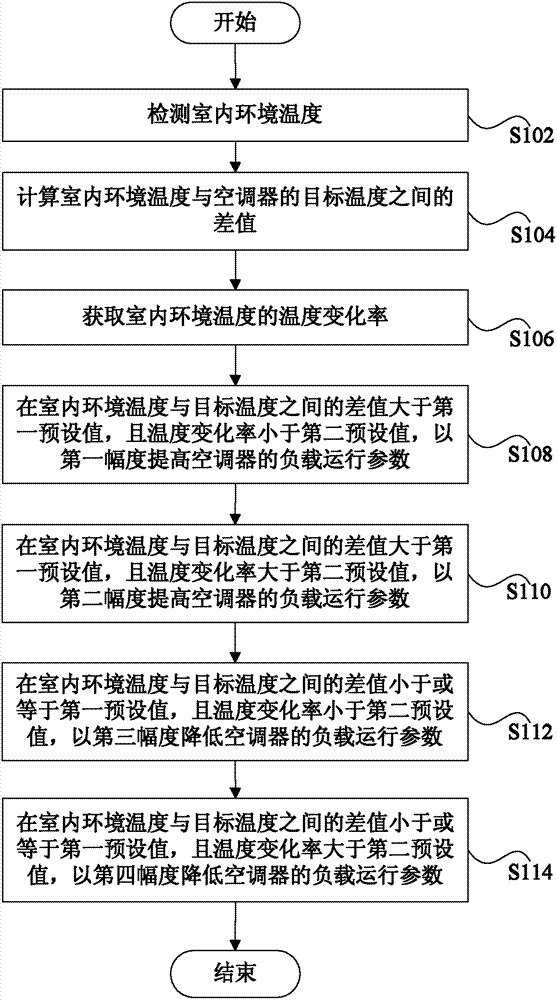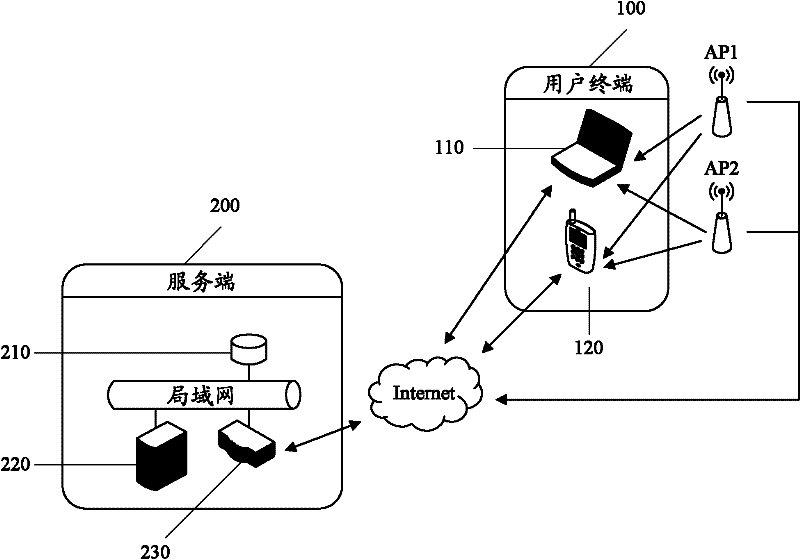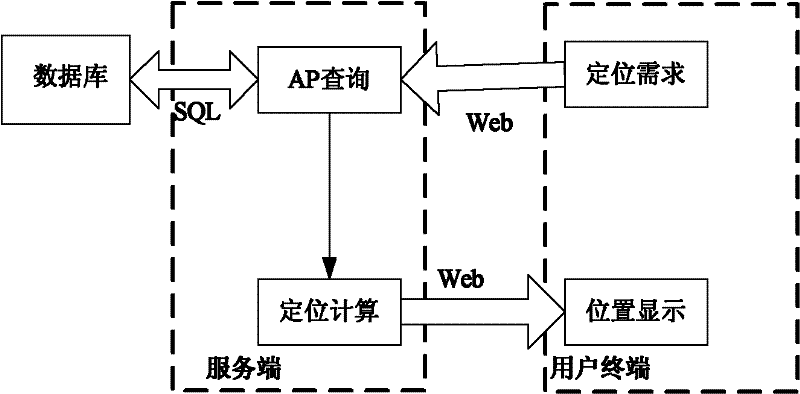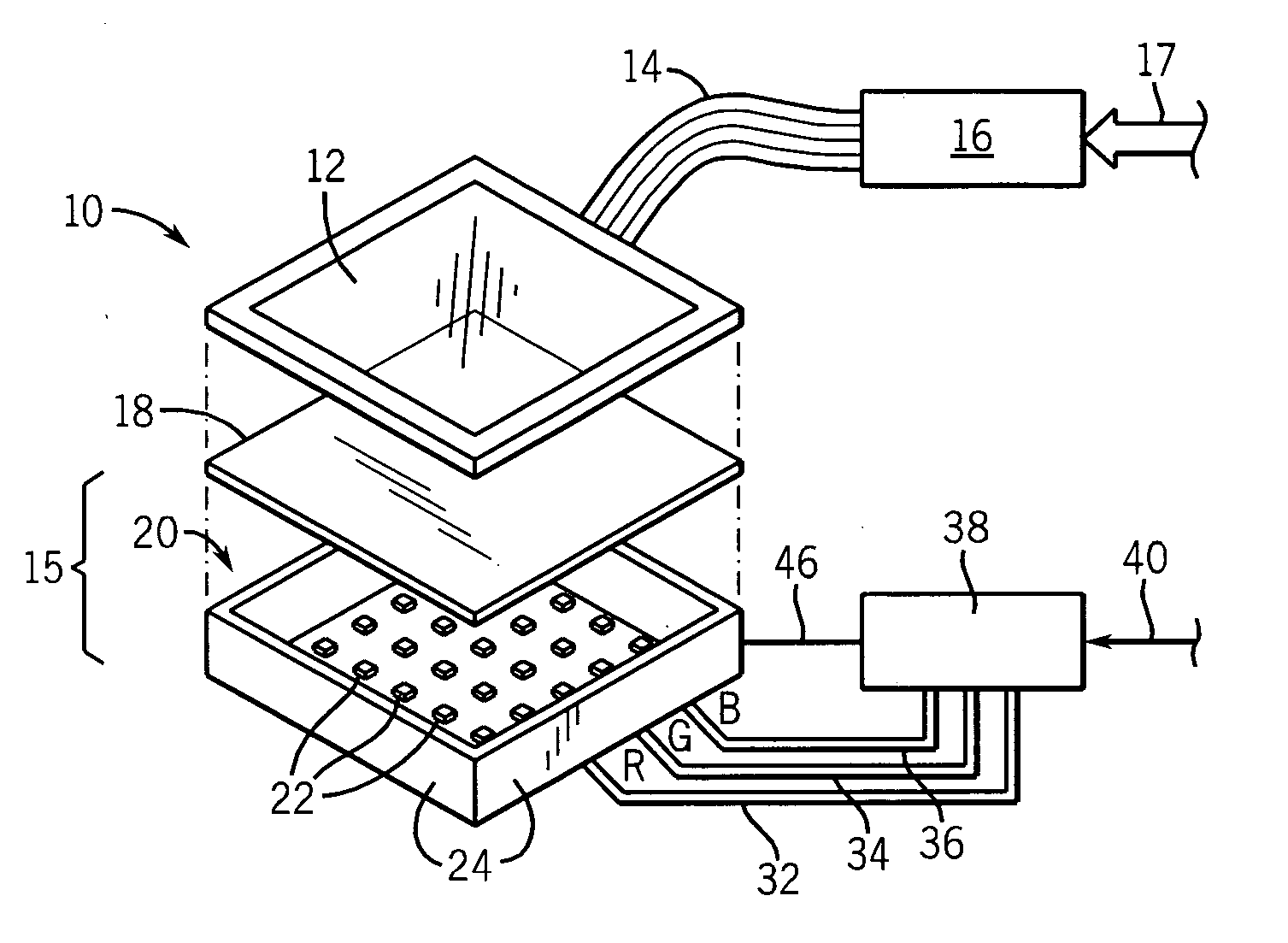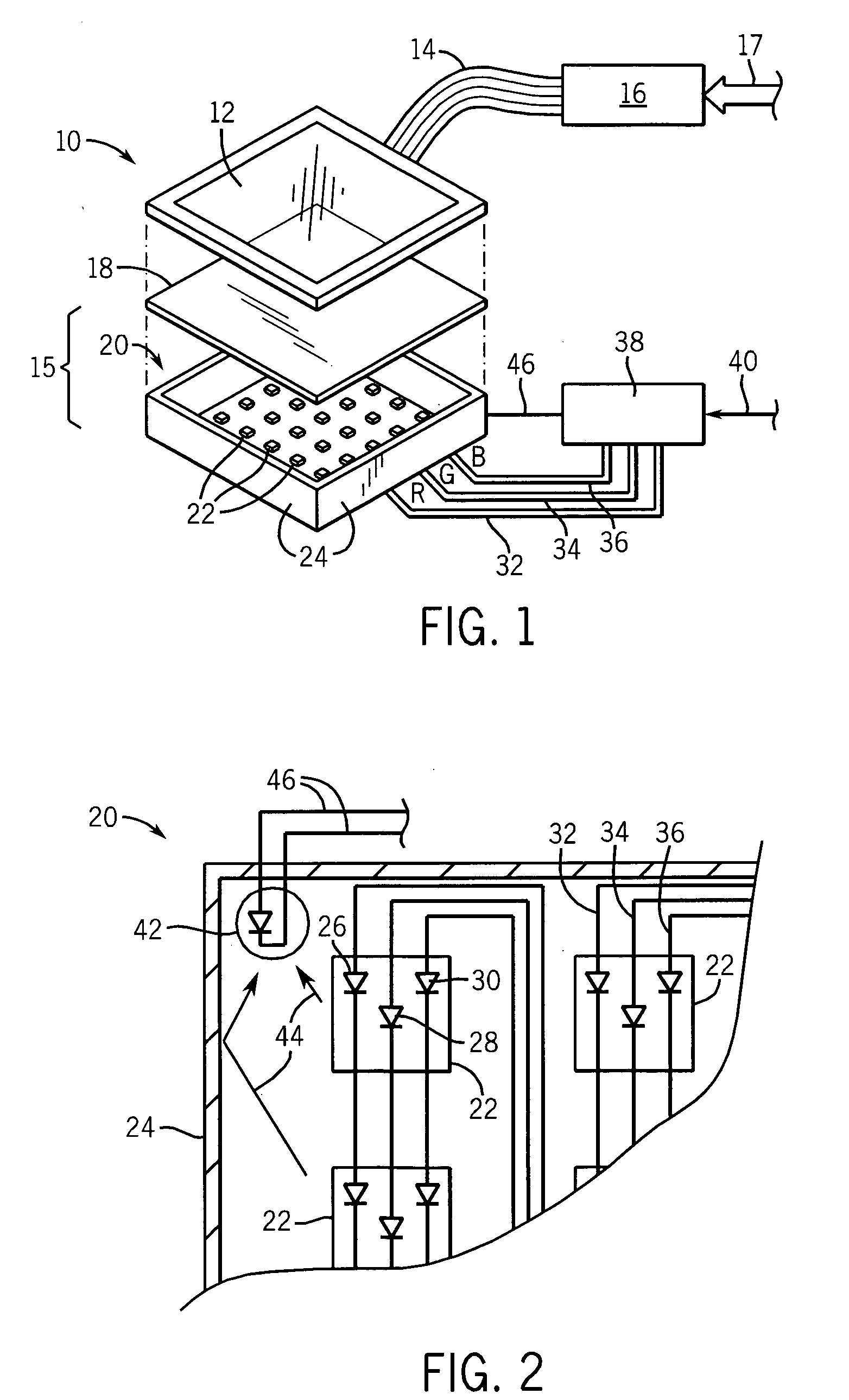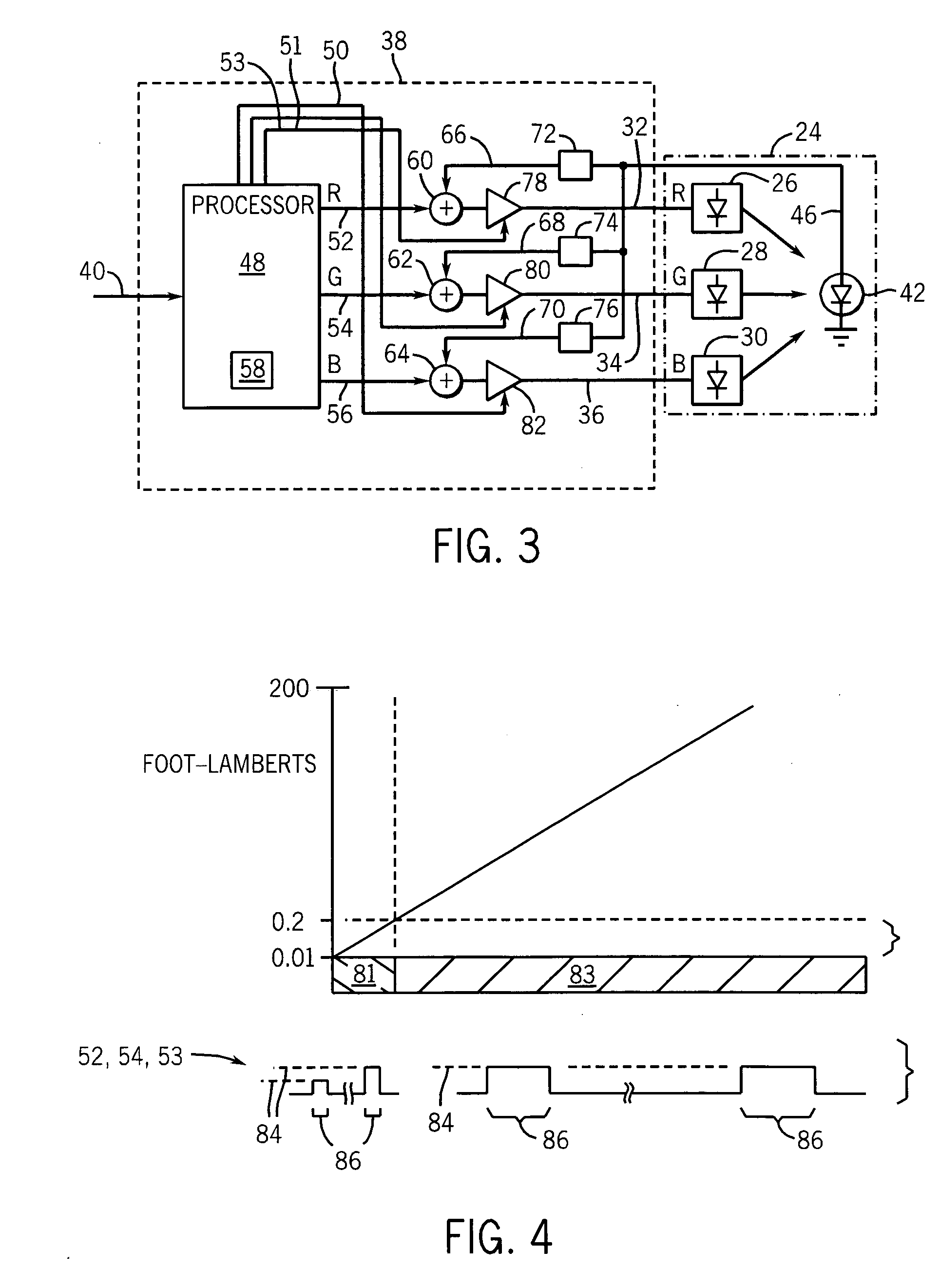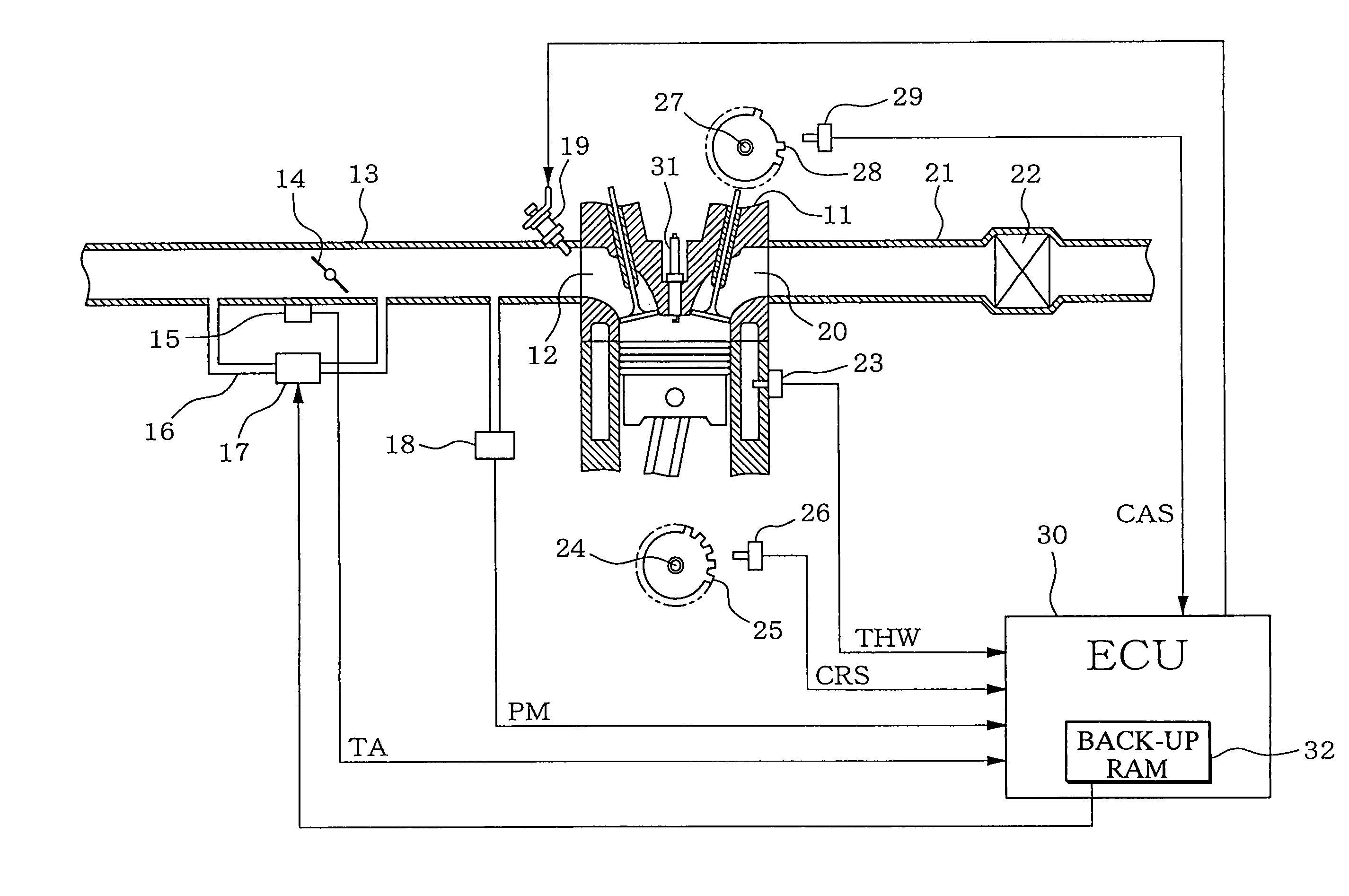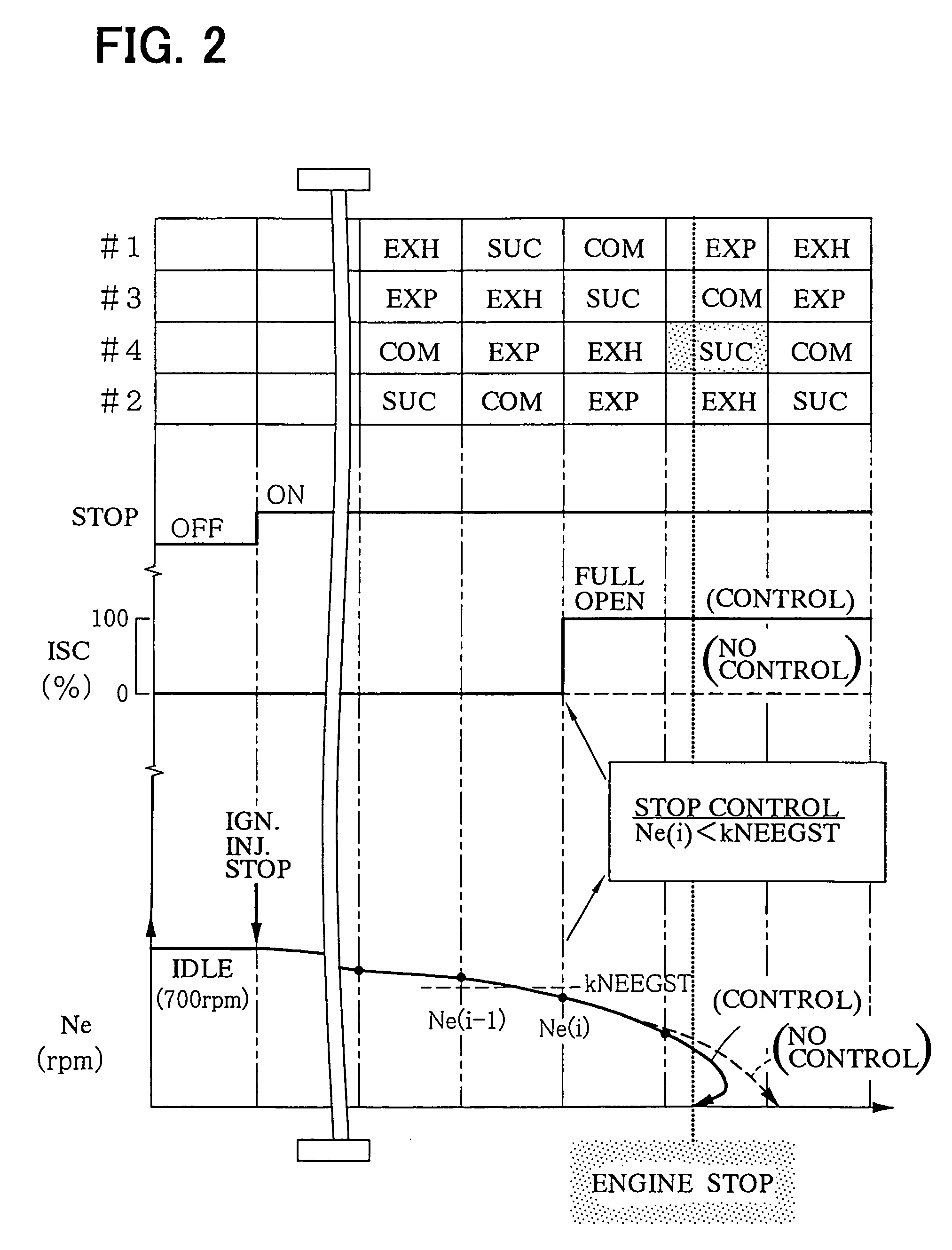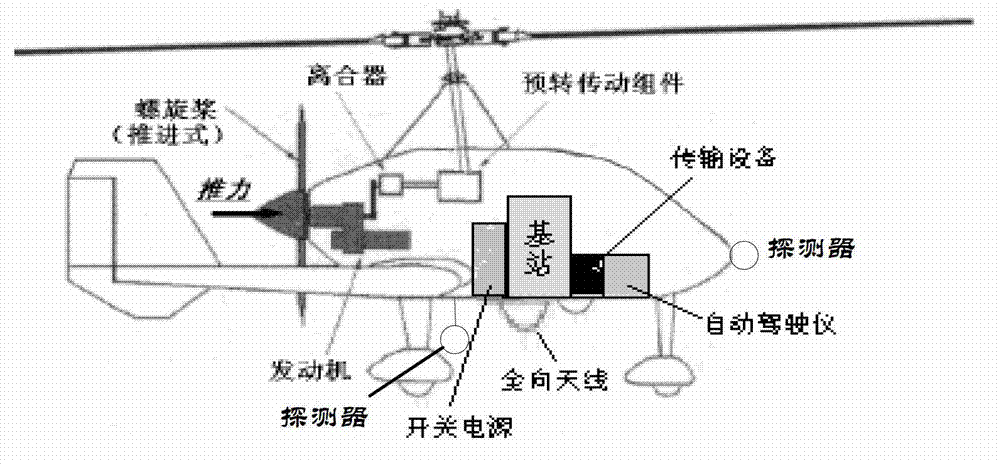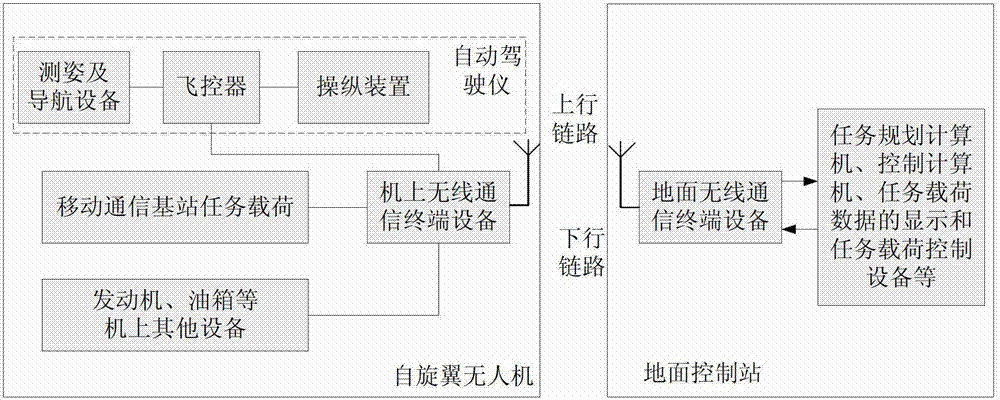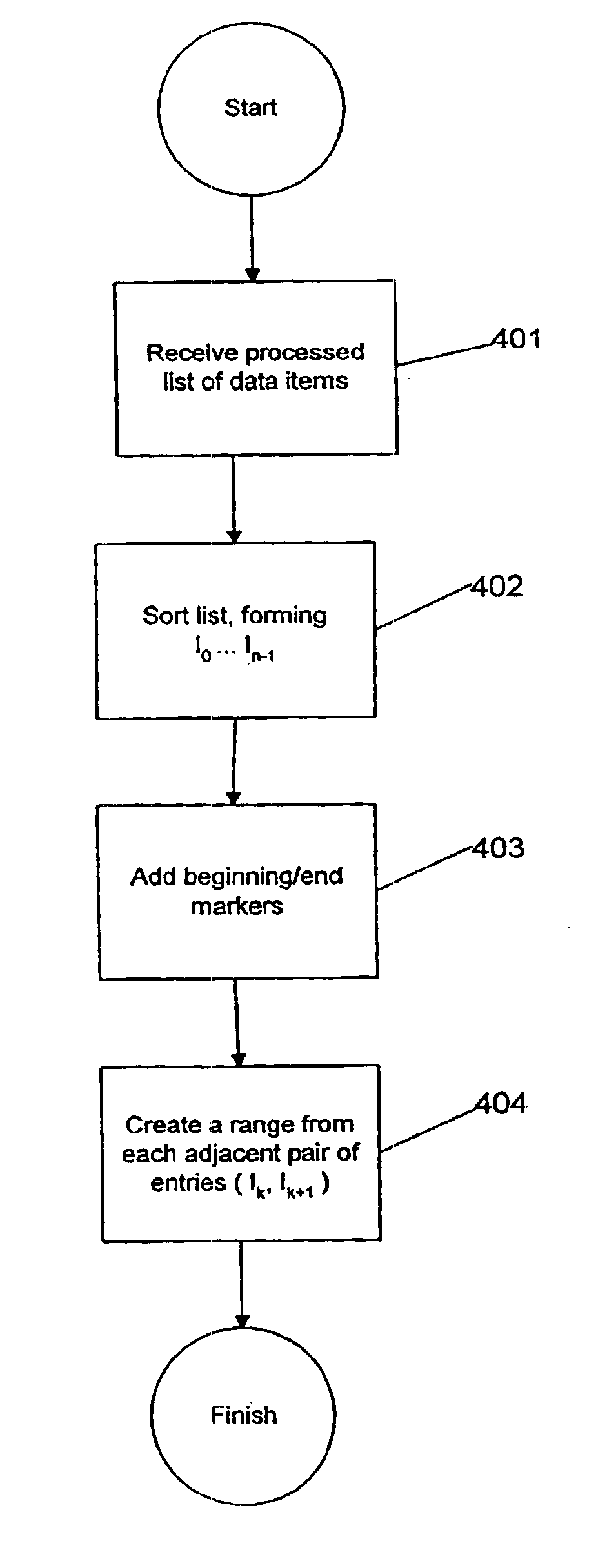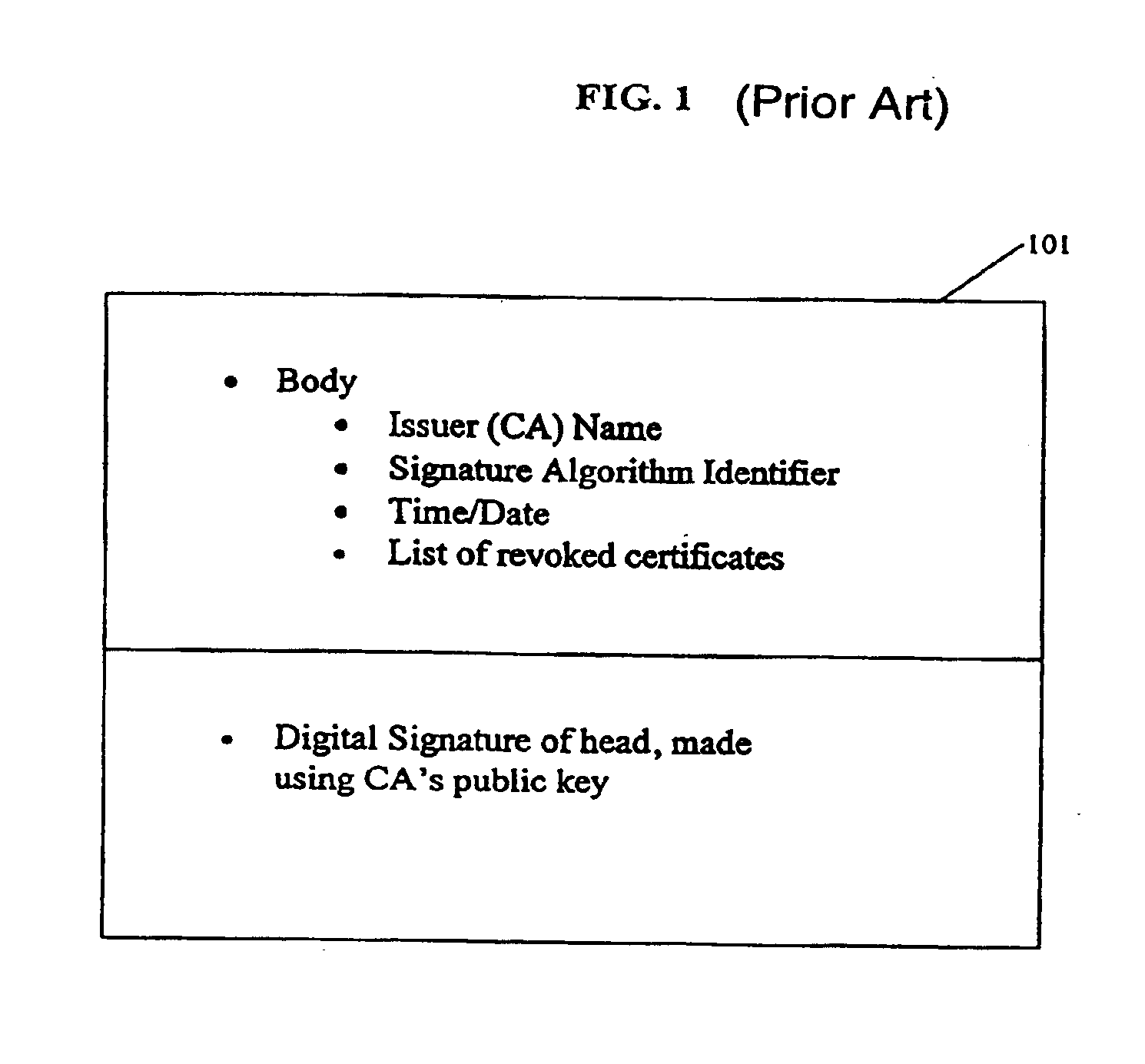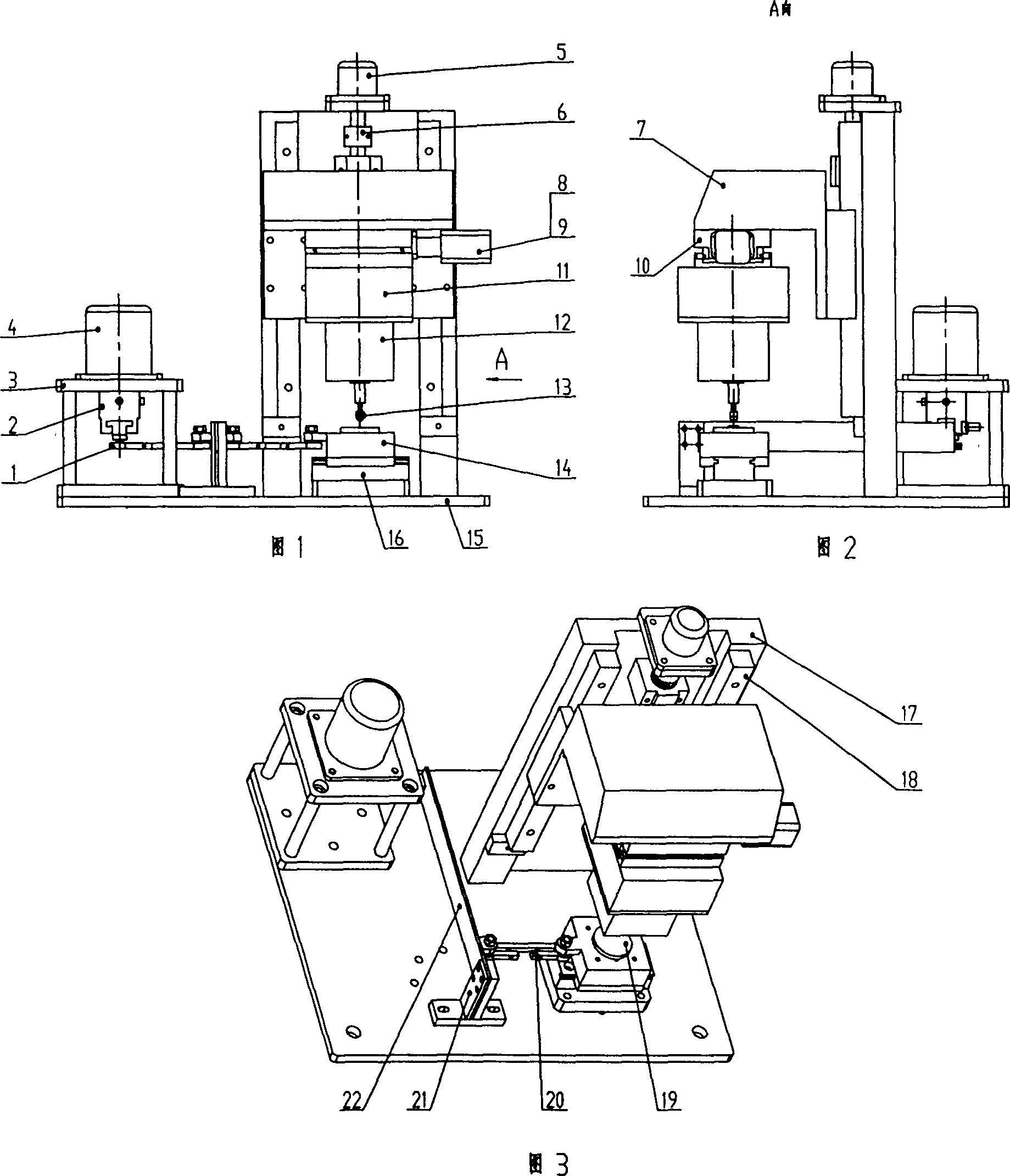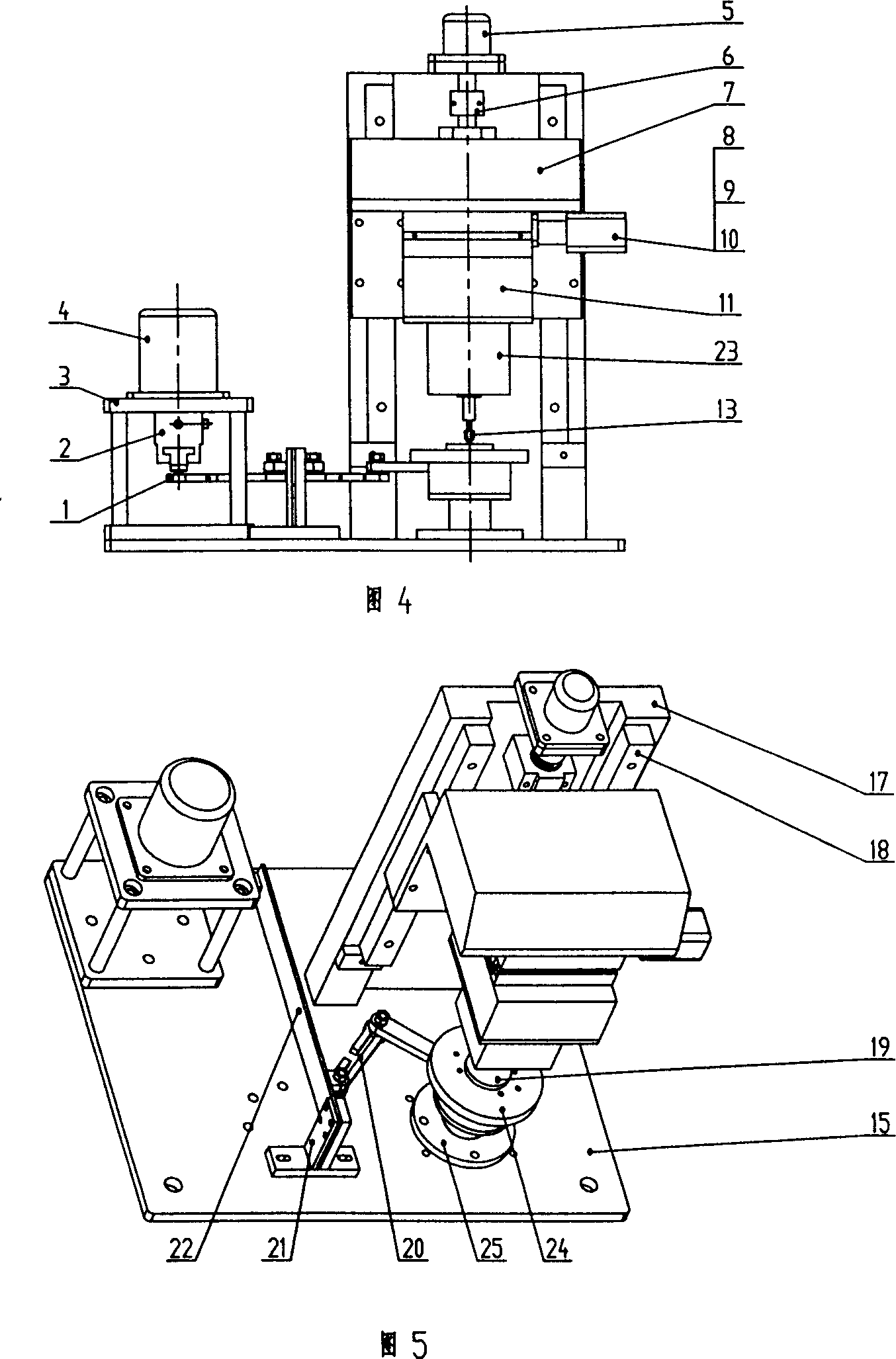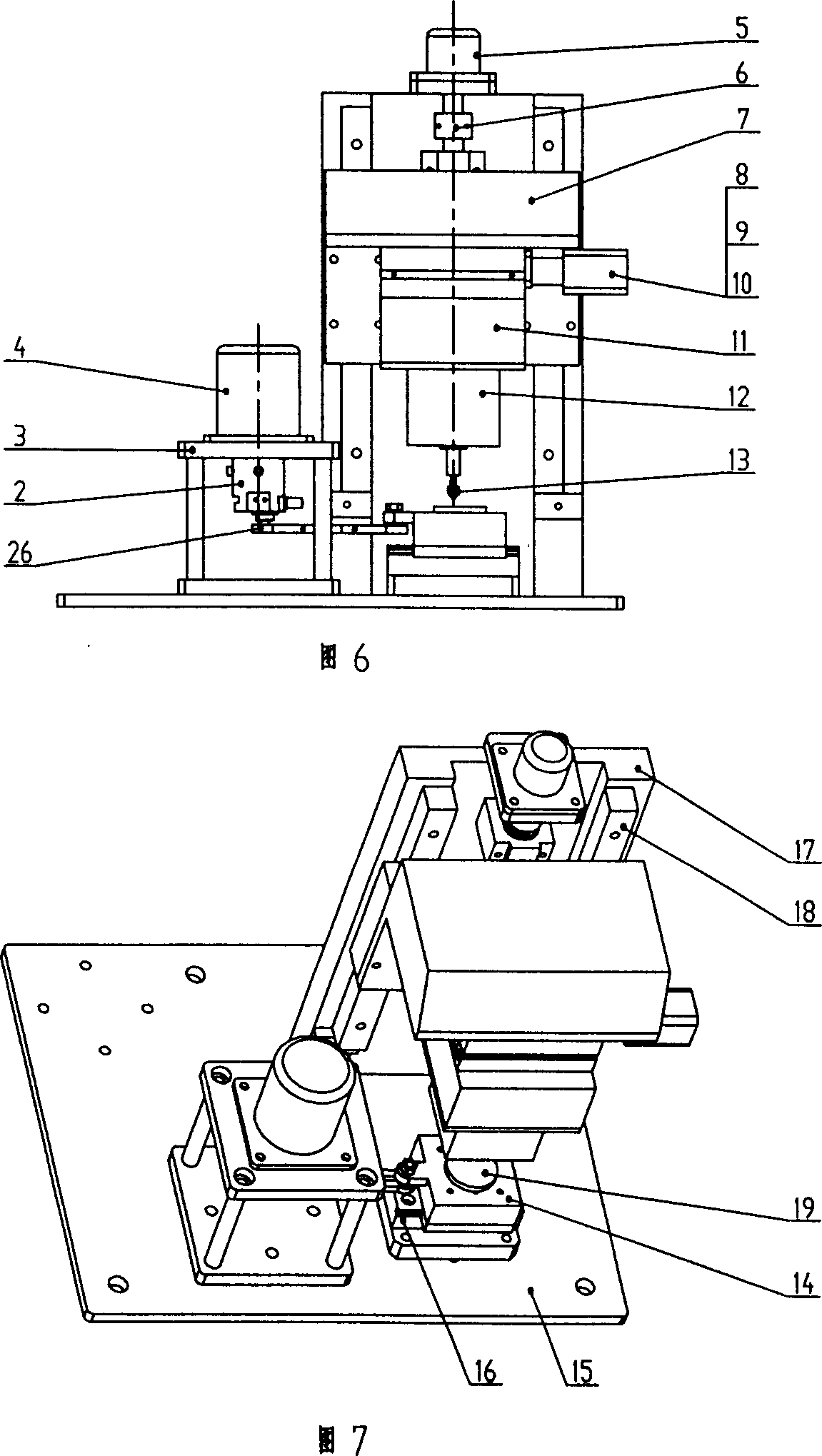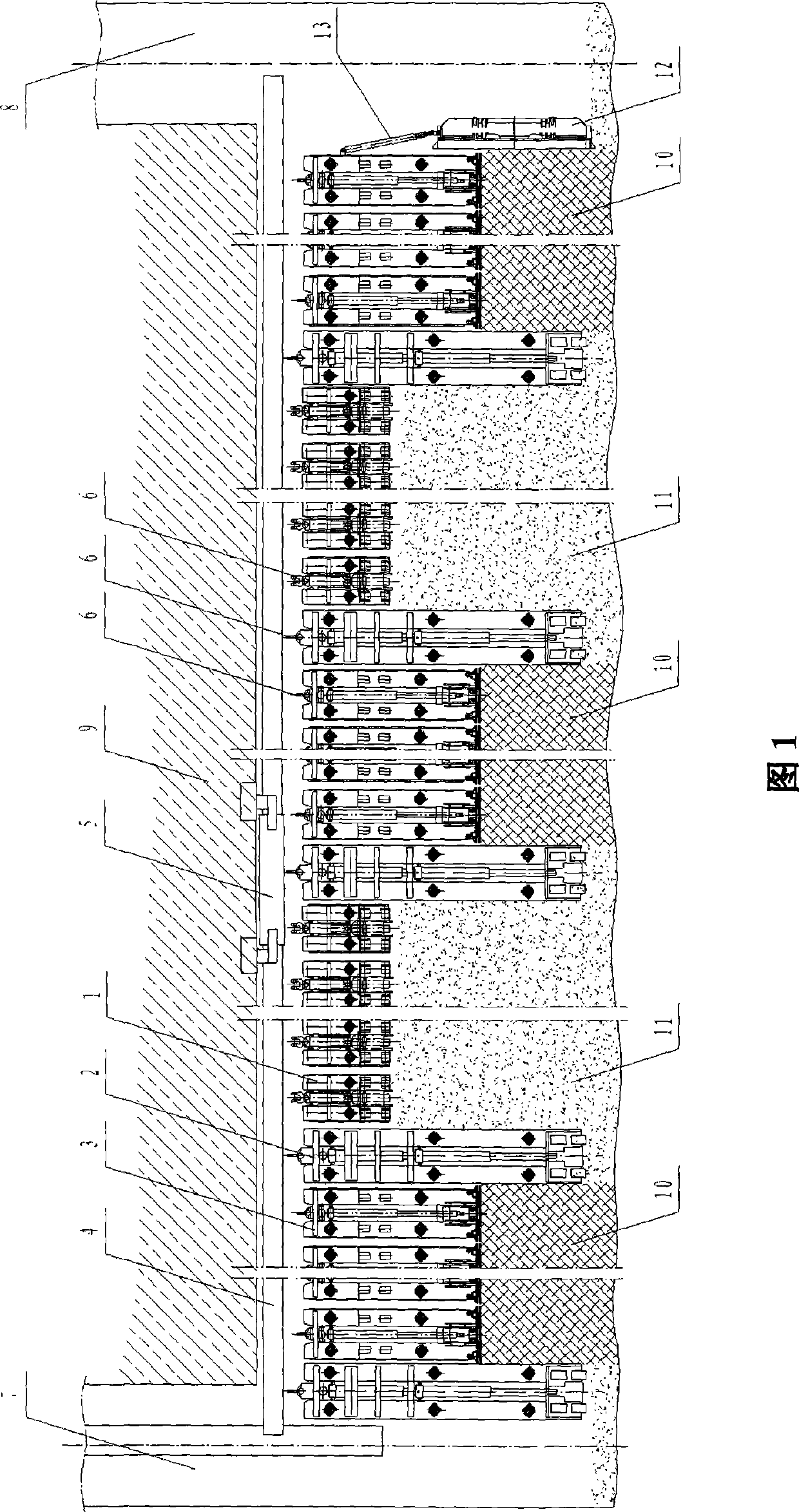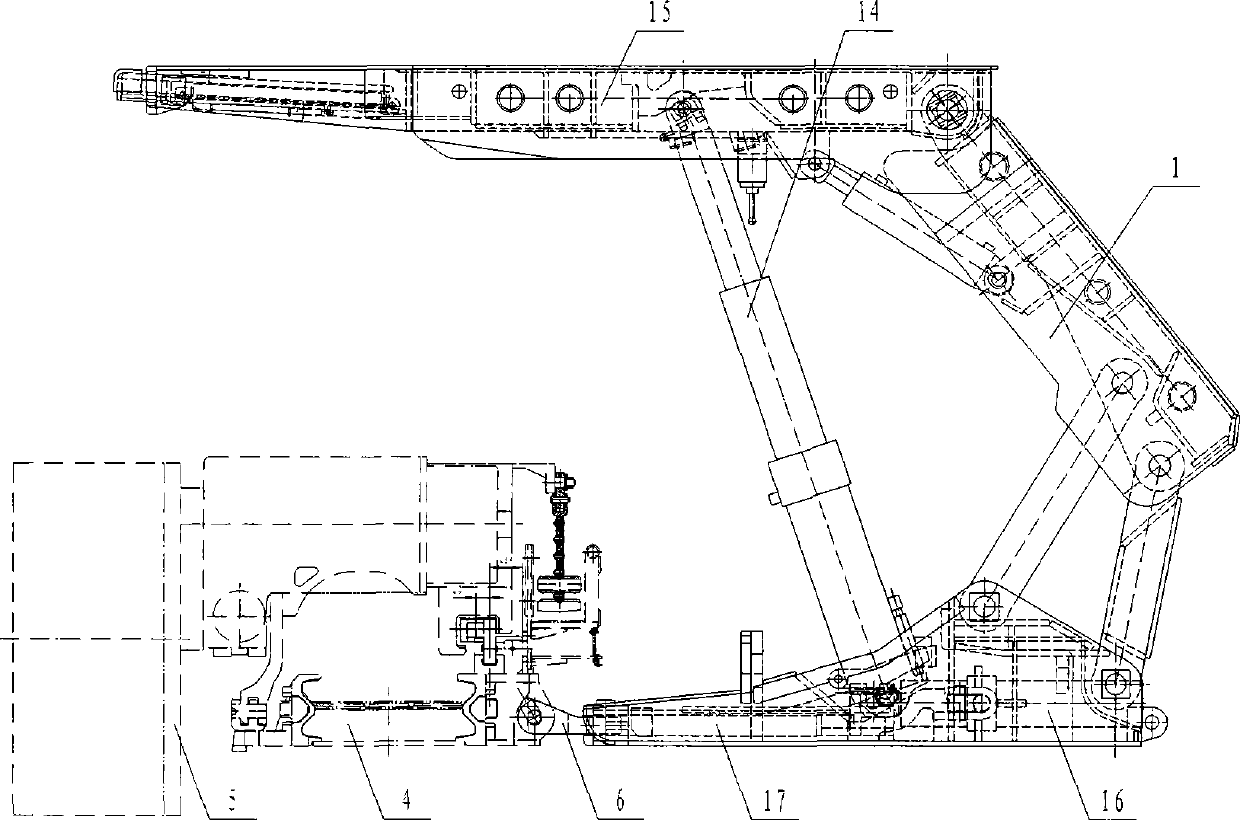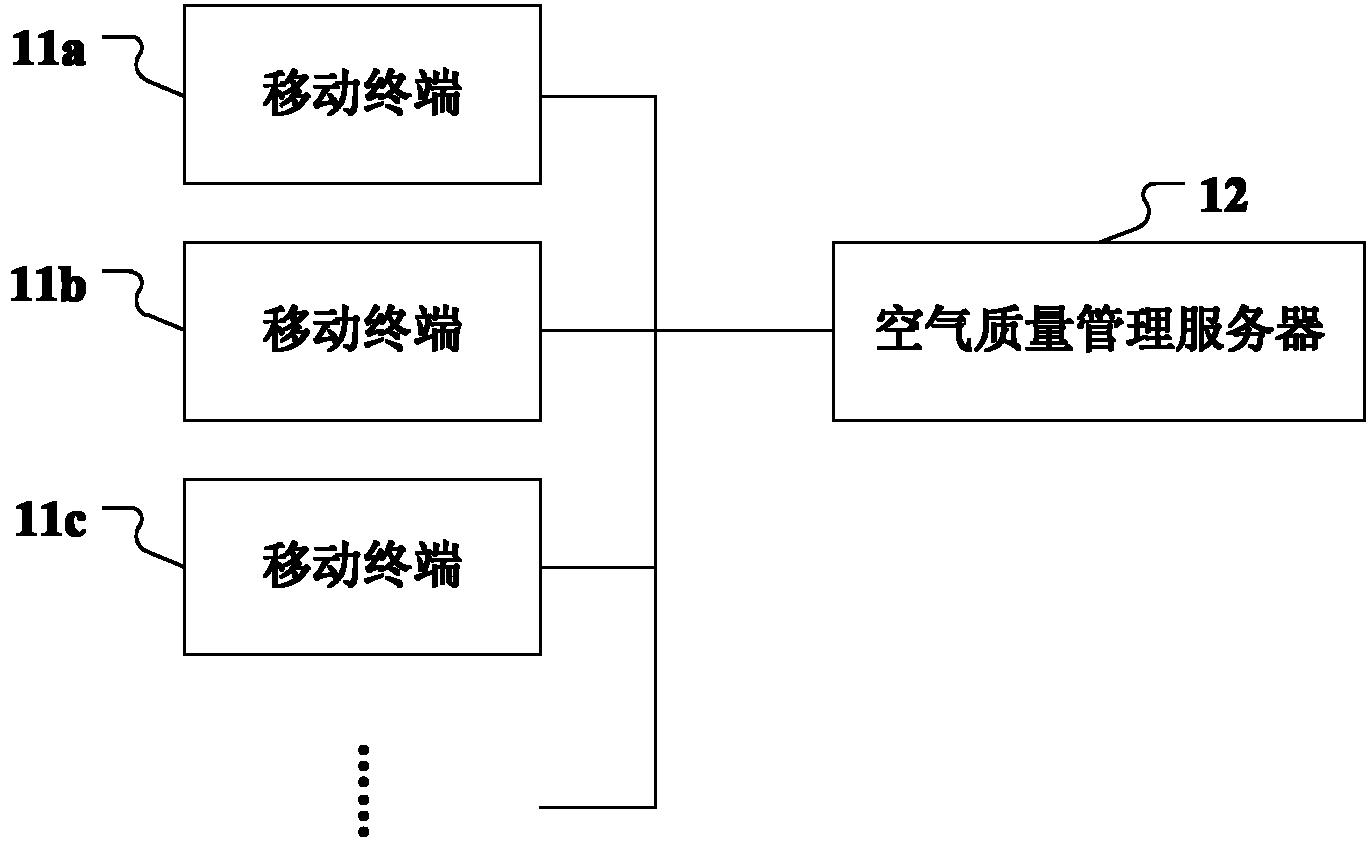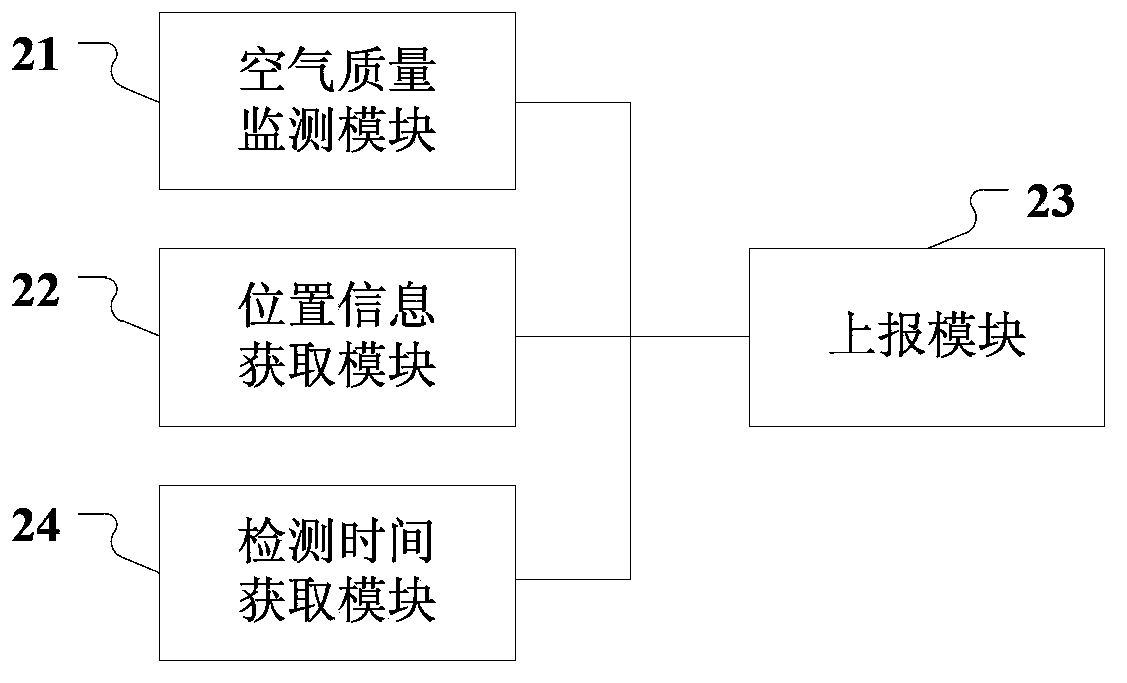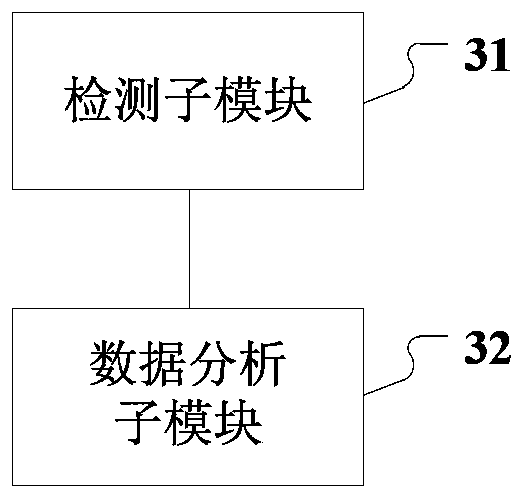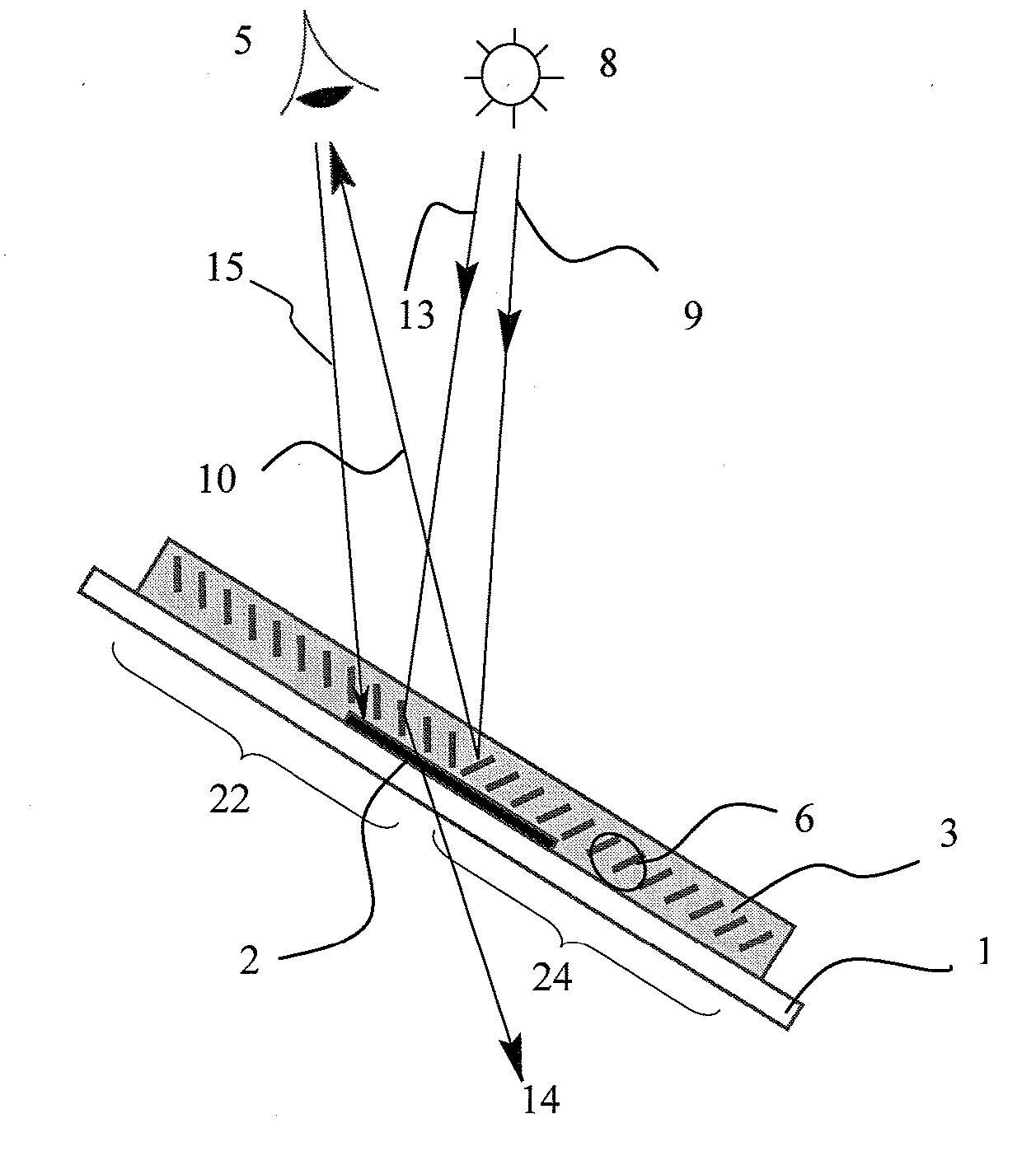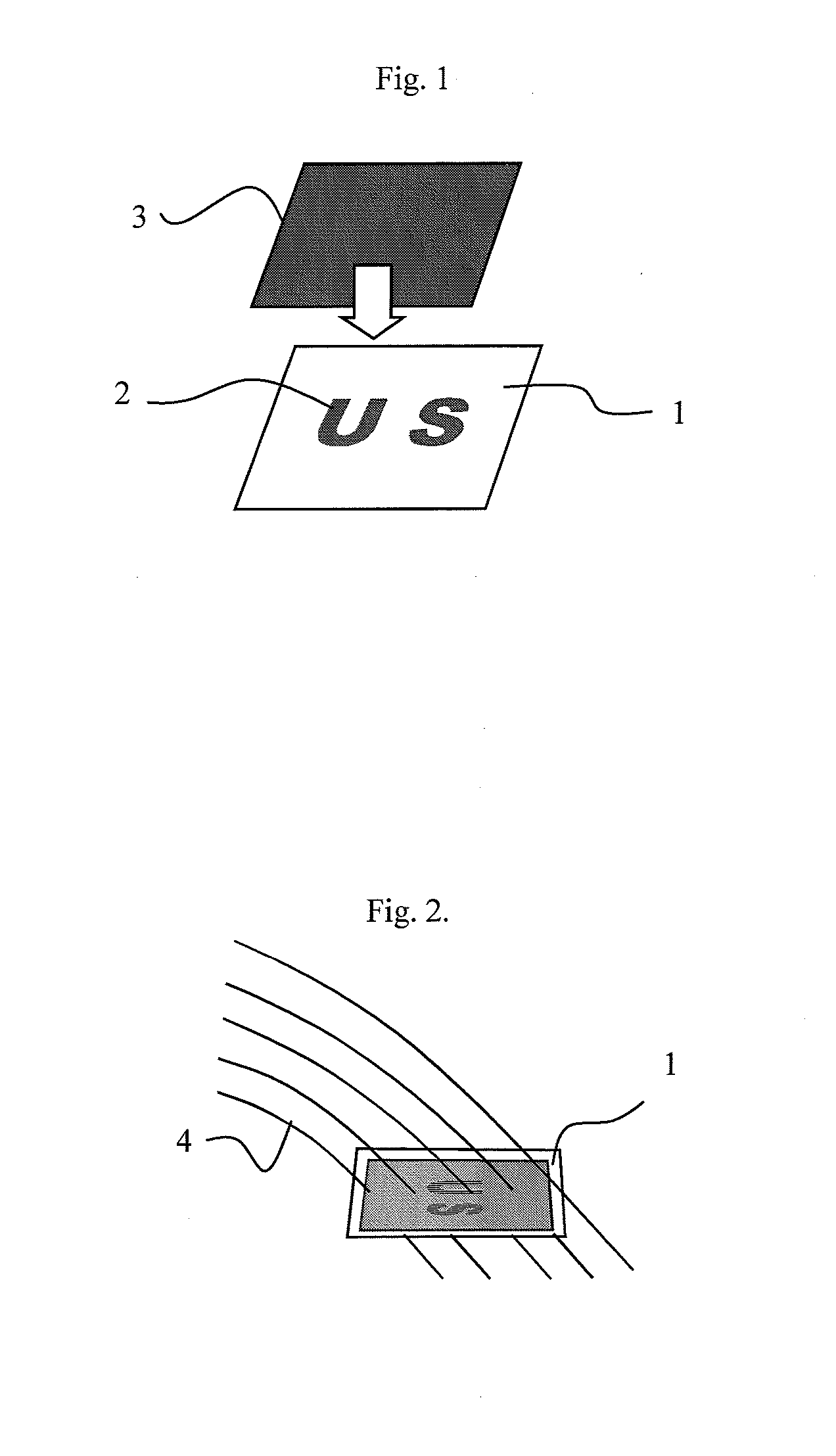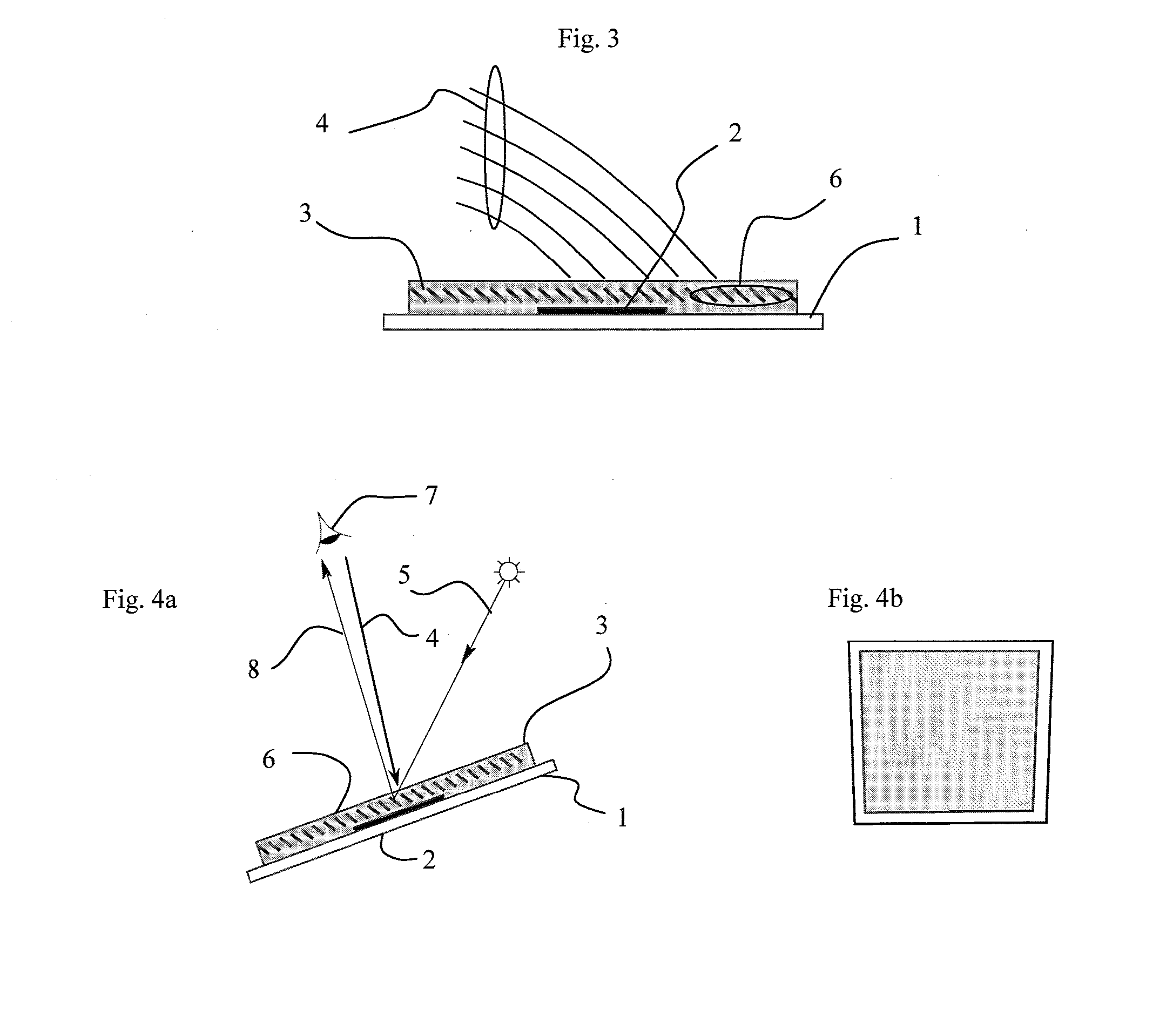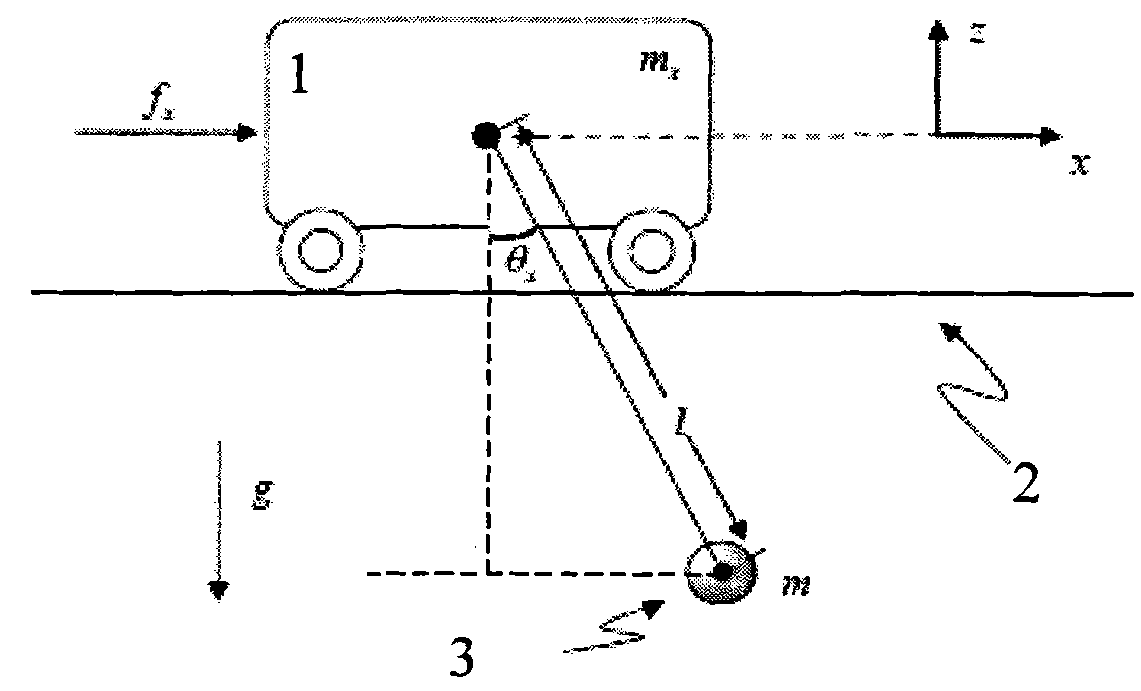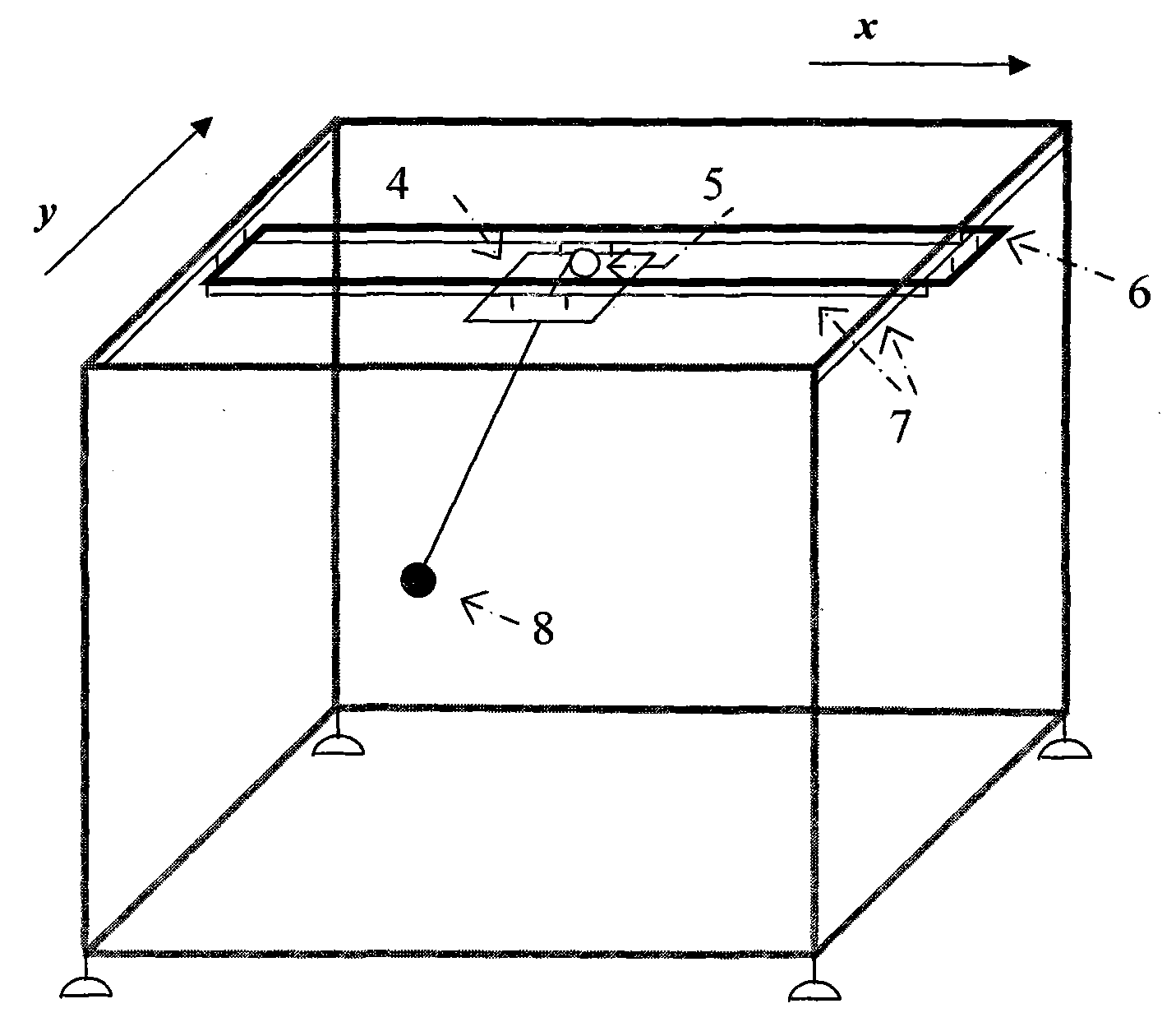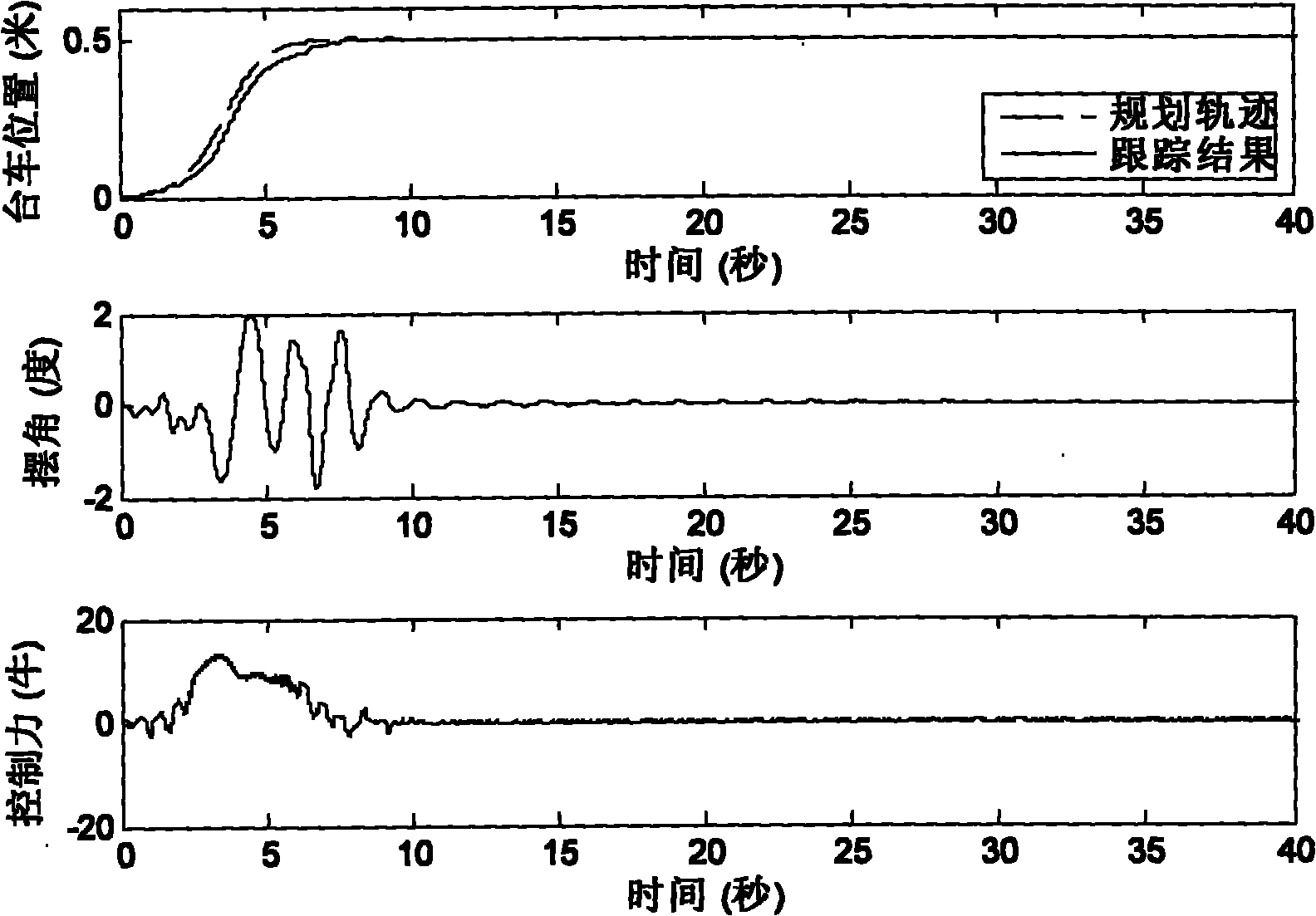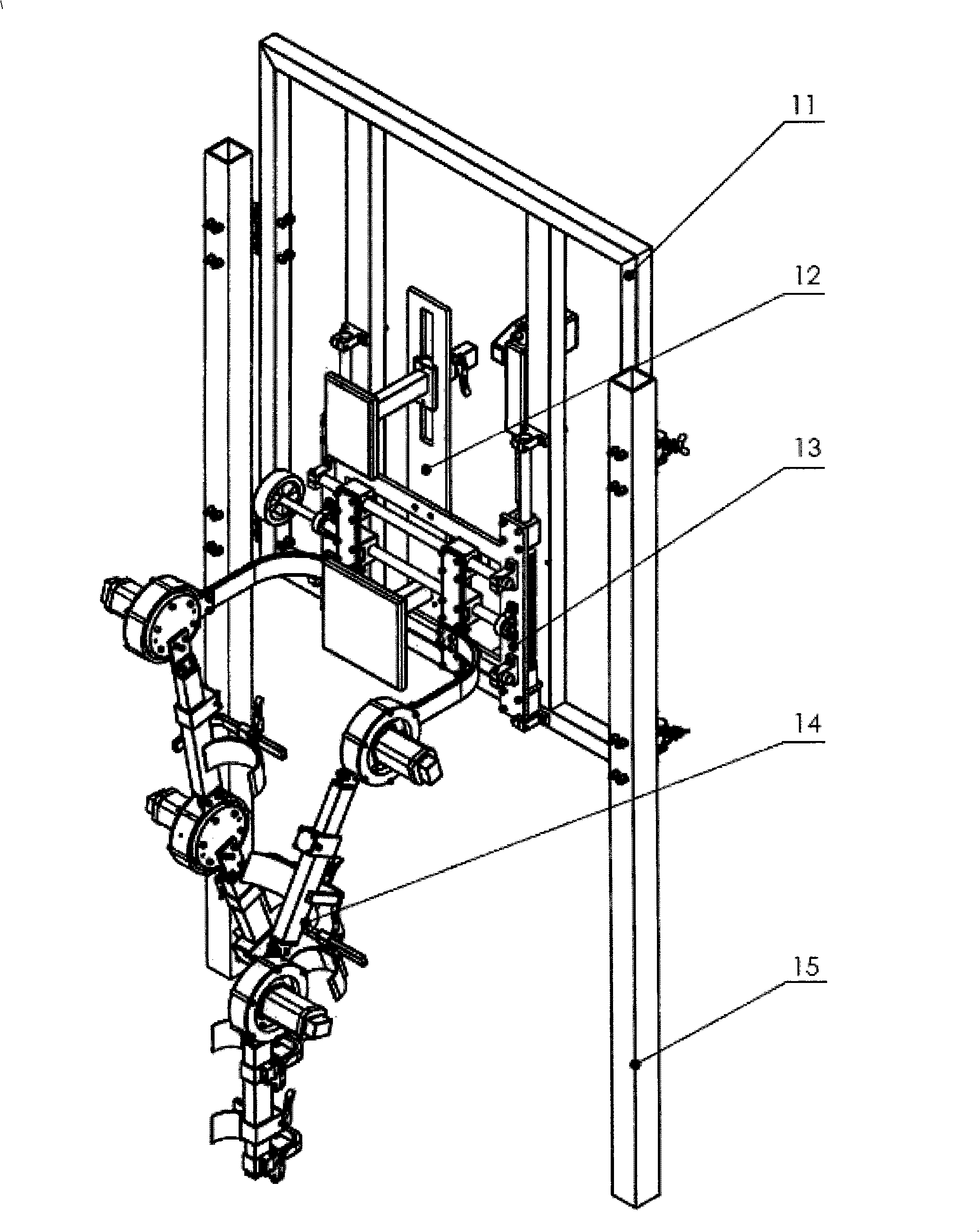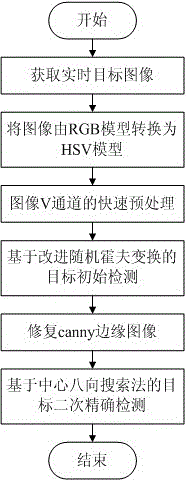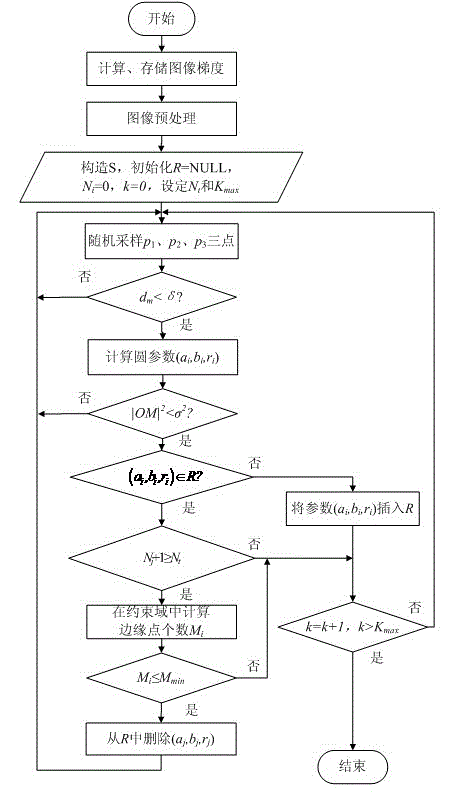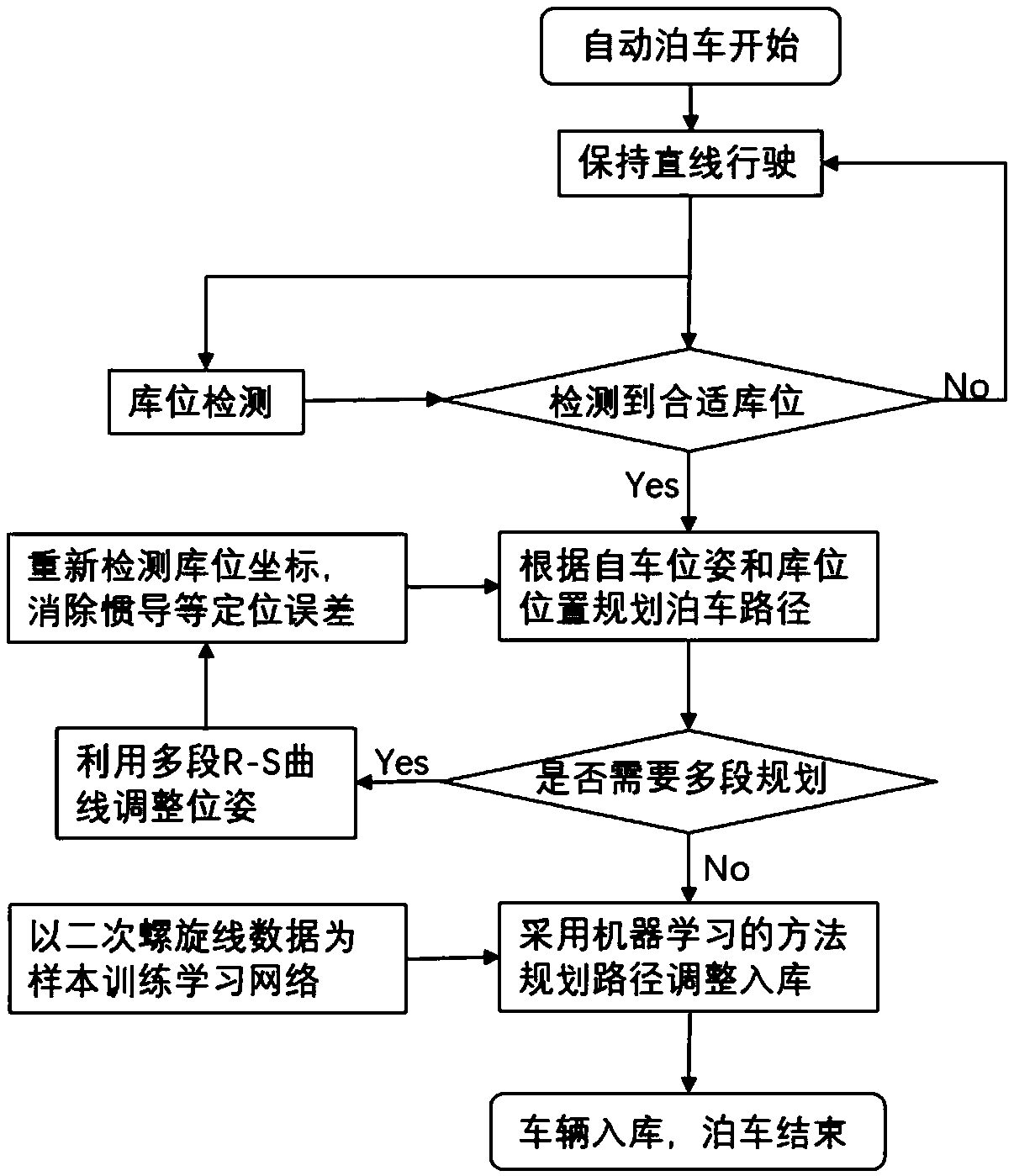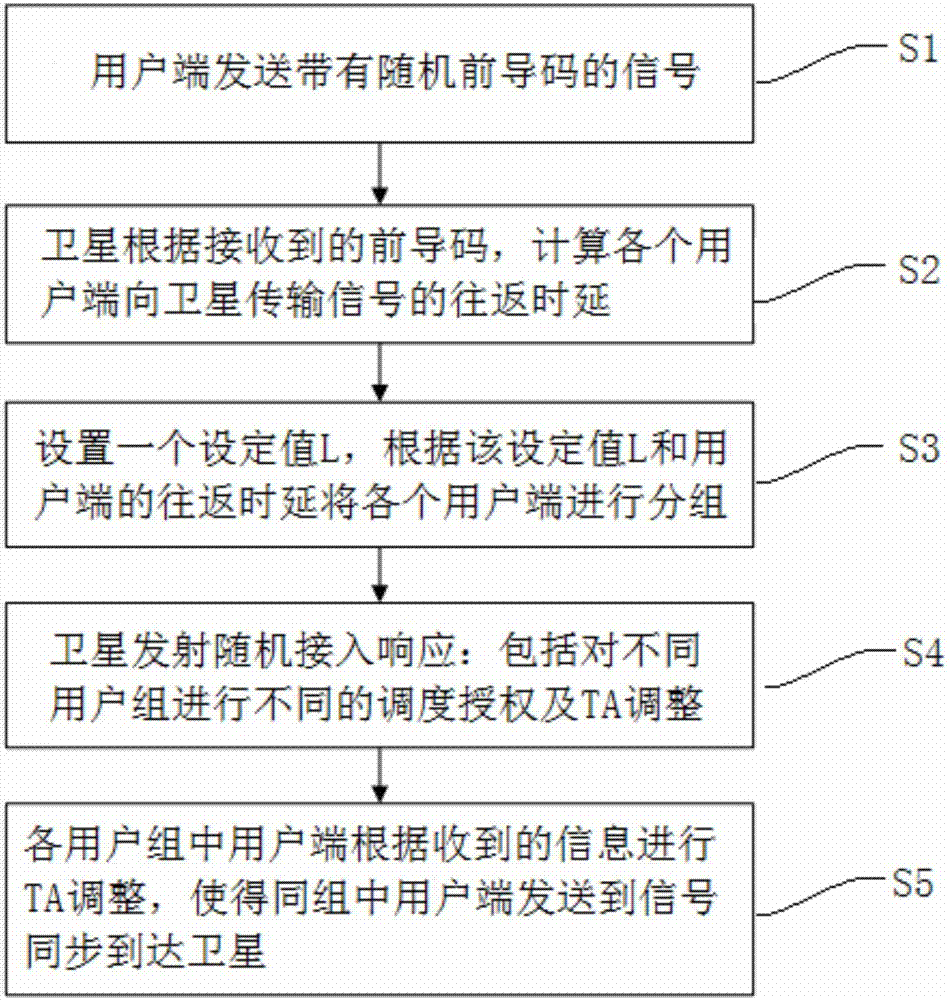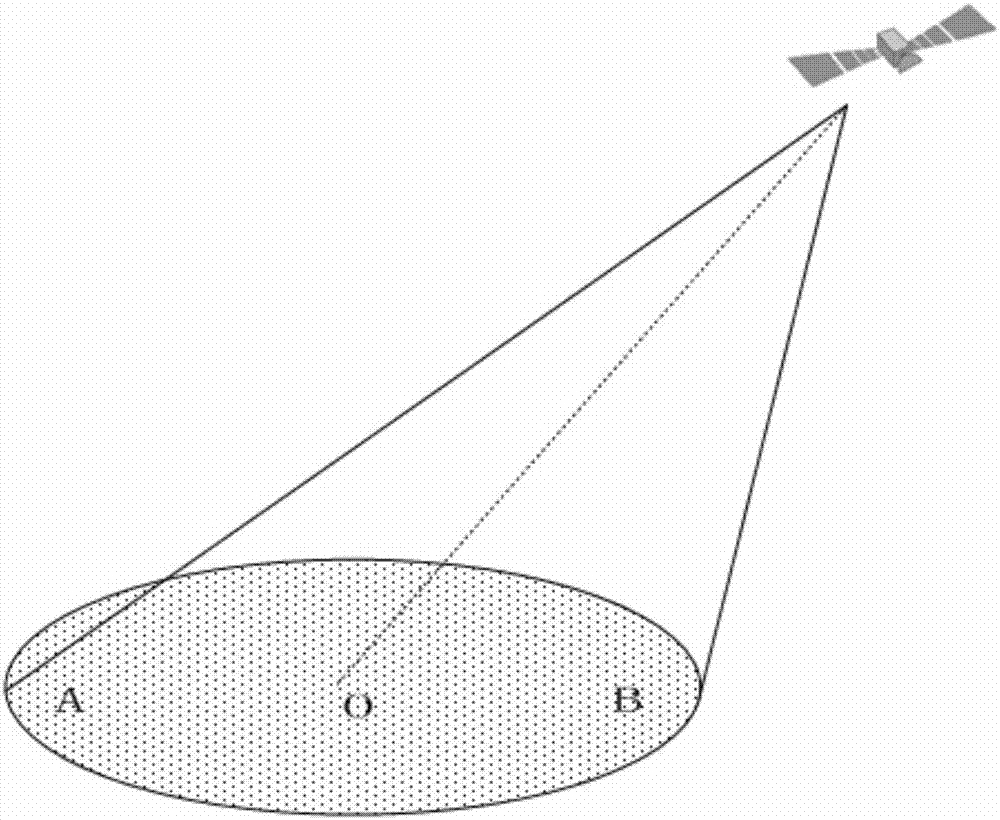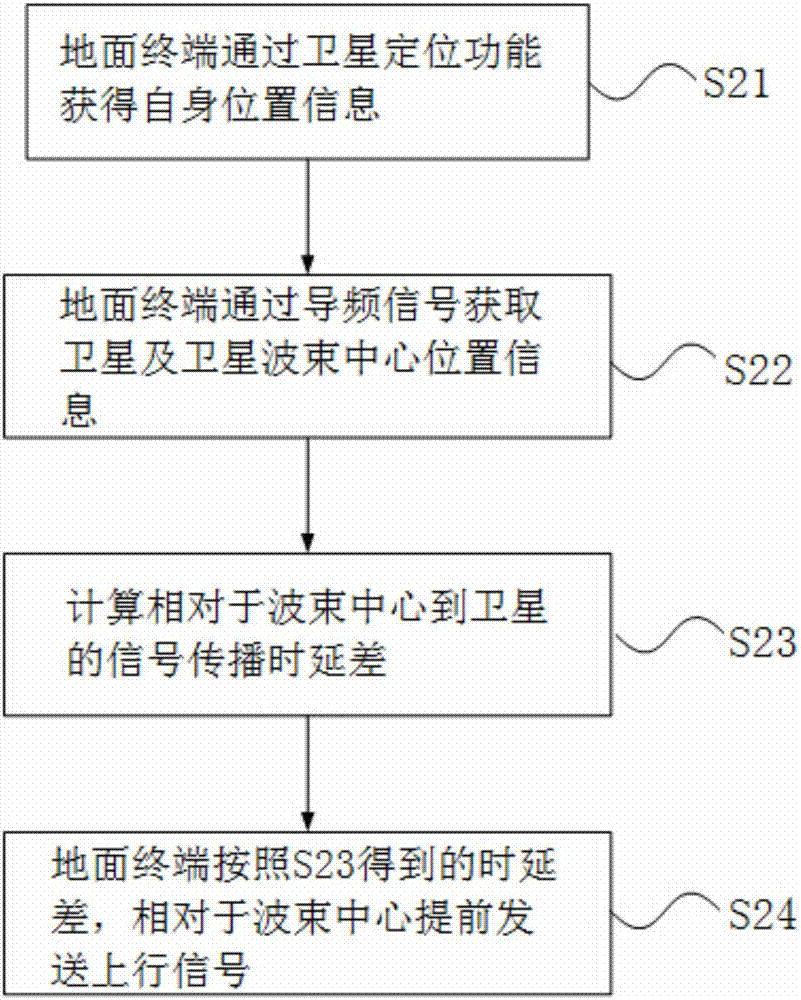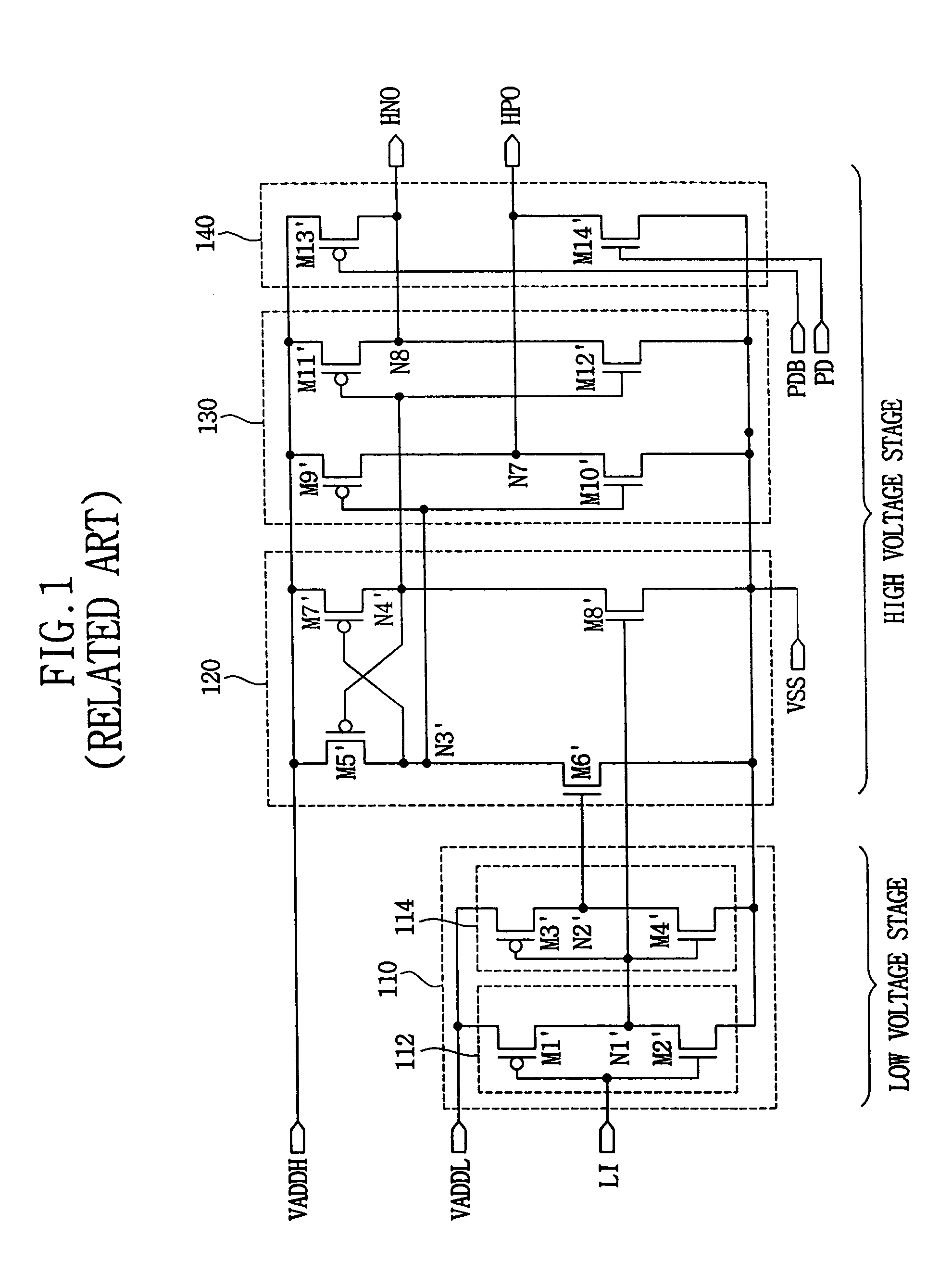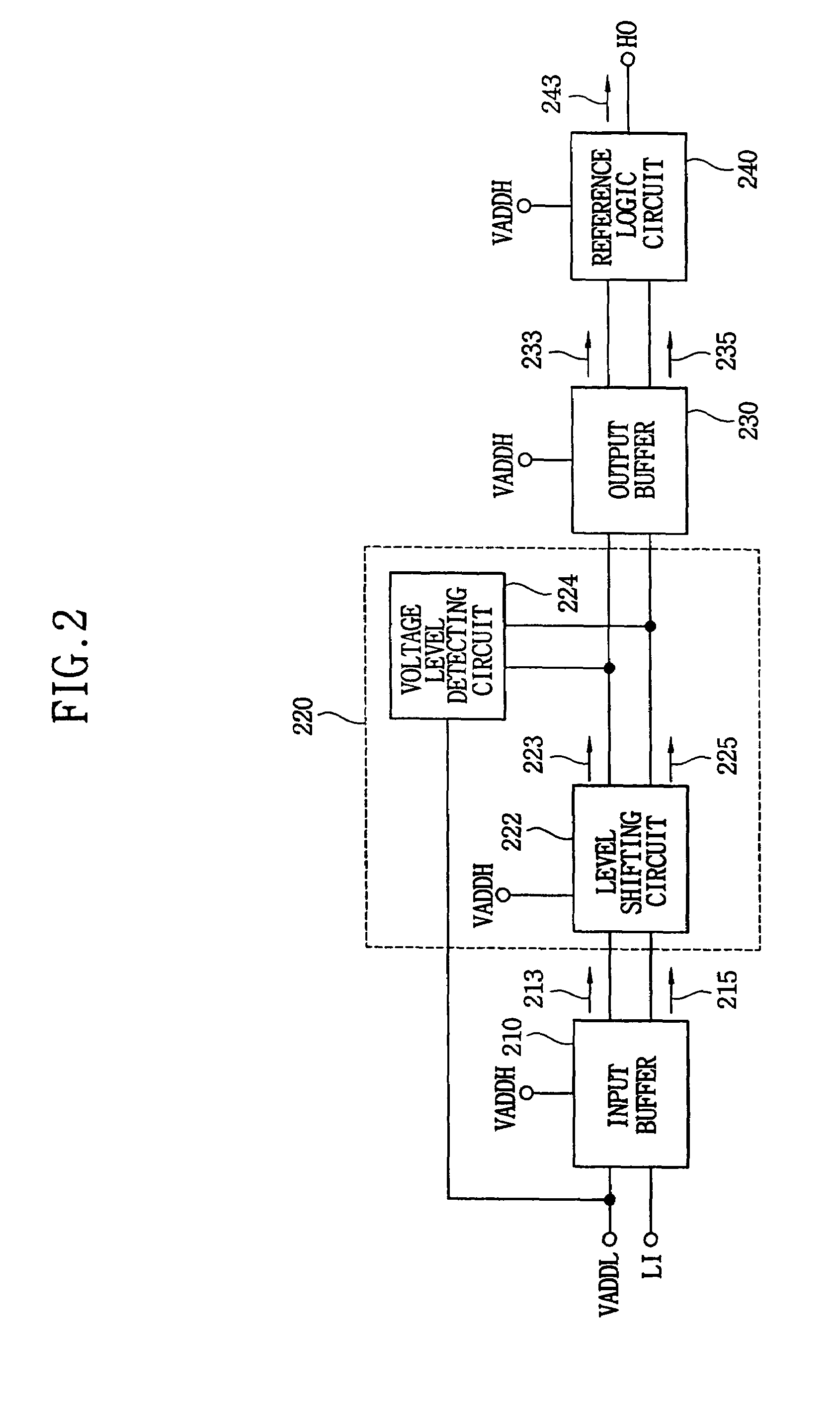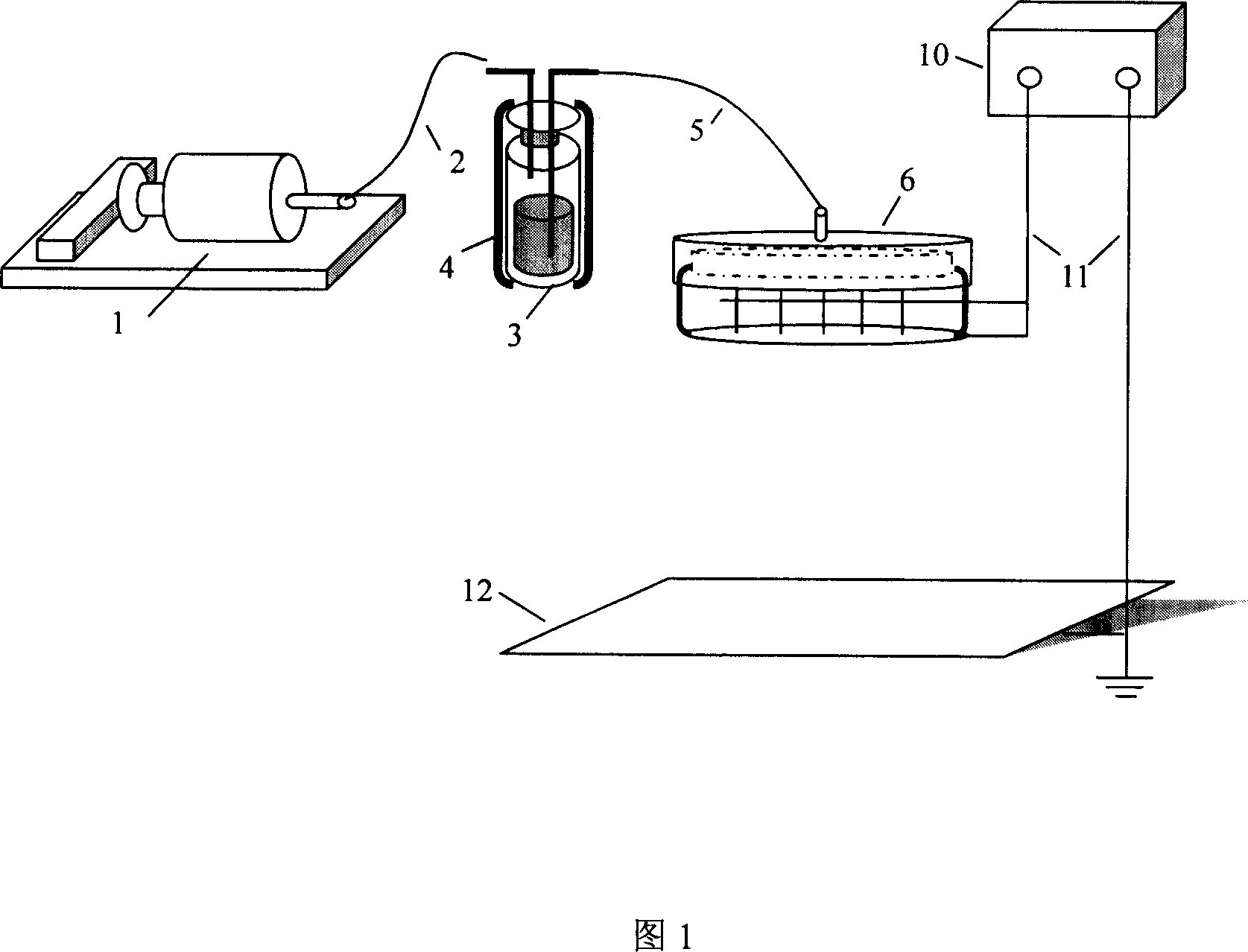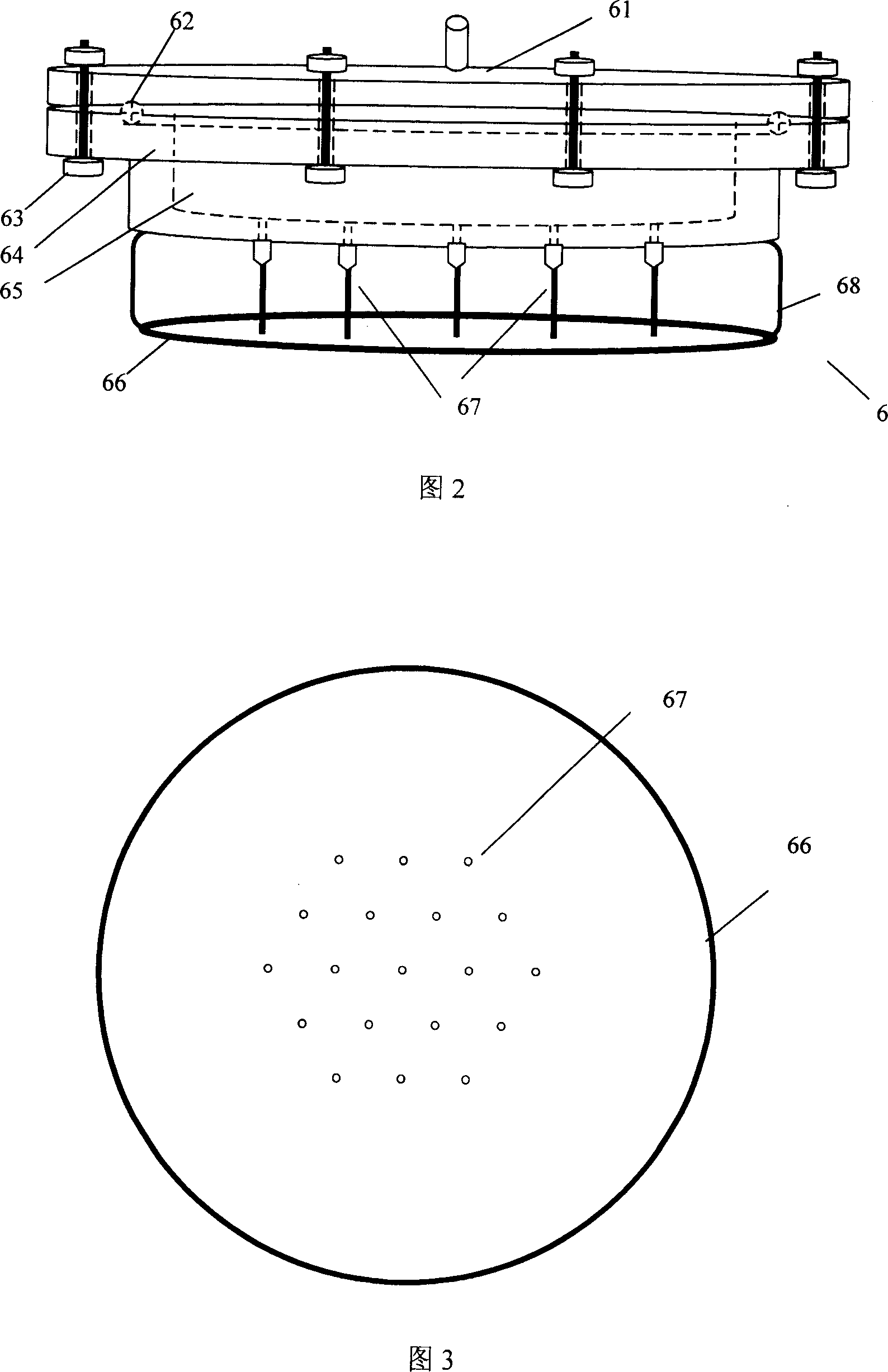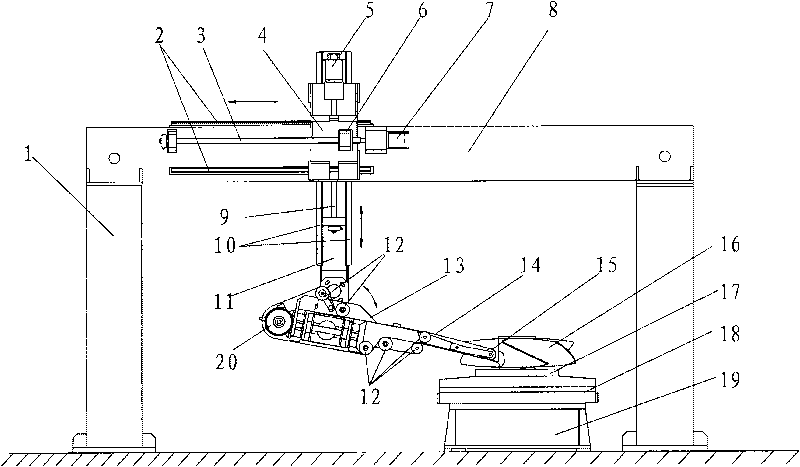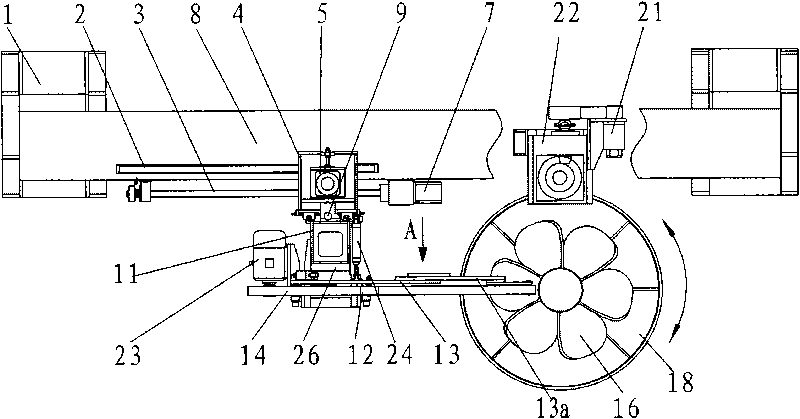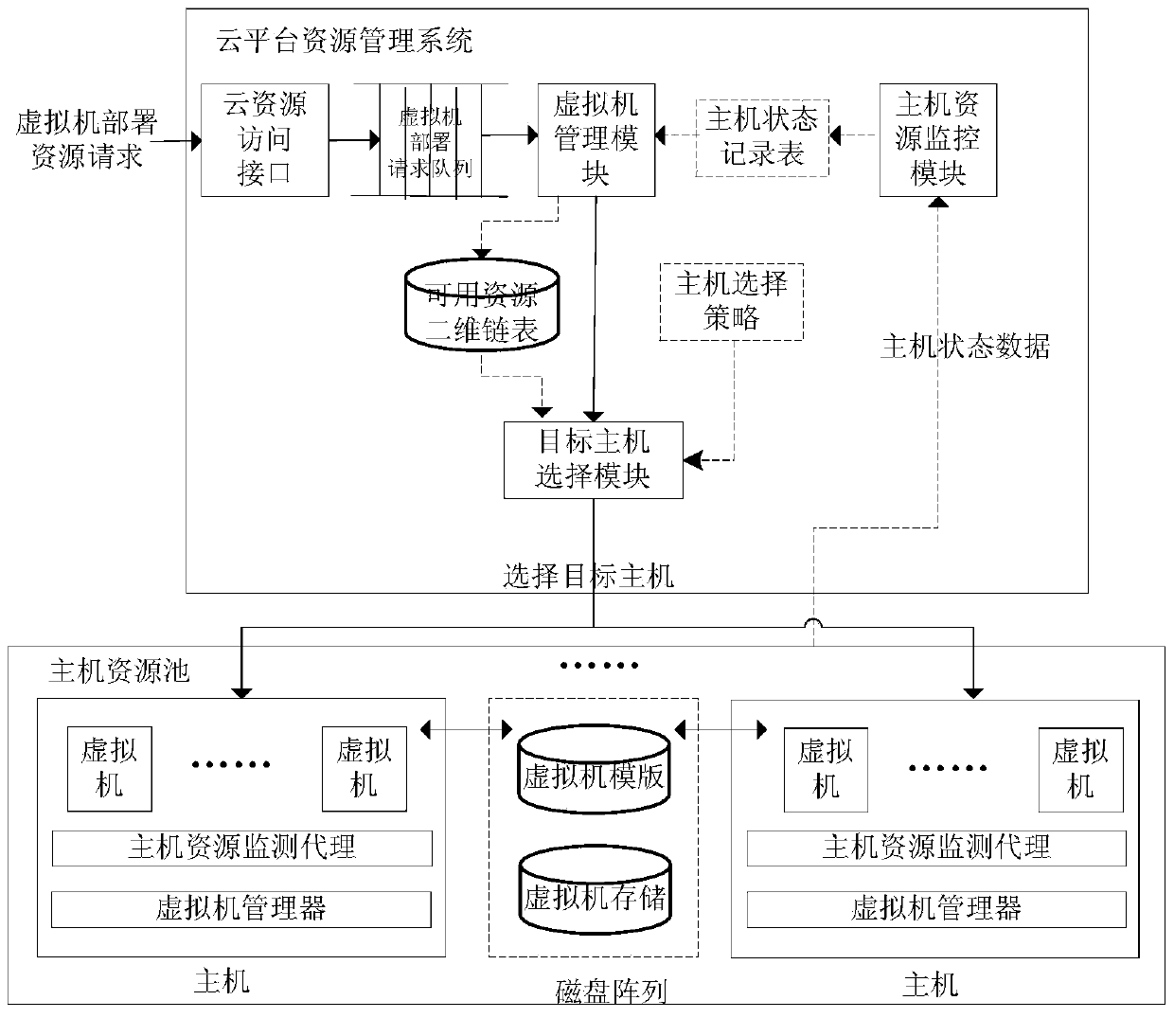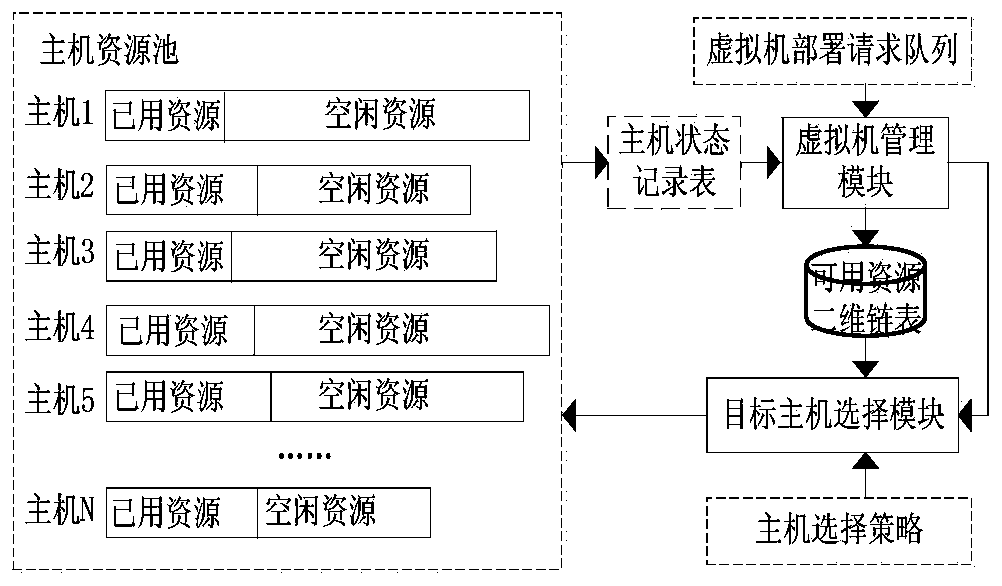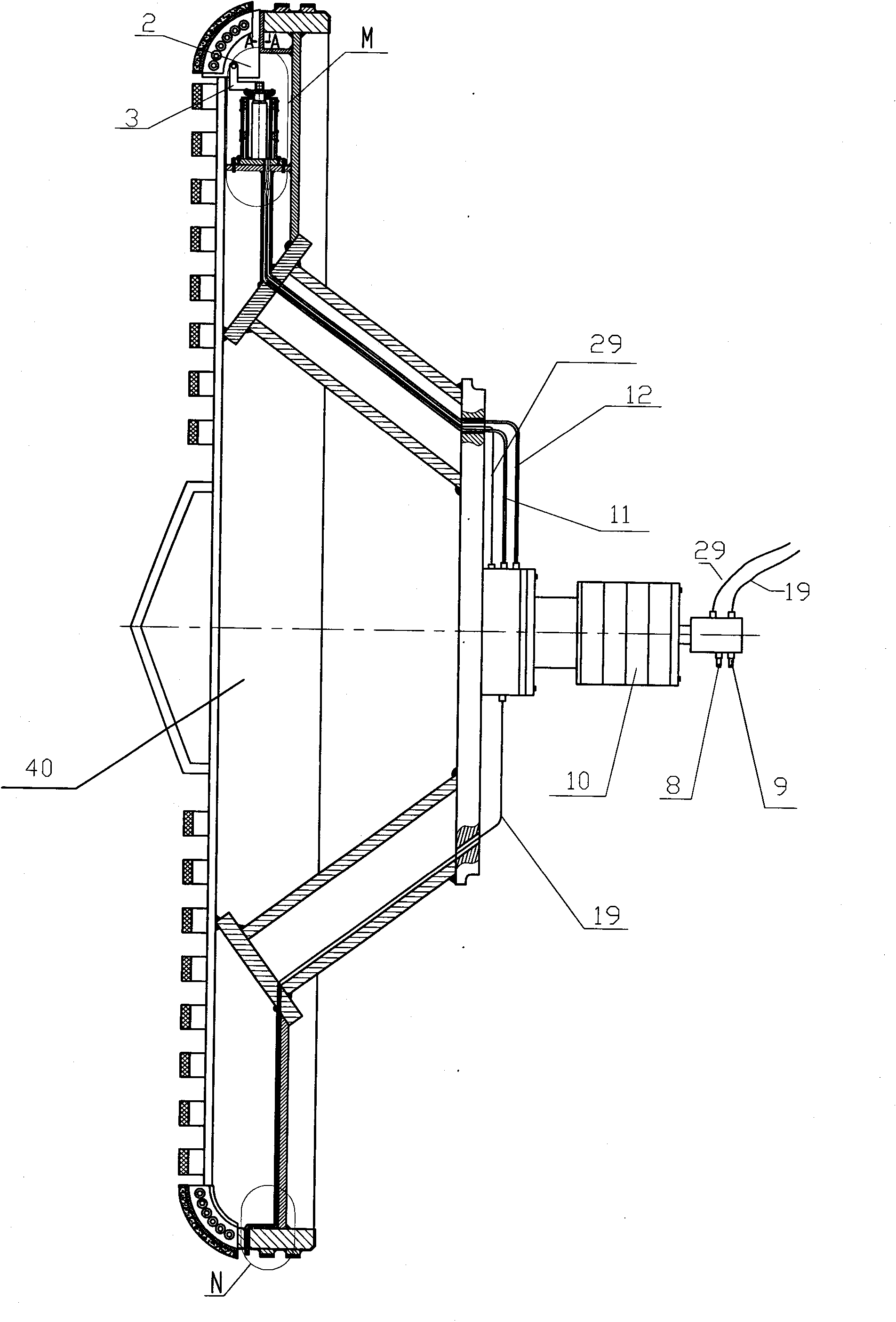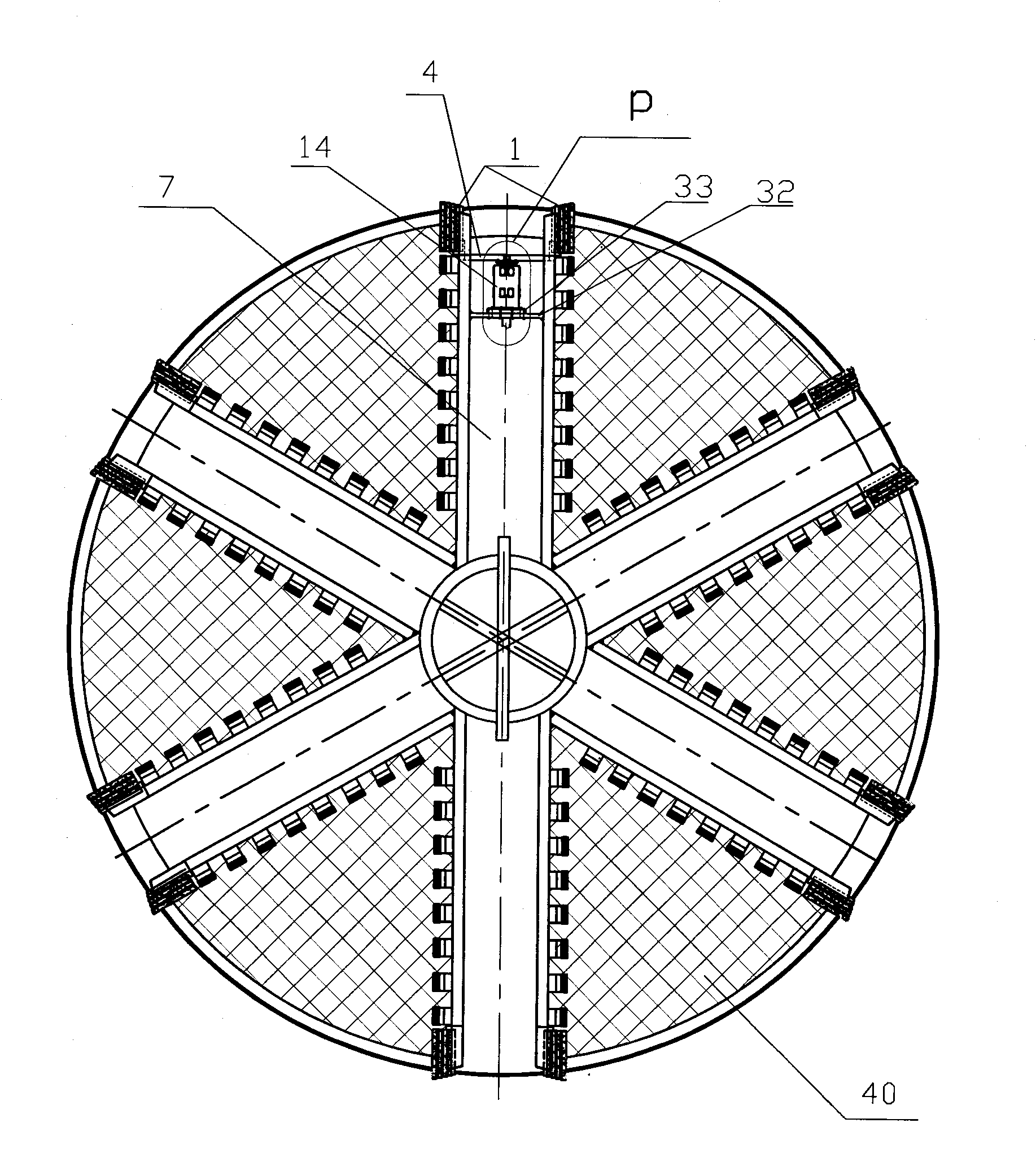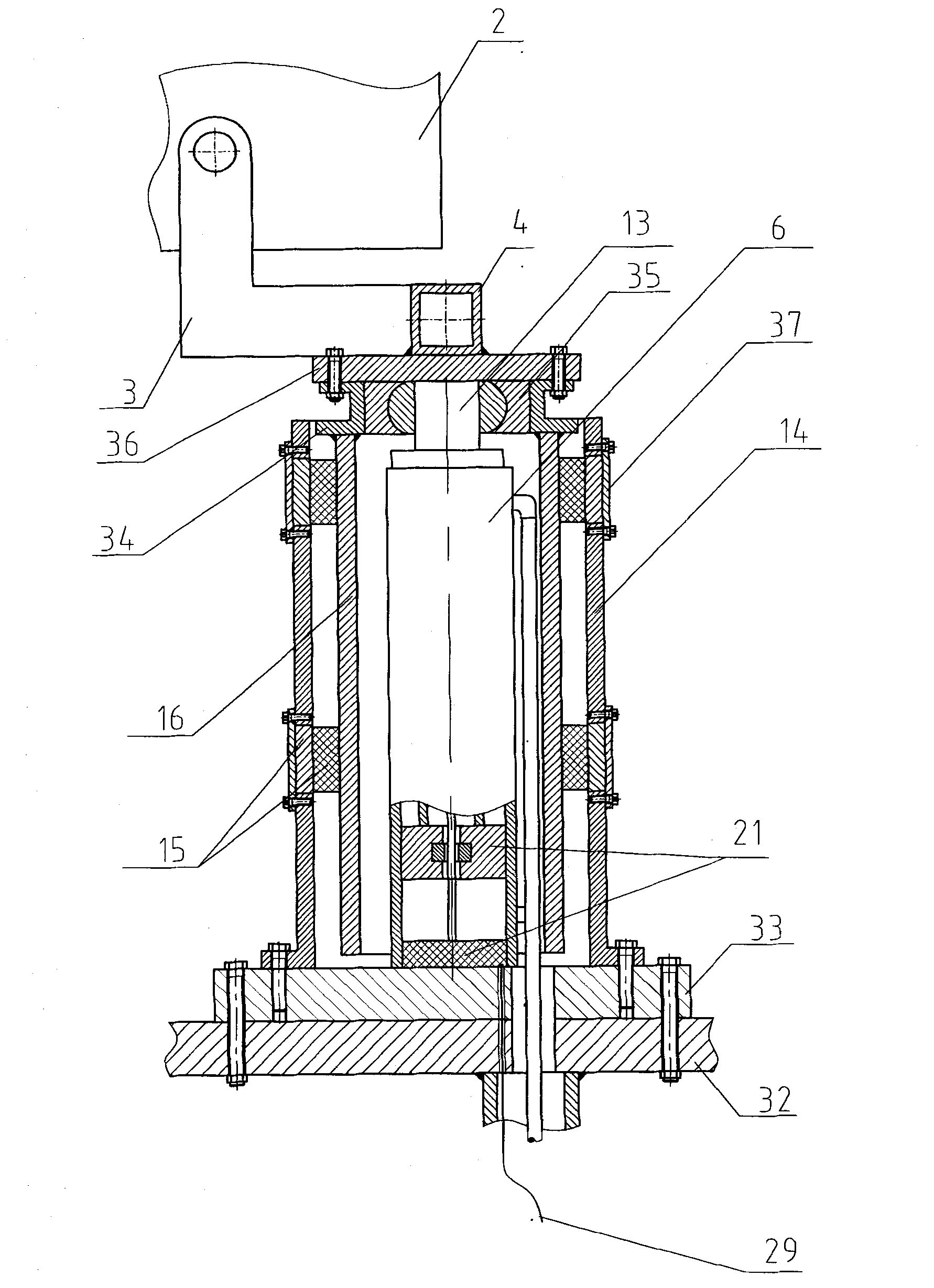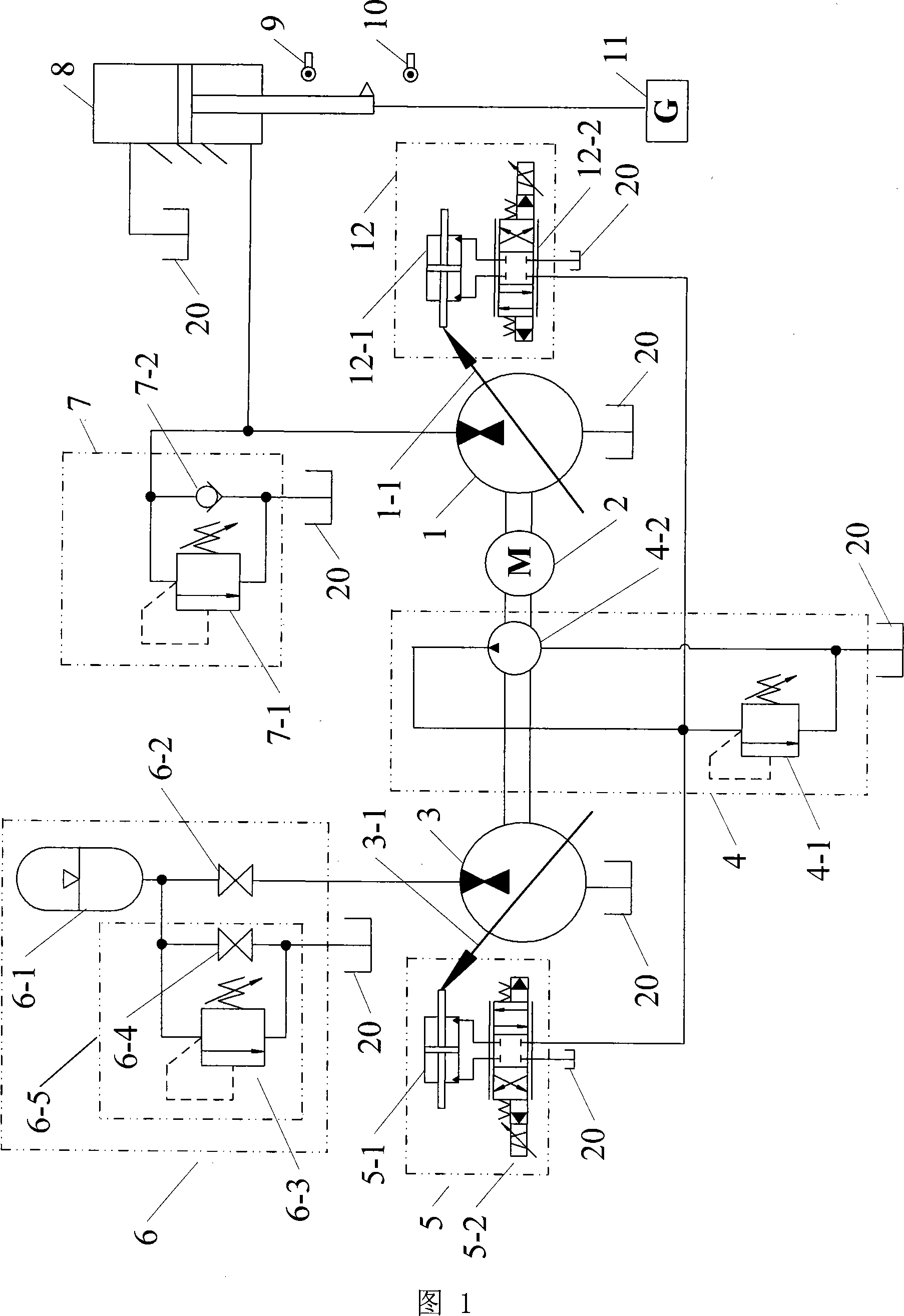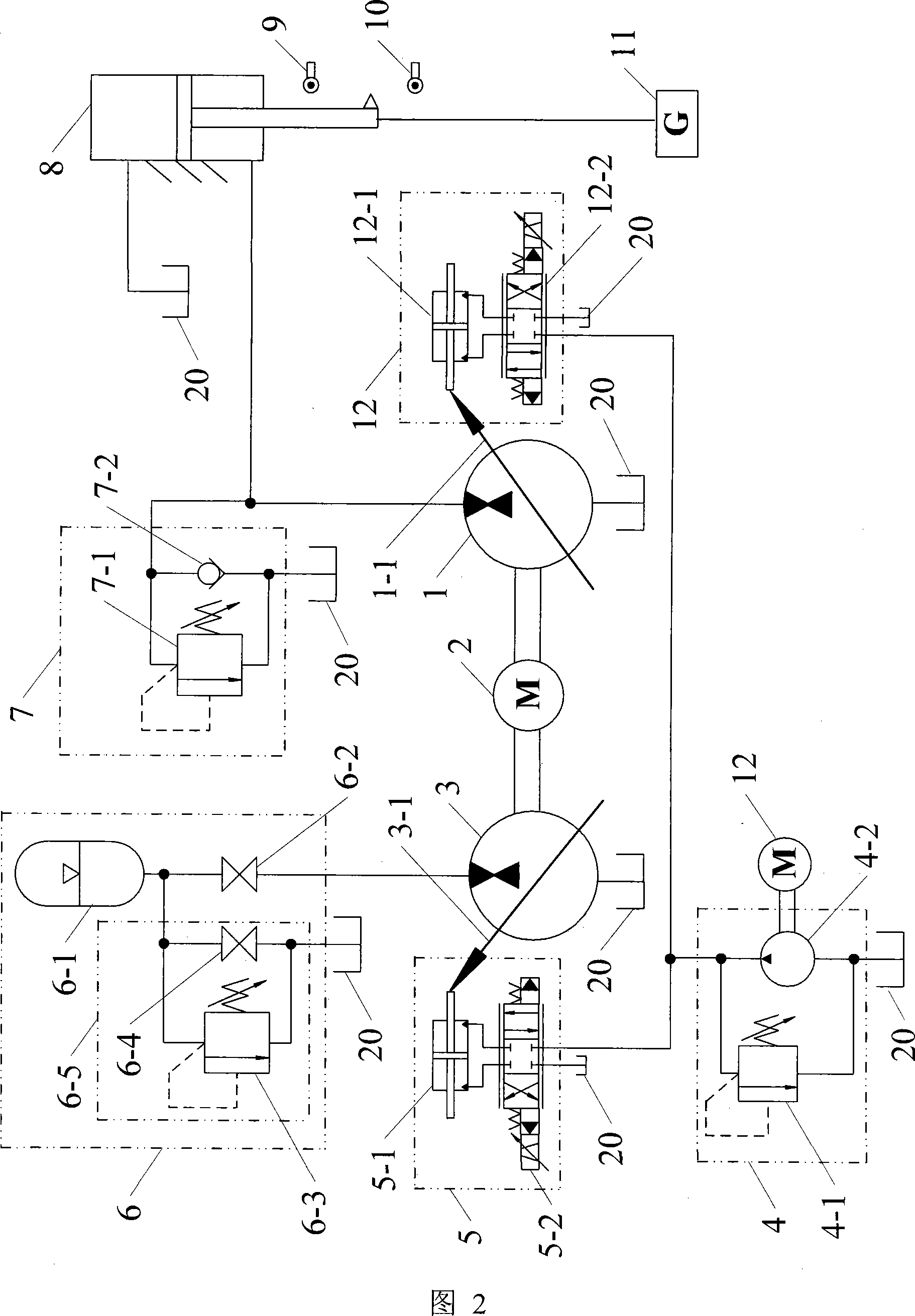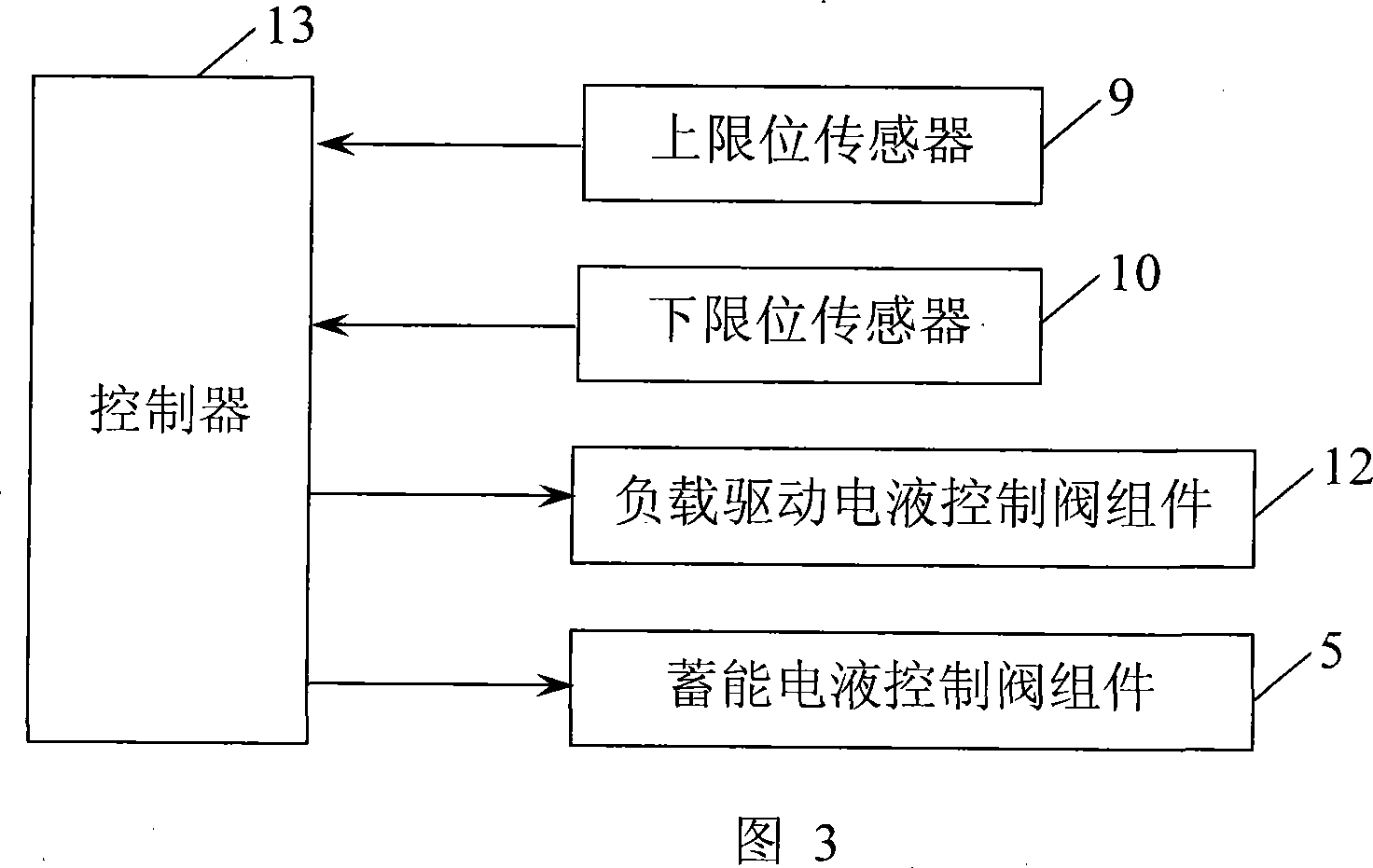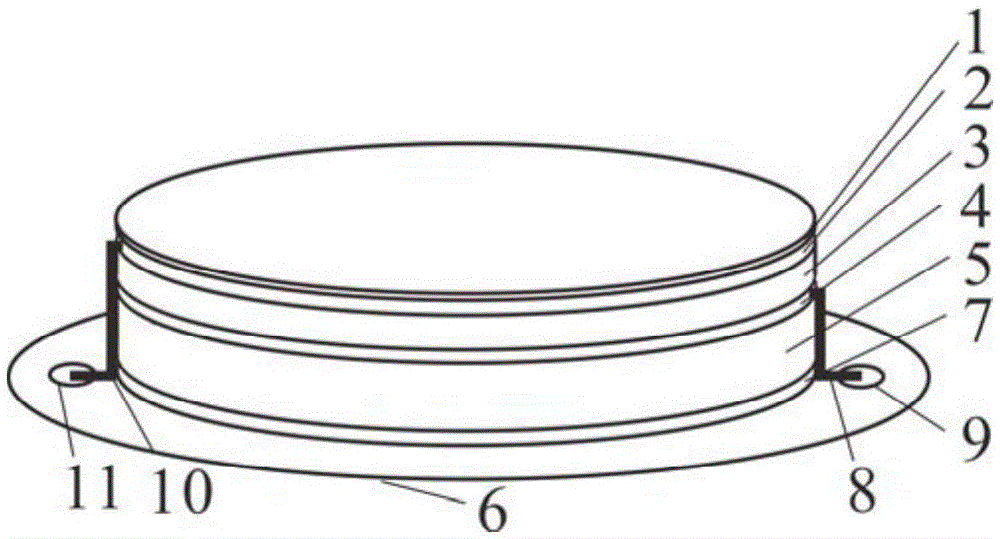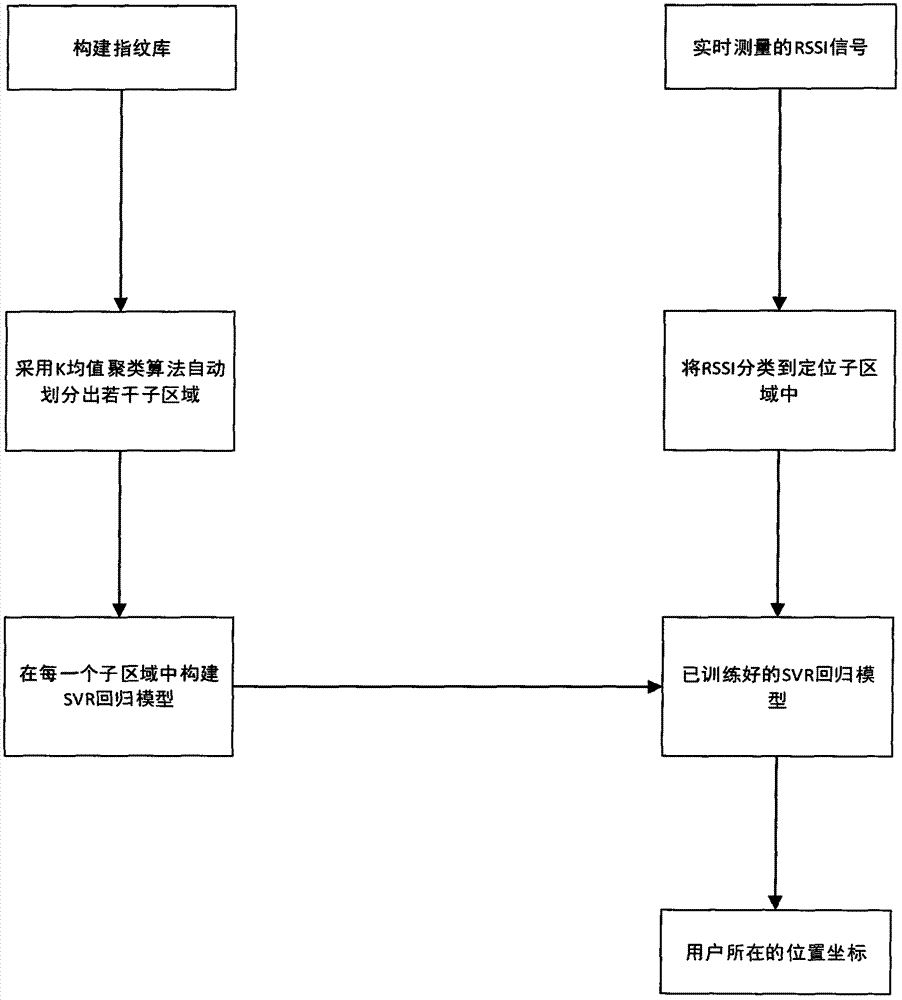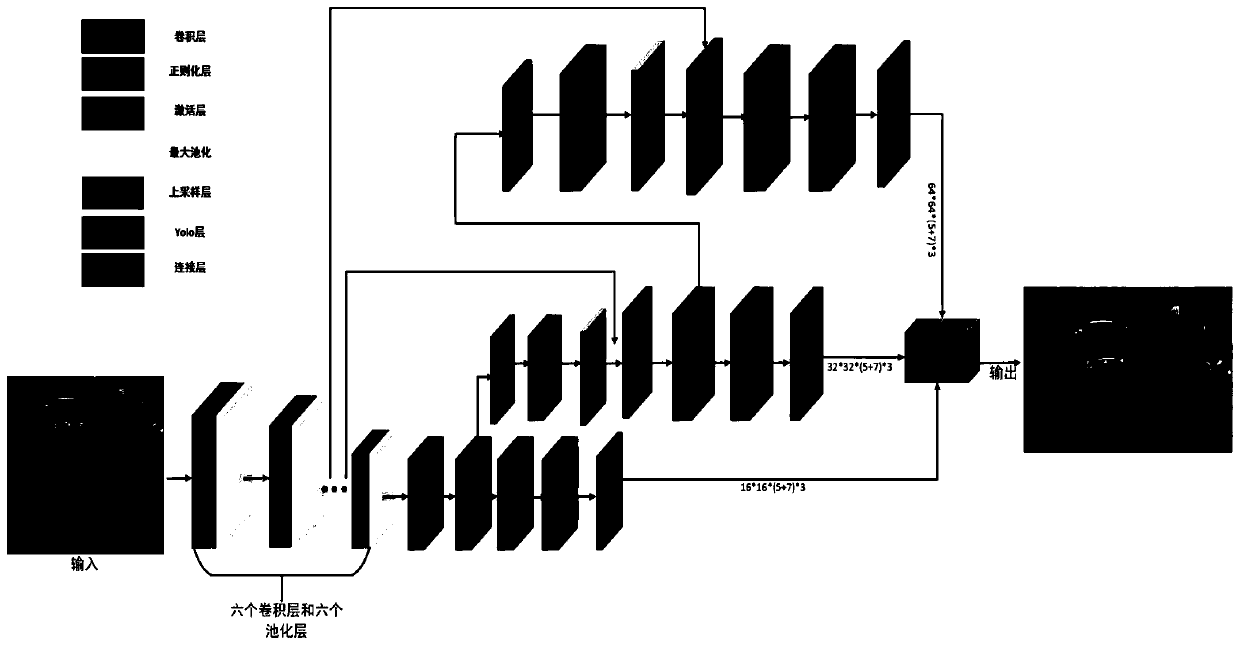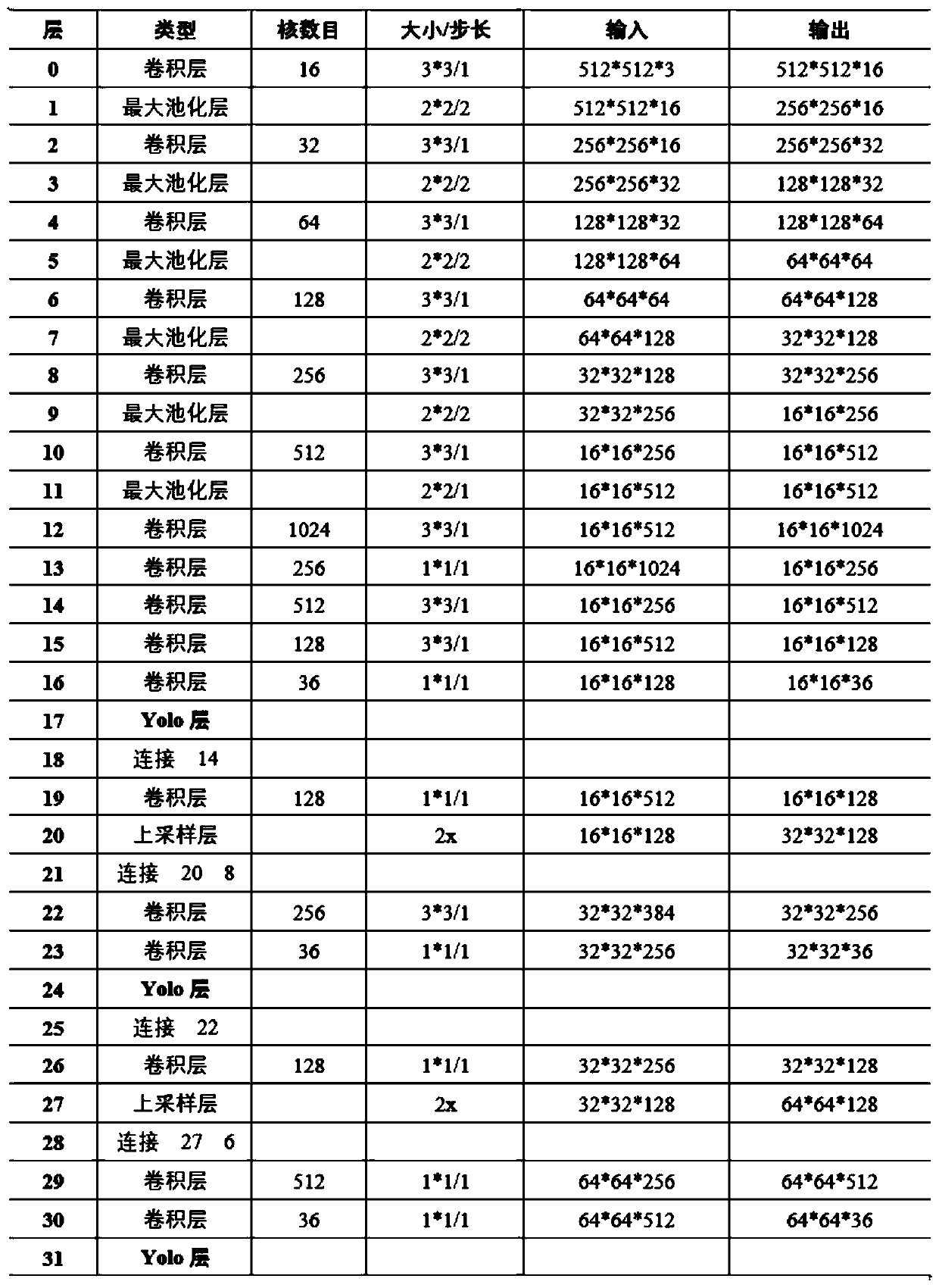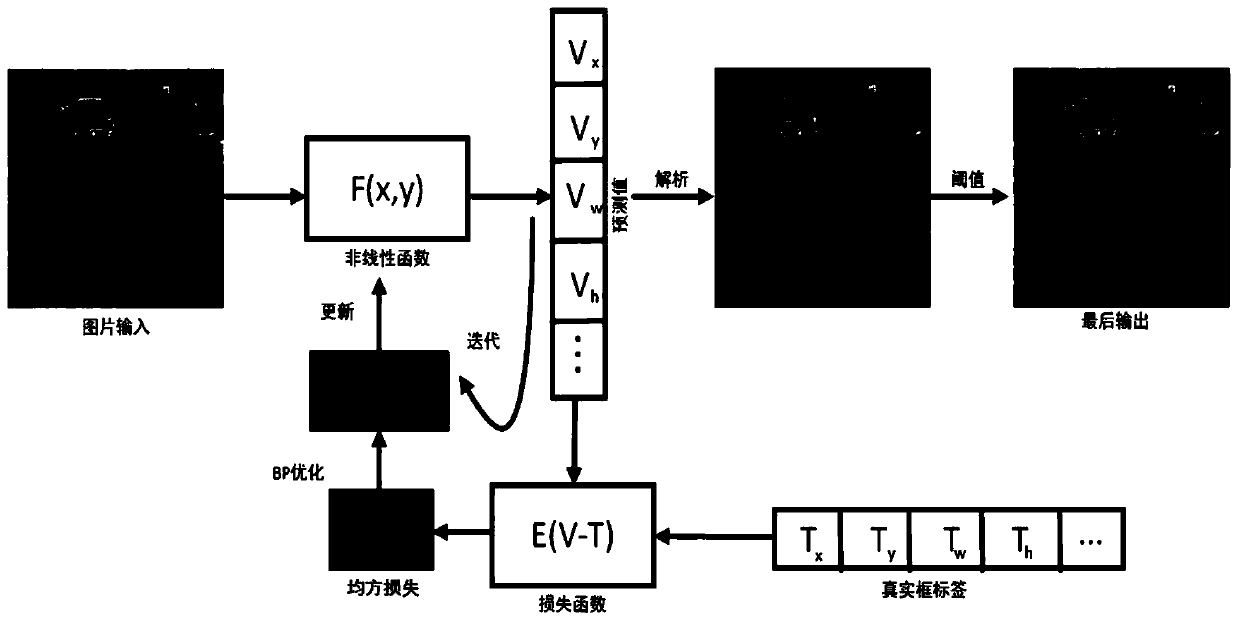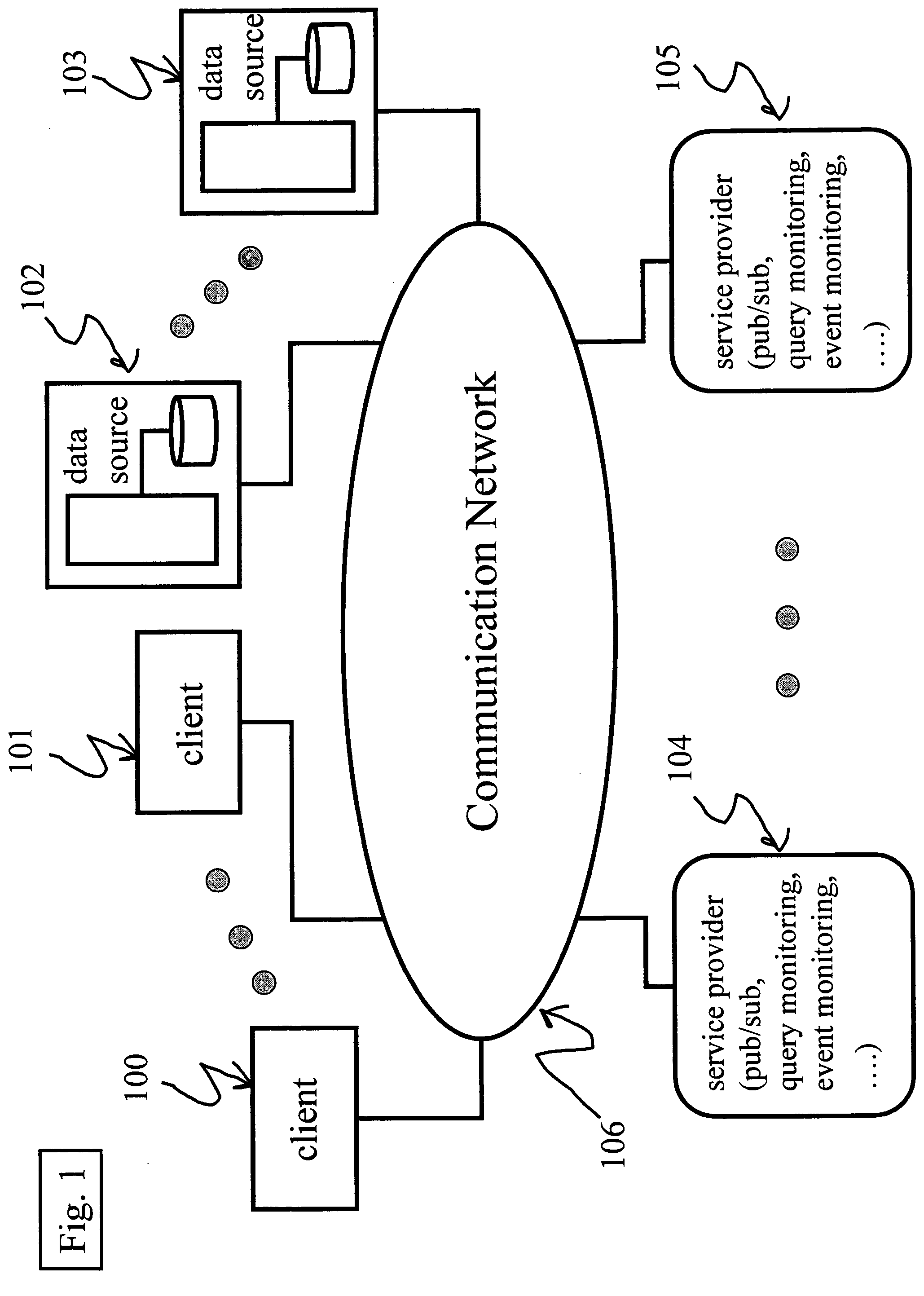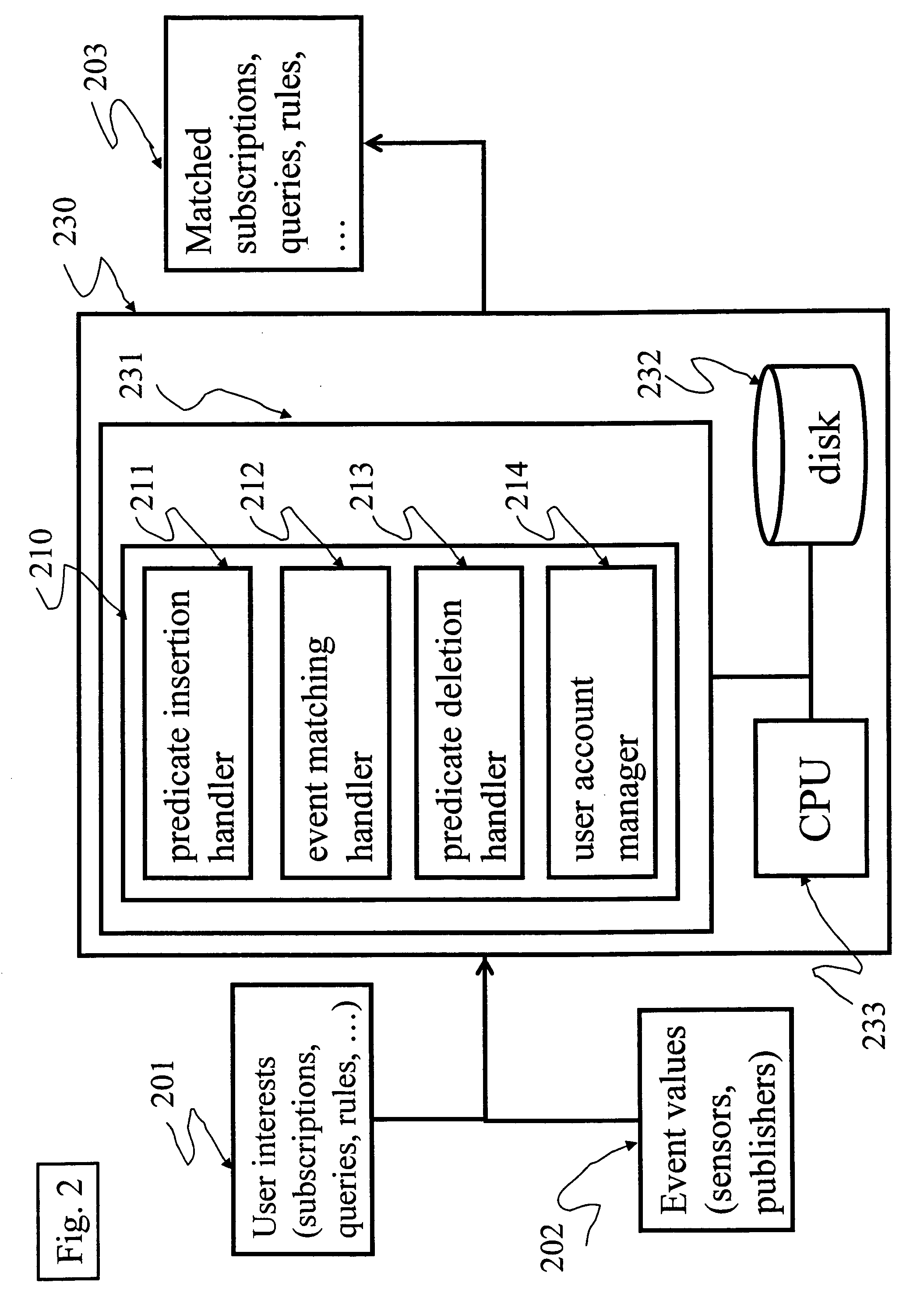Patents
Literature
Hiro is an intelligent assistant for R&D personnel, combined with Patent DNA, to facilitate innovative research.
2769 results about "Small range" patented technology
Efficacy Topic
Property
Owner
Technical Advancement
Application Domain
Technology Topic
Technology Field Word
Patent Country/Region
Patent Type
Patent Status
Application Year
Inventor
Robotic apparatus
InactiveUS20090012534A1Minimize cost functionProgramme-controlled manipulatorDiagnosticsRobot end effectorEngineering
A robotic apparatus has eight actuators (M0-M7) and a linkage (LINK 0-LINK 5) that actuates an end effector. Three serial macro freedoms have large ranges of motion and inertias. Four serial micro freedoms have small ranges of motion and inertias. Translation of the end effector in an y direction is actuated by at least one micro joint and at least one macro joint. The apparatus can be part of a master and slave combination, providing force feedback without any explicit force sensors. The slave is controlled with an Inverse Jacobian controller, and the mater with a Jacobian Transpose controller. A slave having more degrees of freedom (DOFs) than the master can be controlled. A removable effector unit actuates its DOFs with cables. Beating heart surgery can be accomplished by commanding the slave to move with a beating heart and cancelling out any such motion in the motions perceived by the master.
Owner:MASSACHUSETTS INST OF TECH
Eyewear with exchangeable temples housing bluetooth enable apparatus
InactiveUS6929365B2Increase power consumptionSmall sizeComponent separationFramesTransceiverHand held
A wireless ad hoc pico network is formed by eyewear and other devices such as a computer, a bracelet and a telephone having similar transceivers mounted on them. Master slave relationships are configurable. Other devices, such as a radio, a CD player, a hand held global positioning satellite system and a heart rate monitor, having similar transceivers, can also be connected with the transceiver of the eyewear. The transceivers operate on globally available, unlicensed radio band, 2.45 gigahertz (GHz) and conforms to the Bluetooth standard. The power consumption of Bluetooth enabled devices is less than three percent of the power consumption of a mobile phone. The eyewear includes a frame and connected to the frame are two temples. Temples are connected to frame via hinges. Temples have a male portion of a connector incorporated in them. Female portion of the connector is made integral with the hinges. When the male portion is inserted in the female portion the temple is attached to the frame. The temples can be removed by pulling the connector apart, and a temple with different apparatus within it can be inserted in place of the removed temples. The temple may have co-molded within its body, an apparatus such as an audio device, a camera, a speaker, and a microphone, and a display device such as liquid crystal or an alarm. In another embodiment, eyewear constitutes a distance alarm to monitor the movement of, for example, a child. A device in form of, for example, a bracelet is worn by the child. The transceivers in the eyewear and the bracelet form a small-range wireless network, i.e., piconet, wherein the eyewear and the bracelet communicate using signals conforming to the Bluetooth technology. The transceiver in the eyewear is configured to generate an alarm when the bracelet exceeds a predetermined distance from eyewear.
Owner:III HLDG 4
System and method for controlling current limit with primary side sensing
InactiveUS6972969B1Small rangeConversion with intermediate conversion to dcDc-dc conversionCurrent limitingControl system
A primary side sensing power control system and method that controls the current limit such that it is maintained within a small range for any acceptable input voltages and causes the output voltage of a PWM controller to drop as the output load increases when the current limit is reached.
Owner:HERCULES TECH GROWTH CAPITAL +1
Printed magnetic ink overt security image
Owner:VIAVI SOLUTIONS INC
On-time control for constant current mode in a flyback power supply
ActiveUS7505287B1Easy to implementDc-dc conversionElectric variable regulationLoop filterCurrent limiting
The present invention is a system and a method that controls the current limit such that it is maintained within a small range for any acceptable input voltages, e.g., 90 to 264 Volts RMS, causes the output voltage of a PWM controller to drop as the output load increases so as to maintain a constant current output, and does cycle by cycle calculation compensating for the VIN ripple output from the bridge and bulk filter capacitor so that no loop filter is required in the constant current mode.
Owner:DIALOG SEMICONDUCTOR INC
Air conditioner and control method and device thereof
ActiveCN103245031AIncrease load operating parametersReduced load operating parametersSpace heating and ventilation safety systemsLighting and heating apparatusRefrigerationControl theory
The invention discloses an air conditioner and a control method and device thereof. The control method of the air conditioner includes that when difference between indoor environment temperature and target temperature is larger than a first preset value, temperature changing rate is smaller than a second preset value so as to greatly increase load operation parameters of the air conditioner, and the temperature changing rate is larger than the second preset value so as to increase the load operation parameters of the air conditioner in a small range; and when the difference between the indoor environment temperature and the target temperature is smaller than or equal to the first preset value, the temperature changing rate is smaller than the second preset value so as to reduce the load operation parameters of the air conditioner in a small range, and the temperature changing rate is larger than the second preset value so as to greatly reduce the load operation parameters of the air conditioner. By means of the air conditioner and the control method and device, an air conditioner load can be controlled precisely and fast refrigeration and heating can be achieved according to the environment temperature changing rate. In addition, when the indoor environment temperature reaches the temperature set by users, the environment temperature is prevented from being too cold and too hot or being unstable, and comfortableness of air conditioner products is improved.
Owner:GREE ELECTRIC APPLIANCES INC
A wireless positioning method and system based on wi-fi
InactiveCN102291674APrecise positioningAchieve the purpose of sharingNetwork topologiesTransmission monitoringWi-FiSmall range
The present invention discloses a wireless positioning method and system based on Wi-Fi, which performs positioning more accurately according to the strength of the wireless signal, and at the same time allows users to add new APs, thereby extending the small-range positioning system to a large-scale positioning system to achieve the purpose of sharing multiple user terminals. The positioning method includes the steps of acquiring positioning information of a user terminal to be positioned, calculating the position information of the user terminal according to the positioning information, and storing a new wireless access point into a library, wherein the positioning information includes the wireless access point detected by the user terminal Address and Wi-Fi signal strength, the steps of storing the new wireless access point include: calculating the distance between the user terminal and the new wireless access point according to the Wi-Fi signal strength; The distance between the wireless access points is obtained to obtain the location information of the new wireless access point; the address and location information of the new wireless access point are stored in the database.
Owner:SHENGLE INFORMATION TECH SHANGHAI
Solid-state, color-balanced backlight with wide illumination range
ActiveUS20070171670A1Avoid interferenceAccurate balanceElectrical apparatusStatic indicating devicesPhotovoltaic detectorsPhotodetector
A color balanced solid-state backlight provides feedback control of each color using a single photodetector by imposing a modulation pattern on the solid-state lamps revealing individual colors to the photodetector. The photodetector signal provides feedback controlling color balance over a small range of instantaneous brightness less than larger range of average brightness of the display to provide for accurate color balance throughout a large range of average brightnesses.
Owner:ASTRONAUTICS CORPORATION OF AMERICA
Apparatus for controlling engine rotation stop by estimating kinetic energy and stop position
InactiveUS7027911B2Reduce variationImprove exhaust emissionsAnalogue computers for vehiclesElectrical controlEngineeringSmall range
A control apparatus for an engine increases an intake air quantity just before engine stop to increase a compression pressure in a compression stroke. As the compression pressure is increased, a negative torque in the compression stroke increases and obstructs engine rotation, and brakes the engine rotation. Thus, a range of crank angle, in which torque is below engine friction, that is, in which engine rotation can be stopped, is reduced. As a result, variation in engine rotation stop position is reduced to be within a small range of crank angle. Information of engine rotation stop position is stored, and the stored information of engine rotation stop position is used at the start of an engine to accurately determine an initial injection cylinder and an initial ignition cylinder to start the engine.
Owner:DENSO CORP
Self-rotor unmanned aerial vehicle-based air emergency communication system
ActiveCN103051373AArrived quicklyEasy accessActuated automaticallyRadio transmission for post communicationDisaster areaCommunications system
The invention discloses a self-rotor unmanned aerial vehicle-based air emergency communication system. The system comprises a self-rotor unmanned aerial vehicle, a ground control station, a data link and an aerial mobile base station task load, wherein the aerial mobile base station task load is arranged on the self-rotor unmanned aerial vehicle; after the ground control station controls the unmanned aerial vehicle to fly over airspace of a disaster area according to a set air route through a wireless uplink, the ground control station controls an aircraft to spiral over the set position in a small range; a mobile base station starts to work and transmits mobile communication data to the ground control station through a data channel of the wireless downlink; and therefore, aerial mobile base signals land and are accessed into a public network in a wired way to finish the mobile communication. The system has long endurance flight time and high load capacity, can arrive at the airspace of a disaster site rapidly and conveniently, and provides guarantee for the emergency communication of disaster situations such as earthquake.
Owner:北京航天科工世纪卫星科技有限公司
Apparatus and method for demonstrating and confirming the status of a digital certificates and other data
InactiveUS6901509B1Attenuation bandwidthReduce dataUser identity/authority verificationComputer scienceSmall range
Methods and apparatuses for providing cryptographic assurance based on ranges as to whether a particular data item is on a list. According to one computer-implemented method, the items on the list are sorted and ranges are derived from adjacent pairs of data items on the list. Next, cryptographically manipulated data is generated from the plurality of ranges. At least parts of the cryptographically manipulated data is transmitted onto a network for use in cryptographically demonstrating whether any given data item is on the list. According to another computer-implemented method, a request message is received requesting whether a given data item is on a list of data items. In response, a range is selected that is derived from the pair of data items on the list that define the smallest range that includes the given data item. A response message is transmitted that cryptographically demonstrates whether the first data item is on the list using cryptographically manipulated data derived from the range. According to another computer-implemented method, a request message requesting an indication as to whether a first data item is on a list of data items is transmitted. In response, a message is received that cryptographically demonstrates whether the first data item is on the list, where the response message identifies a range that is derived from the pair of data items on the list that defines the smallest range that includes the first data item.
Owner:AXWAY
Multifunctional micro friction wear testing machine
InactiveCN101017129AGreat driving forceLess exerciseUsing mechanical meansInvestigating abrasion/wear resistanceMeasurement deviceWear testing
This invention relates to one multi-function micro friction test machine, which comprises drive device, move device connected to the drive one and load and measurement device on the move device and lift bench of the measurement device, wherein, it uses hanging spring board and connection bar are hinged with drive device and move device to make the slide bench generate one small range reverse line move under bar push with constant vibration range and small error; it uses motor to drive connection bar push slide to generate large vibration reverse line move.
Owner:CHINA UNIV OF MINING & TECH
Strip filling integral backstopping coal mining method
ActiveCN101372891AHigh recovery rateMining operation safetyUnderground miningSurface miningResource recoveryBand shape
A band filling stoping mining method effectively solves the problems in the prior stoping mining of a 'three-low' coal bed, such as the sedimentation and distortion of the earth surface, the low recycling rate of coal and charcoal resources, the existence of safety hazards, etc. The method comprises the following steps: a transporter and a coal mining machine are laid on the working face of the mining area; in the direction perpendicular to the direction of the transporter movement, a timbering device which is composed of a hydraulic bracket of the working face, a side molding board bracket for filling beside the lane and a back molding board bracket for filling beside the lane, and connected with the connecting head of the transporter is arranged; after the brackets are pushed along the working face, paste concrete is injected through a pipeline into a filling mold cavity enclosed by the brackets, so as to form a band-shaped filling wall which is supported between the top plate above the goaf and the bottom plate of the coal bed. By the method, safe and convenient mining operation is ensured; the recycling rate for coal and charcoal is increased; meanwhile, the sedimentation and distortion of the overlying strata of the coal bed and the earth surface can be controlled in a very small range of deformation permitted by a building, thereby minimizing the amount of gentle sedimentation of the earth surface, and protecting buildings and attachments on the earth surface.
Owner:沈阳天安特种机器人有限公司
Air quality monitoring method, air quality monitoring system and air quality monitoring device based on mobile terminals
ActiveCN103529167AHigh precisionImprove reliabilityAir quality improvementMaterial analysisQuality dataEngineering
The invention discloses an air quality monitoring method, an air quality monitoring system and an air quality monitoring device based on mobile terminals. The method comprises the following steps that each mobile terminal monitors the air quality of a position point at which the mobile terminal is positioned to obtain air quality data, acquires position information of the position point and reports the position information and the air quality data to an air quality management server; the air quality management server analyzes the air quality of the specific location according to the position information and the air quality data. The number of the mobile terminals is extremely large, so that the acquired data volume is also extremely large, and the air quality condition of any location in a city can be analyzed. Furthermore, the monitoring of the air quality is not limited in large-range regions such as cities and municipal districts and can be even in accurate small-range regions such as schools, residential areas and streets.
Owner:CHINA MOBILE COMM GRP CO LTD
Printed Magnetic Ink Overt Security Image
ActiveUS20080171144A1Layered productsDecorative surface effectsLatent imageComputer graphics (images)
A security image and method of forming said image is disclosed wherein a substrate having an image or indicia thereon is coated with a dilute solution of pigment flakes in an ink or paint. The flakes are subsequently aligned in a magnetic field and are fixed after the field is applied. Most or all of the flakes in a region are aligned so as to be partially upstanding wherein their faces are essentially parallel. Coating the image with flakes yields a latent image which can be clearly seen at a small range of predetermined angles.
Owner:VIAVI SOLUTIONS INC
Motion planning-based adaptive control method for bridge crane
InactiveCN102030263AShow reliabilityImprove practicalityLoad-engaging elementsSelf adaptiveSmall range
The invention discloses a motion planning-based adaptive control method for a bridge crane. The method comprises the following steps of: formulating a motion planning, and designing an expected position-time curve for a crane trolley, wherein if the trolley moves along the curve, the trolley can reach a target position relatively quickly, and the load swing angle is in a small acceptable range; meanwhile, adjusting parameters of the trolley aiming at different conditions and requirements so that the maximum transport speed and the acceleration performance of the trolley meet the requirements and constraints of actual working conditions; and designing an adaptive tracking controller, and acquiring a control output by measuring trolley position, speed, load swing angle and angular speed on line in real time. When the resistance parameters such as load quality, sling length, friction and the like of the crane trolley are unknown, the controller can well track the set motion curve, and finally the error, swing angle and control force are fully kept in a small range and finally converged to 0. Therefore, the invention has the advantages of the locus planning and adaptive tracking control method.
Owner:NANKAI UNIV
Vertical follow-up type lightened walking rehabilitation training robot
InactiveCN101536955AAvoid the lack of serial movement in the front and rear directionsAvoid the lack of serial movementGymnastic exercisingChiropractic devicesSupporting systemEngineering
The invention discloses a vertical follow-up type lightened walking rehabilitation training robot. The robot comprises an electric treadmill, a partial lightened supporting system, and exoskeleton mechanical legs and supporting devices thereof; the exoskeleton mechanical legs and supporting devices thereof further comprise supporting frames, door-type bracket components arranged on the supporting frame, supporting seat components of the mechanical legs arranged on the door-type bracket components, back and butt supporting components connected with the supporting seat components of the mechanical legs, and mechanical leg components connected with the supporting seat components of the mechanical legs. Due to the limitation of door frame guide rails and springs, the supporting seat components of the mechanical legs only can do up-and-down wave motion with a small range in the vertical direction, thus guaranteeing that the exoskeleton mechanical legs can do up-and-down wave motion synchronously along the up-and-down motion of the center of gravity of a trainer in the process of walking training, and avoiding the defect of motion in the fore-and-aft direction when adopting a parallel four bar linkage as a lifting mechanism commonly.
Owner:TSINGHUA UNIV
Round small target accurate detection method based on image
InactiveCN103150730AAccurate identificationGuaranteed speedImage enhancementImage analysisRandomized Hough transformAlgorithm
The invention discloses a round small target accurate detection method based on an image, and solves the problems that the target is hard to be detected or the detection precision is low due to small target imaging. The method comprises the following steps of fast positioning a round small target by utilizing improved random Hough transform at the initial detection stage, and extracting a small range ROI (region of interest) in the image; and at the secondary accurate detection stage, obtaining sample points of boundary in the target through a centering eight-directional searching method, and solving the accurate detection result of the round small target by adopting a least squares fitting method. The method provided by the invention can be used for accurately identifying and detecting the round small target from the complex background, ensuring the fastness of the initial detection by utilizing the improved random Hough transform, and further improving the precision through a secondary detection way.
Owner:NANJING UNIV OF AERONAUTICS & ASTRONAUTICS
Automatic vertical parking system and method based on multi-stage planning and machine learning
InactiveCN109131317AAdaptableReduce the number of orientation adjustments in placeView cameraSteering wheel
The invention provides an automatic vertical parking system and a parking method based on multi-stage planning and machine learning. The image is collected by a ring-view camera, and an ultrasonic sensor detects obstacle information to judge the position, heading information and the validity information of the storage location relative to the storage location. The automatic parking process is initiated when a suitable size and no vehicle-occupied space is identified. The automatic parking system plans the parking route according to the current self-parking posture and the information of the garage. If necessary, the automatic parking system uses multiple R-S curve is adjusted from the parking position to the proper position, and then the secondary helix parking trajectory is generated according to the learning network. The steering wheel, throttle and brake pedal are controlled electronically for parking and garage entry. The invention utilizes the secondary helix training set and thelearning network to improve the efficiency of the parking process and the adaptability to the path deviation, and combines R-S curve for multi-stage planning, to achieve a very small range of parkingplanning high success rate, a wider range of application, more reliable parking process.
Owner:TONGJI UNIV
LTE satellite uplink synchronization method based on TA grouping
ActiveCN107197517ASmall advanceAvoid setting rangesSynchronisation arrangementRadio transmissionBroadbandComputer science
The invention relates to the field of broadband satellite communication and navigation, in particular to an LTE satellite uplink synchronization method based on TA grouping. The LTE grouped based on TA initial lead is suitable for the satellite uplink synchronization method. Grouping is conducted according to the round-trip delay inequality of user link transmission so as to configure the TA initial lead, the TA setting range in the ground LTE protocol standard is avoided from being modified, and the effectiveness and the practicability of the satellite communication are improved by ensuring that the TA initial lead is within a small range.
Owner:UNIV OF ELECTRONICS SCI & TECH OF CHINA
Level shifter for detecting grounded power-supply and level shifting method
ActiveUS7112996B2Electric pulse generatorLogic circuit coupling/interface arrangementsLevel shiftingElectricity
A level shifter includes an input buffer, a level shifting circuit, a voltage level detecting circuit, an output buffer and a reference logic circuit. The input buffer buffers a small range input signal to output a small range signal. The level shifting circuit transforms the small range signal into a first wide range signal. The voltage level detecting circuit detects whether a power voltage of a low voltage stage is at the ground level, and prevents an indefinite logic state of the level shifter. The output buffer buffers the first wide range signal to output a second wide range signal. The reference logic circuit generates a wide range signal having a predetermined logic status when the power voltage is at the ground level. Thus, a leakage current of the level shifter is reduced.
Owner:SAMSUNG ELECTRONICS CO LTD
High-performance multineedle electrostatic spinning jet device
InactiveCN1962966AUniform thicknessReduce jet electrostatic repulsionSpinnerette packsFilament/thread formingFiberElectrospinning
The efficient multineedle electrostatic spinning sprinkling device includes constant pressure supplying system, spinnerette connected with the constant pressure supplying system, receiver electrode plate and electrostatic generator; said spinnerette is multineedle combined spinnerette, it includes spinnerette main body, cover and seal ring the two, the main body is provided with fluid cavity,the bottom of the main body is equipped with several metal nozzles, three adjacent metal nozzles are set up in regular triangle and the abduction of each circle of metal nozzles is in regular hexagon; insulated supporting parts are installed on the bottom of the main body, metal rings encompassing all metal nozzles are installed on the lower of said supporting parts, said metal rings and metal nozzles are connected with electrostatic generator directly. The invention achieves the goal of multi-needle injection simultaneously by improving the intensity of field of spinnerette, reduces the fluid jet electrostatic repulsion forces greatly caused by the small distance between the needles and makes the receiver can receive fiber in small range, so increases the efficiency in unit area and obtains carpet fiber with more uniform thickness.
Owner:SHENZHEN GRADUATE SCHOOL TSINGHUA UNIV
Gantry propeller integral blade abrasive belt grinding machine
InactiveCN101733690AImprove stabilityImprove rigidityBelt grinding machinesPropellerDegrees of freedom
The invention discloses a gantry propeller integral blade abrasive belt grinding machine, which comprises a machine body, a grinding head mechanism, a grinding head feed mechanism and a workpiece azimuth adjusting mechanism. The grinding head feed mechanism comprises an axial feed mechanism, a radial feed mechanism with respect to a work piece, and a grinding head deflection driving mechanism. The whole grinding machine has high stability and ensures the grinding precision. By reasonably distributing grinding head feed and adjusting the work piece azimuth and through the combination of four spatial degrees of freedom by a relatively short transmission chain, the grinding head mechanism has high and low degrees of freedom of pitch in a relatively small range, the integral blade can be directly ground, and the blades on the integral blade and other parts are all completely machined. The grinding head mechanism and a work piece clamping mechanism have good rigidity, the working efficiency is improved, and synchronously, the machining precision and the surface quality can be ensured. The grinding thickness in the process of polishing a curved surface is uniform, the quality of a molded surface is ensured, the labor intensity of workers is decreased, and the management cost and the production cost are reduced.
Owner:CHONGQING SANMO HAIDA GRINDING MACHINE
Target host selection method for deploying virtual machine under cloud platform environment
InactiveCN104008002AIncrease selected speedSatisfy load balanceProgram initiation/switchingResource allocationSmall rangeLinked list
The invention relates to a cloud platform technology, in particular to a resource scheduling model and target host selection method during virtual machine deployment in a cloud platform environment. According to the target host optimal selection method based on an available resource two-dimensional chain table, a target host candidate set can be quickly positioned in the available resource two-dimensional chain table in accordance with the resource demand for virtual machine deployment, a target host is searched for in the small range candidate set, and accordingly the selection speed of the target host can be increased. By means of the target host selection method, the host selection strategy and the host selection algorithm are also improved, a user can flexibly choose to deploy a virtual machine based on a rapid mode or based on a load balancing mode, the most appropriate target host can be optimally selected to deploy the virtual machine through the selection algorithm, and the load balance requirement between platform hosts is met. The target host selection method is particularly suitable for target host selection in virtual machine deployment under the cloud platform environment.
Owner:UNIV OF ELECTRONICS SCI & TECH OF CHINA
Cutting device with small-range diameter-variable function of soft rock shield machine
A cutting device with of small-range diameter-variable function of a soft rock shield machine comprises a cutter head, a cutter mounted on the cutter head, a side scraper telescoping mechanism, a hydraulic control device and a wearing limit detecting device, wherein two sides of end parts of at least one slag outlet groove of the cutter head are provided with a scraper respectively; the two side scrapers are left-and-right symmetrical according to the radial centerline of the slag outlet groove and are connected with a telescoping mechanism; the telescoping mechanism is mounted in the slag outlet groove of the cutter head and is driven by a driving cylinder in the hydraulic control device; a displacement sensor is arranged in the driving cylinder; and a wearing limit detecting head of the wearing limit detecting device is arranged on a sleeve protruding along the radius of the cutter head. Compared with the existing cutting device, the cutting device can adjust cutting diameter in a certain range, therefore, the cutting device can improve working efficiency, confirm cutting quality and confirm operator safety.
Owner:CREG TUNNEL BORING MFG CO LTD
Energy-store state-liquid driving device of secondary flow-regulation coupling hydraulic energy accumulator
InactiveCN101070864AAchieve energy saving effectReduce installed powerFluid-pressure actuator componentsHydraulic pumpSmall range
The invention provides a secondary Regulation flow coupled hydraulic accumulator storage hydrostatic transmission device, relating to a secondary hydrostatic transmission method and systems. It solves the contradiction between constant coltage net which only allows pressure to change in small range and hydraulic pressure accumulator energy recovery subsystems which need to change pressure in a large range existing in the secondary regulation hydrostatic transmission system. It adopts hydraulic pressure accumulator to output hydraulic oil and drives hydraulic pressure storage pump or motor and electric motor to drive hydraulic oil cylinder to work with load. When the load need to descend, load-driven hydraulic pump or motor and storage Hydraulic Pump or Motor change work condition respectively and recover and storage the potential energy which is produced by the hydraulic oil cylinder. When the load need to up run, energy storage hydraulic pump or motor and load driver Hydraulic Pump or Motor change work condition respectively and do the above work again. This invention can be used in the hoist nd hydraulic pumping and so on.
Owner:HARBIN INST OF TECH
Composite capacitor-resistor type full-flexibility touch and pressure sensor
ActiveCN105606270AGuaranteed resolutionGuaranteed accuracySynthetic resin layered productsForce measurement using piezo-resistive materialsElectrical resistance and conductanceCapacitance
The invention discloses a composite capacitor-resistor type full-flexibility touch and pressure sensor. With the sensor, a problem that the touch and the pressure can not be detected simultaneously by the existing sensor can be solved. The sensor is characterized in that a capacitor layer and a resistor layer are arranged on a flexible substrate in an up-down structure mode; the capacitor layer is used for sensing touch information and the resistor layer is used for sensing pressure information; and the capacitor layer is arranged on the resistor layer. Compared with the common touch sensor and the pressure sensor, the provided composite capacitor-resistor type full-flexibility touch and pressure sensor is not only capable of distinguishing a small touch force but also is capable of realizing measurement of a large pressure, so that the resolution and sensitivity of the sensor in the small range can be improved and the resolutions and precision of sensor at different ranges can be guaranteed. All materials employed by the sensor have high flexibility and all leads are led to the bottom, so that an array form of the sensor can be realized well and thus the maintenance of the sensor can be realized conveniently.
Owner:合肥庐阳科技创新集团有限公司
Indoor positioning method based on SVM and K mean value clustering algorithm
InactiveCN104853434AReduce fingerprint libraryThe mapping mode is simpleLocation information based serviceCluster algorithmSupport vector machine
The invention adopts a method based on a SVM (Support Vector Machine) and a K mean value clustering algorithm for realizing indoor positioning and aims to improve positioning precision and stability of indoor positioning and to reduce complexity of a positioning algorithm. The main positioning process includes a first step of selecting a plurality of reference points uniformly in a positioning area and collecting RSSI samples on the points, and forming fingerprints based on the RSSI samples and the position coordinates of the reference points, wherein the fingerprints form a fingerprint database; a second step of adopting a K mean value clustering algorithm for the fingerprint database and dividing the positioning area into a plurality of sub areas with smaller ranges automatically; a third step of adopting an SVM algorithm for the positioning sub areas and constructing positioning sub models for each sub area; a fourth step of calculating the mean value of RSSI in each sub area and determining the mean value as the clustering center of said sub area; a fifth step of calculating Eucidean distance between a real time RSSI signal and all the clustering centers of the sub areas, determining the nearest sub area and realizing precise positioning by utilizing the positioning model constructed in the third step.
Owner:SUN YAT SEN UNIV +3
Multi-branch target detection method based on traffic scene
ActiveCN110059554AImprove accuracyImprove recallCharacter and pattern recognitionNeural architecturesData setNetwork model
The invention requests to protect a multi-branch target detection method based on a traffic scene, and the method comprises the steps: S1, obtaining a high-definition picture taken by a traffic intersection to construct a related data set, carrying out the classification and marking of traffic scene images, generating a corresponding category label, and dividing a training set and a test set; s2,building a network model with 32 layers based on deep learning, obtaining nine anchor frame priori through a k-means clustering algorithm; averagely distributing the nine anchor frames into three detection branches; enabling the network to convert the detection task into a regression task; simultaneously completing the classification of the targets and the regression of the bounding boxes on one network; unifying four steps of candidate box generation, feature extraction, classification and position finishing of a target detection algorithm into a deep network framework, carrying out end-to-end training on a network model by adopting a back propagation and random gradient descent method, reducing a loss function to a small range through iterative training, and then stopping training.
Owner:CHONGQING UNIV OF POSTS & TELECOMM
System and method for indexing queries, rules and subscriptions
ActiveUS20050071322A1Quick matchEfficient continual query/rule monitoringData processing applicationsDigital data information retrievalTheoretical computer scienceBiological activation
This invention introduces a new concept called virtual construct intervals (VCI), where each predicate interval is decomposed into one or more of these construct intervals. These VCIs strictly cover the predicate interval. Namely, every attribute value covered by the predicate interval is also covered by at least one of the decomposed VCIs, and vice versa. Each construct interval has a unique ID or interval coordinate and a set of endpoints. A construct interval is considered activated when a predicate interval using it in its decomposition is added to the system. The predicate ID is then inserted into the ID lists associated with the decomposed VCIs. To facilitate fast search, a bitmap vector is used to indicate the activation of VCIs that cover an event value. The challenge is to find an appropriate set of construct intervals to make predicate decomposition simple and, more importantly, to build efficient bitmap indexes. Because each construct interval covers only a small range of attribute values, the invention also uses bitmap clipping to cut unnecessary bitmap storage. To facilitate bitmap clipping, the invention introduce the covering segment concept. Bit positions outside a covering segment are pruned.
Owner:IBM CORP
Features
- R&D
- Intellectual Property
- Life Sciences
- Materials
- Tech Scout
Why Patsnap Eureka
- Unparalleled Data Quality
- Higher Quality Content
- 60% Fewer Hallucinations
Social media
Patsnap Eureka Blog
Learn More Browse by: Latest US Patents, China's latest patents, Technical Efficacy Thesaurus, Application Domain, Technology Topic, Popular Technical Reports.
© 2025 PatSnap. All rights reserved.Legal|Privacy policy|Modern Slavery Act Transparency Statement|Sitemap|About US| Contact US: help@patsnap.com
